




1504 4th Street, San Rafael, CA. Ph: 628-253-5454. www.istanbulrug.com

1551 University Ave, Berkeley, CA 94703. Ph: 510-848-9999. www.istanbulrug.com
 Photo credit to Milly Eaton
Photo credit to Milly Eaton





























1504 4th Street, San Rafael, CA. Ph: 628-253-5454. www.istanbulrug.com

1551 University Ave, Berkeley, CA 94703. Ph: 510-848-9999. www.istanbulrug.com
 Photo credit to Milly Eaton
Photo credit to Milly Eaton























Marvin and Integri products are now organized into three collections under one Marvin brand. Easier navigation makes selecting what you need for any project simple and e cient. More complementary colors and s les across lines help bring your vision to life. It’s the same beautiful, high-quali window and door portfolio, reorganized to help you create anything you can imagine.
Discover the Marvin di erence at your local, Marvin Dealer today.
You can also visit Showrooms at our Bay Area lumber yards in San Rafael, Concord, Brisbane & Newark.
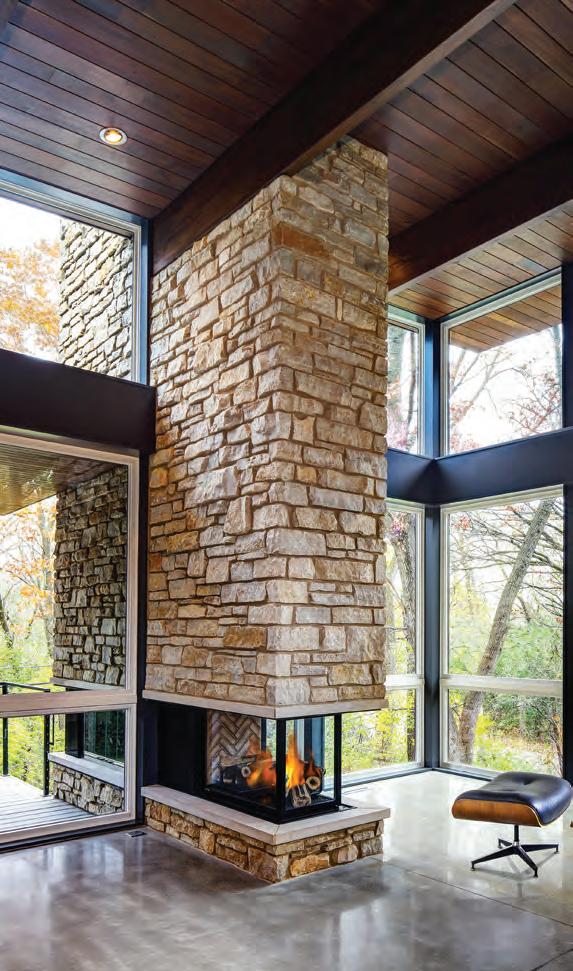

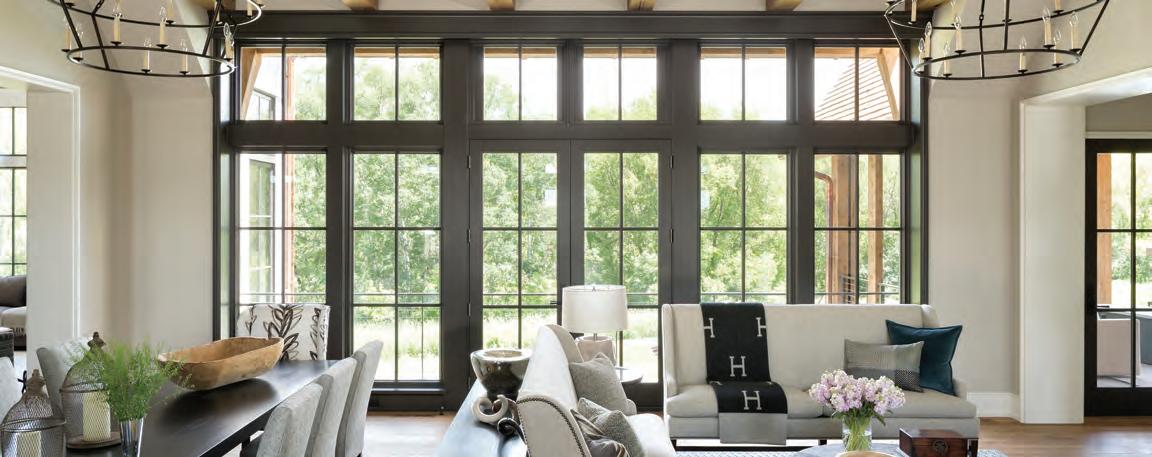







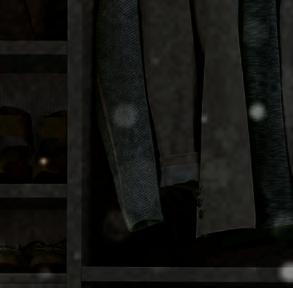

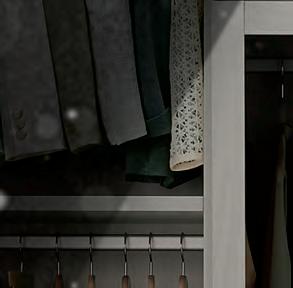



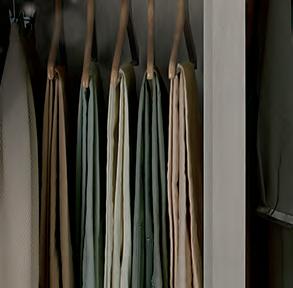

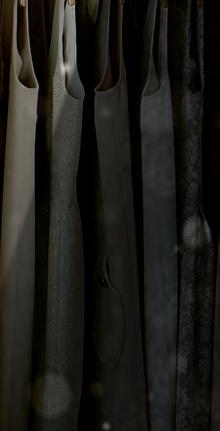











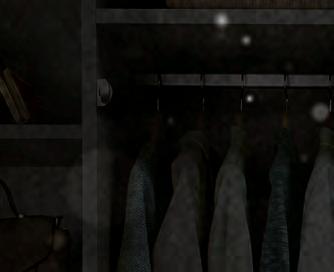

48 The Light of West Marin Building a home that interacts with nature.
56 Getaway Plan Is a second home right for you? Some factors, and places, to consider.
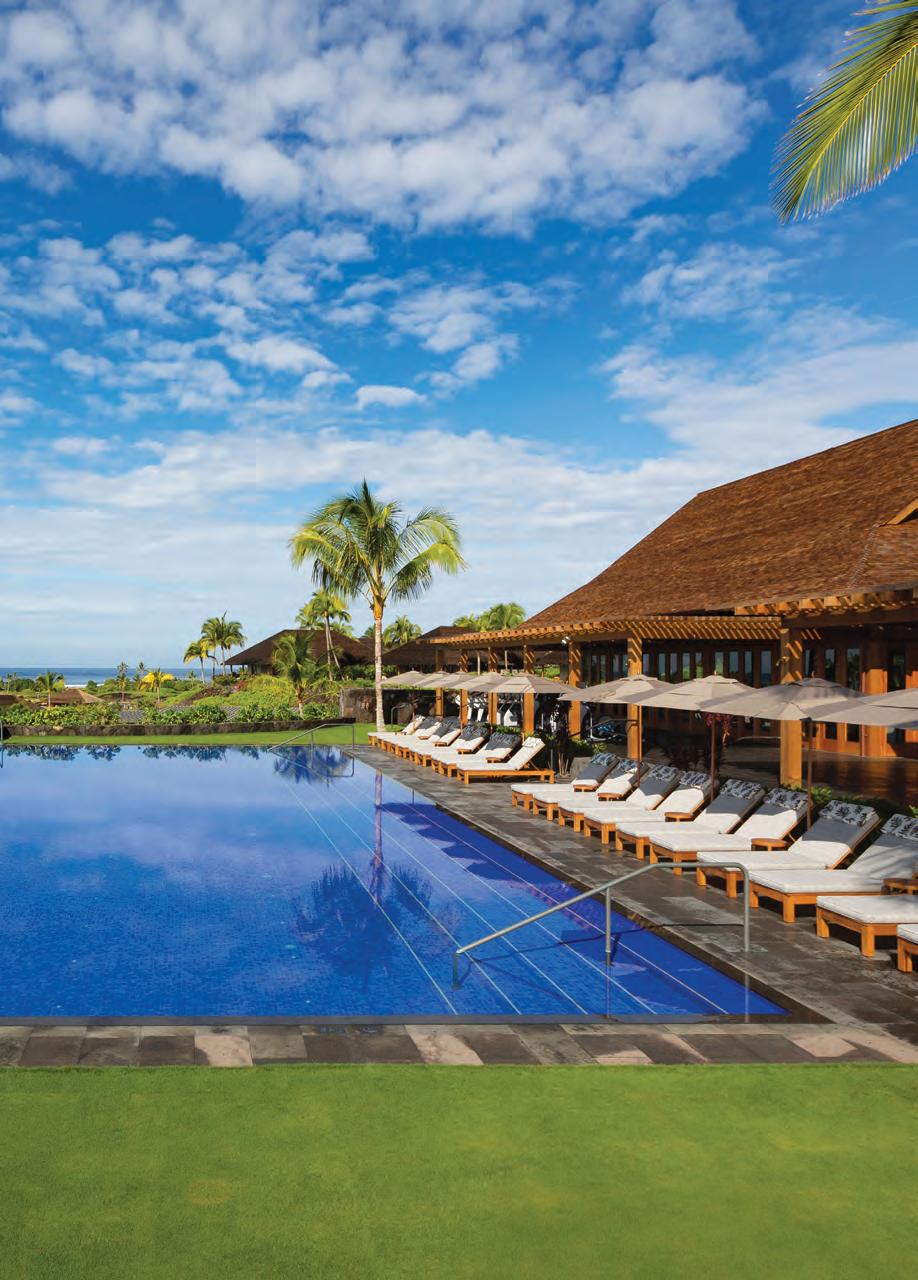
64 A New Path History and the future at San Anselmo’s theological seminary.
68 On Shaky Ground What we’ve learned since the last “big one.”
98 MVFF 2019 Guide
The Mill Valley Film Festival returns for its 42nd year.

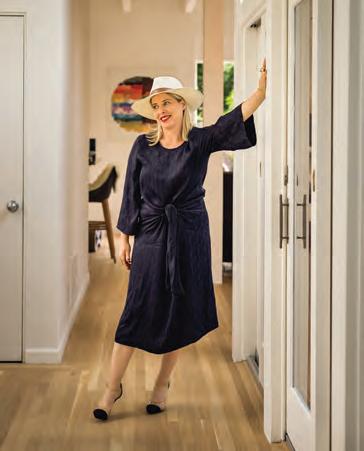
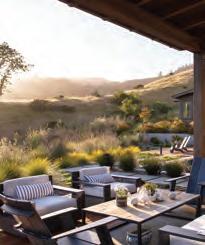
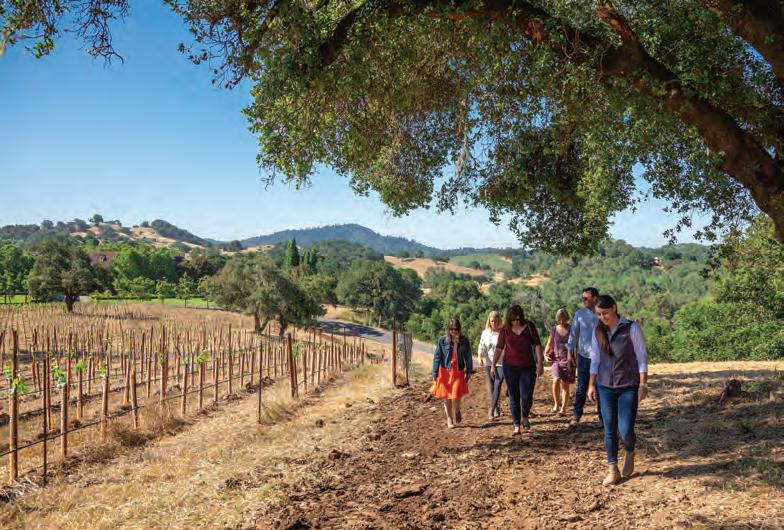

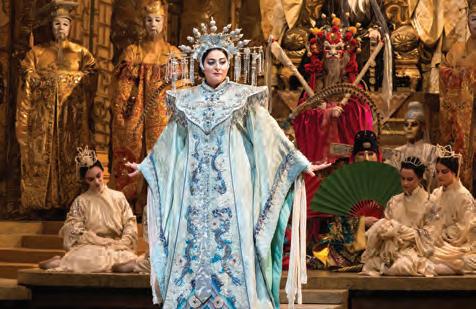

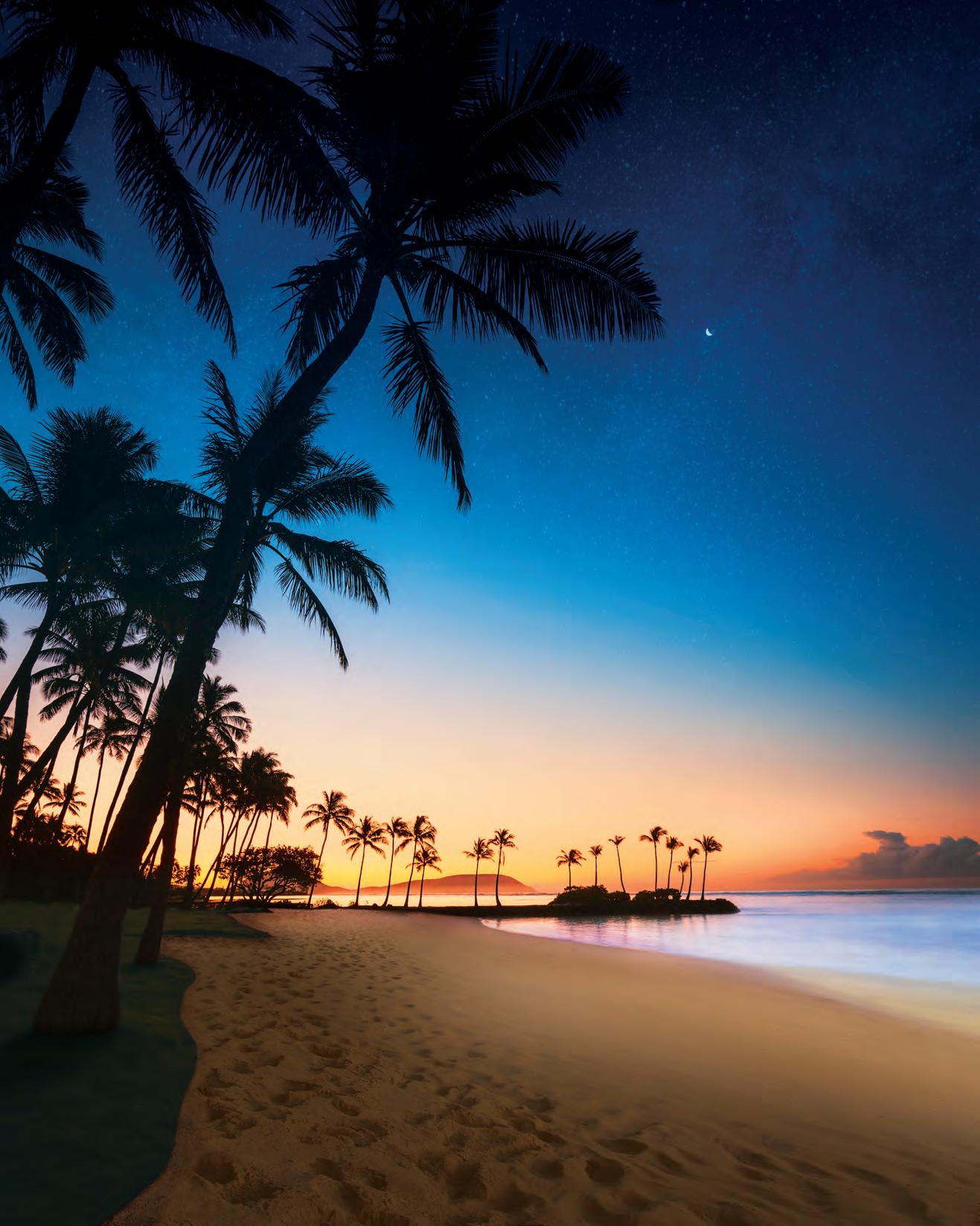


Cryo Savvy. A requirement in sub-zero situations, indeed! Our research in Cryo Science plus 30 years of healthcare expertise ensure your superb care. The result is safe, custom cryo therapies that trigger rapid weight loss, pain relief, and performance. Enjoy vitality from morning meetings through romantic evenings.
See You at the CLUB!
Dr. Cat and Randy Gibson
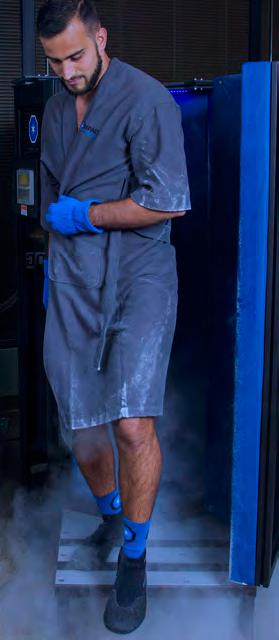
Safety is paramount. Verify the staff is Cryo Certified. Nitrogen must be pure food-grade. The cryo chamber should have a lid for dependable temperatures and to minimize vapors in your face.
Wear dry undergarments, robe, thermal gloves, cryo socks, and booties that protect your achilles tendons.
Experience the dry, sub-zero vapors up to 3 minutes. During the session it helps to move, talk, and sing to great music.

Concierge Consultants at the CLUB 9 Lounge help maximize your cryo results.
memberships club9cryo.com gift cards films

ASSOCIATE PUBLISHER
Debra Hershon, 415.332.4800 ext 120 | dhershon@marinmagazine.com
ADVERTISING DIRECTOR
Michele Geoff rion Johnson ext 110 | mjohnson@marinmagazine.com
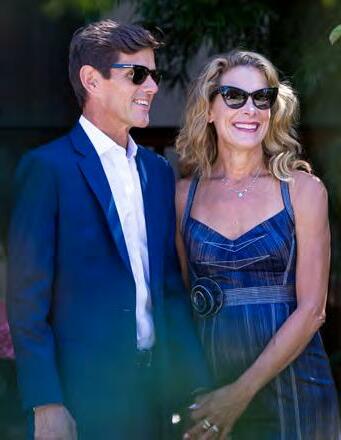
SENIOR ACCOUNT MANAGERS
Leah Bronson, ext 109 | lbronson@marinmagazine.com Lesley Cesare, ext 113 | lcesare@marinmagazine.com
ADVERTISING ART DIRECTOR
Alex French
Regional Sales O ffices
WINE COUNTRY
Lesley Cesare | lcesare@marinmagazine.com
SOUTHERN CALIFORNIA
Leah Bronson | lbronson@marinmagazine.com
NEW YORK
Karen Couture, Couture Marketing | 917.821.4429 HAWAII
Debbie Anderson, Destination Marketing | 808.739.2200
MAILING ADDRESS
One Harbor Drive, Suite 208, Sausalito, CA 94965 PHONE 415.332.4800 FAX 415.332.3048
SUBSCRIPTION INQUIRIES subscriptions@marinmagazine.com 818.286.3111
INTERNSHIP INQUIRIES / STORY IDEAS editorial@marinmagazine.com
Please send letters to editorial@marinmagazine.com. Be sure to include your full name, city, state and phone number. Marin Magazine reserves the right to edit letters for clarity, length and style.
Rates are $12 for out-of-state subscriptions or free for California subscribers. To subscribe, manage your subscription or change your address visit marinmagazine.com/subscribe.
For information on bulk orders of Marin Magazine, please call 415.332.4800.

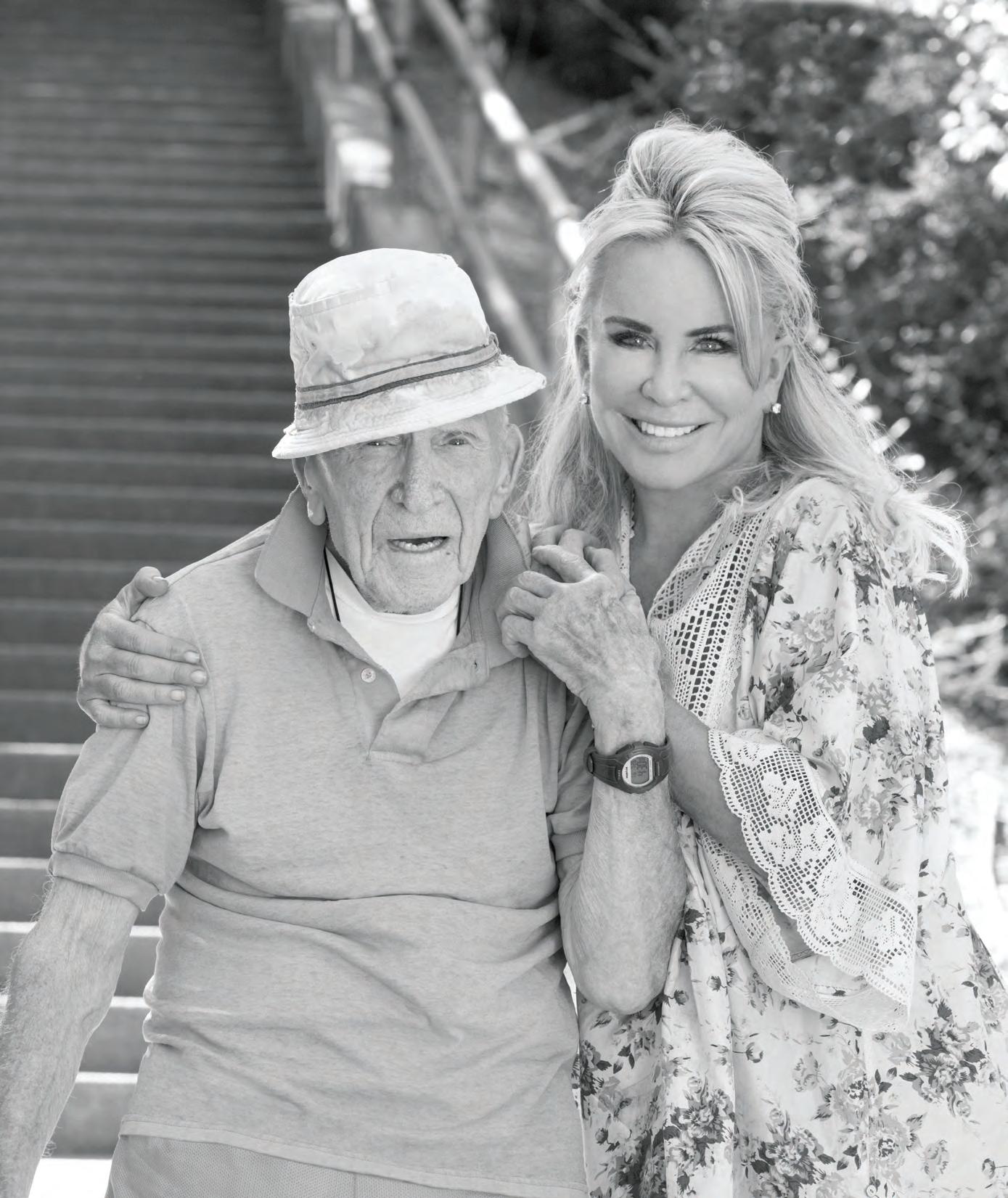
Zvi has run 74,000 miles and climbed 12 million steps since the age of 60. Featured in the film “The Runner with the Crooked Hat”, as viewed on YouTube.com.

Named in the Wall Street Journal as the 51st agent nationwide. Marin County’s #1 agent every year since 2005. Author of Real Estate Rescue With Tracy McLaughlin, coming in April 2020 from Mango Publishing.
TracyMcLaughlin.com


A percentage of every one of Tracy’s closed sales is donated to the Center for Domestic Peace. www.centerfordomesticpeace.org

The time is now — this is it, people; we can change the world.
Is there still time to save the planet, and ourselves?
OCTOBER IS ONE of my favorite months in Marin. The weather is still warm, there is a hint of the holidays in the air and the 49ers have a chance to be great again.
Harvest is also on my mind, thanks to wine country events, forays to farmers markets and, recently, my experience at Futurewell, a daylong symposium in Tomales where wellknown speakers from around the country discussed future well-being. After just a couple hours at the aptly named event, I felt encouraged, actually more like frothed up to the point of evangelism. The time is now — this is it, people; we can change the world. Bear with me as I sort through what I learned.
The answer to wellness is simple: it’s the soil, stupid. The new (to me) buzzword is regenerative agriculture. What is it? Growing food and textile crops with a nod to pre–World War II harvesting techniques (as in sans chemicals and monocrops). The summit conveniently took place at Stemple Creek Ranch, a fourth-generation operation that’s now a thriving example of the benefits of these methods. Those organic and biodynamic practices also figured prominently in The Biggest Little Farm, the award-winning documentary about director John Chester and his wife’s rocky eight-year effort to grow food from the land the old-fashioned way.
In one of the day’s fi rst discussions, Finian Makepeace (I googled; that’s his real name) physically demonstrated connections between agriculture, conservation, soil health and gut health — using actual soil. Makepeace has a website, kisstheground.com, that present s fi ndings from in-depth research on the pluses of regenerative agriculture, offers a free downloadable curriculum for educators and provides information on businesses to support that are following these guidelines.
After his talk came a panel discussion that included Dr. Zack Bush, who specializes in internal medicine, endocrinology and metabolism, and hospice palliative care.
When he was introduced I thought, “Oh geez, here comes the sales pitch for his line of supplements.” Au contraire: he continued the conversation about soil health as it relates to our bodies. He explained the effect of glyphosate (the controversial ingredient in pesticides like Roundup) on the microbes in our guts and told of studies indicating its links to cancer, gluten sensitivity and neurological disorders. He didn’t talk doom and gloom or try to sell a quick fi x-pill; instead, he talked about how powerful our bodies are in promoting regeneration when given the chance. He also explained how while we think of genetics as being passed down from our parents, the good news is we can actually in fluence our genetics through the food choices we make.
Like many people, I often feel helpless when I think about the future of the planet. My daughters talk about raising kids together, about where they will live and encourage me to not move to so I can be that crazy grandma who lives on a houseboat. I force myself to think positive thoughts about how the climate will calm down, insidious diseases like cancer will have swift and effective cures and basically, I like to think that my daughters can realize their futures without having to face these overwhelming environmental threats. Living in a county like Marin, where there are so many deeply passionate people who create businesses aligned with the best sustainable practices, is inspirational. Urban Remedy, Navitas Organics, EO Products and Equator Coffee, to name just a few, are all local companies that make it easier for us to try to live the best lives we can.
Thank you for reading and riding along with my new wave of hope. Believe me, I have lots of room for improvement in my own consumer habits, but I’ve been heartened by the prospect of regeneration of our soils, bodies and habits. Cheers to harvest!
Mimi Towle, Editor









AS SUMMER WINDS down, it’s natural to think about spending more time indoors, more specifially, at home. We met a couple who fell so much in love with West Marin they decided to build their dream house there — one that would take full advantage of the outdoor space, the hilly terrain, the wind and the sun; now they find it’s their favorite place to be. See their story on page 48. Many Marinites have, or would like to have, a second home — a getaway where they can build a sense of belonging and make new memories in a vacation-like setting.
In “Getaway Plan,” we look at the reality of buying and owning that home-away, describing four impressive locations that could be worth a look.
The San Francisco Theological Seminary went through a few moves before it wound up in its San Anselmo home in 1892. Now
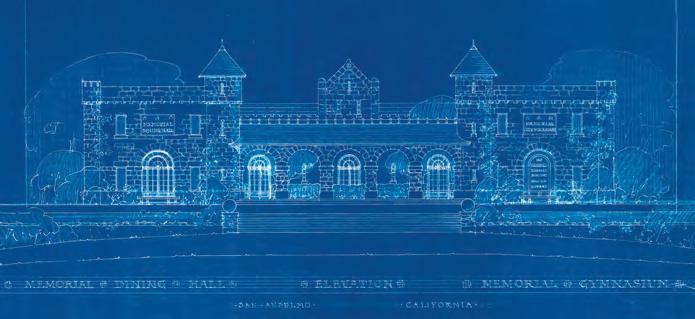
the school is making a di fferent sort of move aimed at staying relevant in these times, but will preserve its theological focus and original campus buildings — many of an architectural style not commonly seen on the West Coast. As our feature story explains, concerns about earthquakes were partly what made the design of these historic buildings (since retrofitted) unique in these parts.
Earthquake preparedness, of course, is on every Californian’s mind, particularly this month as we remember the Loma Prieta quake of 30 years ago. Writer Peter Fish talks with Marin residents about that day in ’89 and tells what experts do and don’t know about being ready for the next “big one.”
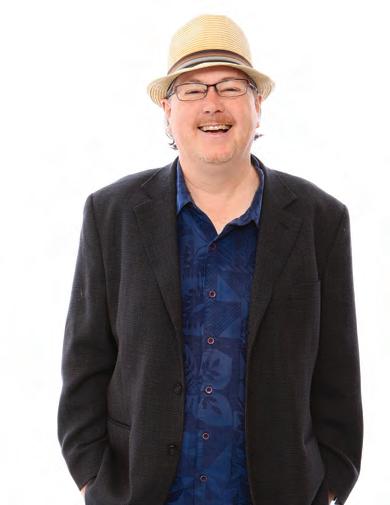
Up front, we talk with a San Francisco author about his book on refugees, and FYI describes efforts to help Marin’s chronically homeless. In Conversation, tech innovator Tiffany Shlain tells how taking a weekly 24-hour break from smartphones makes her family — and others — more aware of their surroundings, including the natural world. Elsewhere, on that note, we reveal where in the county you can pick apples this season; Appellations looks at harvest tastings in wine country; and Destinations makes an East Coast fall-color tour.
It’s an issue all about noticing and savoring the full onset of fall. We hope it inspires you to appreciate this beautiful county.
Mark Anthony Wilson began researching his story on the San Francisco Theological Seminary, he was surprised to learn that among the historic San Anselmo campus buildings are a few by famed architect Julia Morgan. Even more surprising was discovering blueprints for one of her designs that was never built. It was to go on Bouick Field where the playhouse now stands.

Illustrator, “On Shaky Ground” (p. 68)
Do you have any earthquake stories? Not really. I’ve lived in the northeastern United States for most of my life, which is hardly a hotbed of seismic activity. I’ve felt rumbling in the ground and seen things fall off he shelf as a result, but it’s more likely that that was caused by construction. What was the most challenging part of this assignment? An earthquake is an event. There’s a starting point and an end point. There’s a lot of motion in between. Trying to convey something like that with a static image can be tricky. Do you show the midpoint or the aftermath or try to make some sort of visual metaphor? Where has your work appeared before? I got my start as a staff rtist at a daily newspaper and a lot of my work still appears in publications grappling with current events, including The New Yorker, Time, The New York
Writer, “A Journey of Colors” (p. 77)
Favorite spot in California to see the leaves change? Yucaipa. The drive there is magni ficent unto itself, but arriving in the area known for its apple-picking — everything about it embodies fall. There’s nothing I love better than settling into a rocking chair with a mug of hot cider and soaking in the vibe.
What’s your must-have item for the perfect fall leaf adventure? My red Webster’s dictionary. It’s been pressing fall leaves between its pages for years. Nothing delights me more than happening upon one when I’m seeking the defi nition of a word like jentacular.
Where has your work appeared before? Everywhere from the L.A. Times to TV Guide and Bon Appétit. Beyond freelance travel and entertainment writing, I’m the senior editor of Parentology, which talks less about diaper bags and more about digital citizenship.
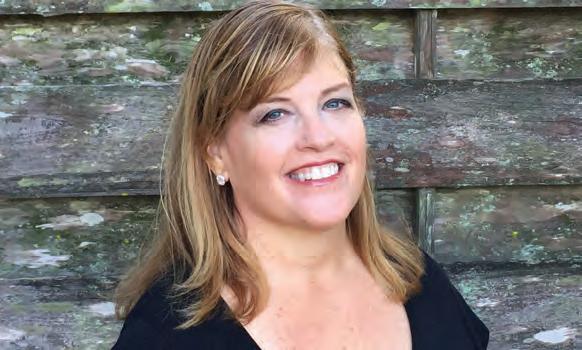
Writer, “On Shaky Ground” (p. 68)

Where were you during the Loma Prieta quake? I was in the front doorway of my thenhouse in Palo Alto. I was about to go running. The quake started, and I thought, this is sort of fun. As it got bigger, I thought, this isn’t fun, this is scary, as I watched all the bookshelves in the living room come crashing down to cover the floor with books.
What was the most interesting thing you learned on this assignment? I’m fascinated by something seismologist Ross Stein said to me: that the Loma Prieta quake taught seismologists that earthquake faults “talk” to each other — that movement on one fault is answered by movements on others. It makes the earth seem like a living organism.

Where has your work appeared before?
San Francisco Chronicle, Sunset, AFAR, Via, Houzz.
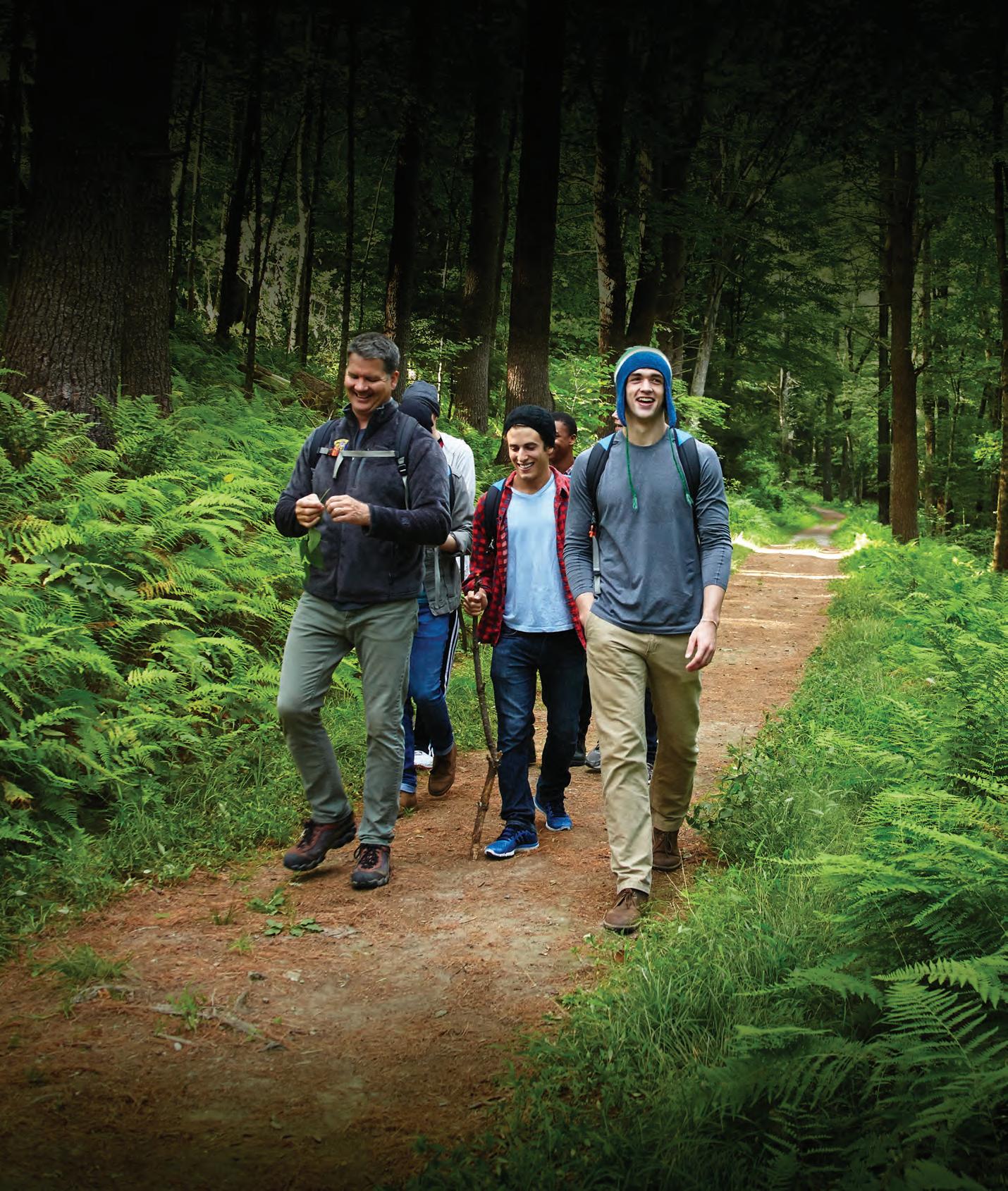
Marinites who love superfoods like hydrating acai and graviola (aka soursop) can find those and other wonders at Vitality Bowls in Mill Valley. Look for bowls and smoothies like The Hulk (powered by broccoli) and an organic coffee bar with pour-over coffee, kombucha and superfood drinks like a pitaya latte. vitalitybowls.com
Known as the longest continuously operating saloon in the county, William Tell House in Tomales reopened after an extensive renovation. Sip a Black Betty cocktail in the bar area, then dine in the adjacent room on
dishes like the Tomales Bay cioppino before heading upstairs to one of the inn’s three rooms to rest your weary head. williamtellhouse.com
San Rafael’s beer shed grew again when Ryan Spencer opened Libation Taproom & Bottle Shop downtown earlier this year. It has 20 taps with a steady rotation of fresh-crafted brews and 150-plus bottles to drink on premises or at home. libationmarin.com
After 45 years in Mill Valley’s Strawberry Village, Rims & Goggles is expanding, adding a lab to the
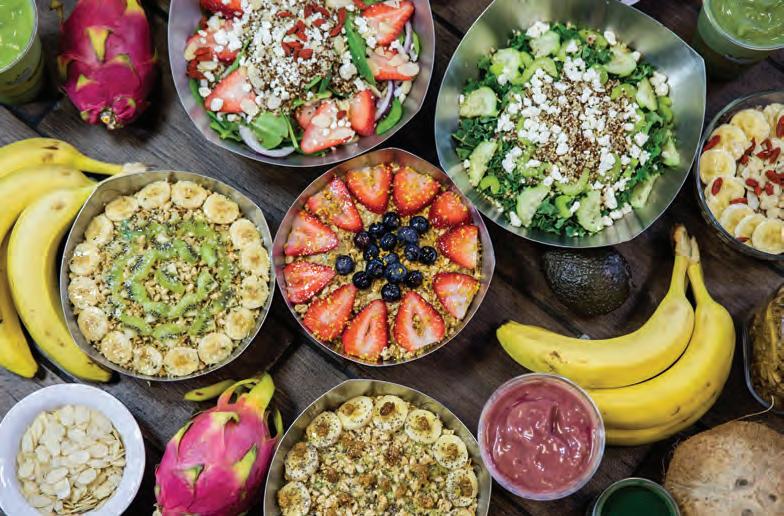
optical boutique and a design studio offering custom frames and its own frame line, GRO Eyewear. rimsandgoggles.com
The blankets, home goods and apparel that defined the Pendleton brand for its 156-year history are once again locally sold, this time at a new 1,770-squarefoot store in the Corte Madera Town Center. pendleton-usa.com
First established in San Francisco, George Lawson Gallery recently moved from Emeryville to downtown Mill Valley. A showcase for contemporary art, the Marin gallery opened with
Multiverse, an exhibit exploring the theme of multiple universes, on view through October 13. georgelawsongallery.com
The longtime success of her Bon Air Shopping Center pop-up guided owner Jodi Shaw to find a permanent home for Flourish Succulents . Now at The Cove Shopping Center in Tiburon, this floral shop specializing in succulents, orchids and home decor also offers hand-tied fresh floral bouquets. flourishsucculents.com

Founded on the idea that shopping for eyewear should be easy and fun, former internet-only
company Warby Parker opened a store in the Corte Madera Town Center. warbyparker.com
The formerly online-only beauty subscription service Beauty Heroes comes to downtown Novato, bringing a selection of health, wellness and beauty samples to its chill lounge. beauty-heroes.com
Expert stretching in oneon-one and group class sessions at StretchLab are said to promote increased range of motion and proper alignment and posture.
Mill Valley resident and owner Alex Burnham now offers this flexibility work in a Strawberry Village location. stretchlab.com
Downtown San Rafael’s Essential Sleep Boutique moved a block west from its previous spot on Fourth Street, into a bigger space that has ample room to supplement its selection of natural and organic mattresses, adjustable bases and bedding. essentialsleepboutique.com
Owner Jay Maya opened The Xclusive Club in downtown San Rafael earlier this summer
New in Town is an ongoing bulletin on new businesses throughout the Bay Area. To be considered for future listings, email christina@marinmagazine.com.
with a haircut, steam facial and shave menu that goes far beyond hot towels and razors. Seventh to 12th graders alert: bring your 3.5-GPA-or-higher report card at semester’s end and get a free haircut thexclusiveclub.com
The Irene M. Hunt School in San Anselmo, serving K-12 students with behavioral and emotional challenges, now has two new classrooms to accommodate an additional 20 students. sidebysideyouth.org
Sally Newsom’s Mind Tank HQ in downtown Ross offers seven month-to-month private office workspaces, a living room with a coffee bar and stocked kitchenette, creekside garden with accessible Wi-Fi and, oh yeah, a conference room. mindtank.com
A move from Berkeley to Tiburon for Dawn Carlson meant bringing her business, MAS Design , to town. The interior design shop, run in partnership with Tiburon resident Carol Perry, features an approachable California-chic style. masinteriordesign.com
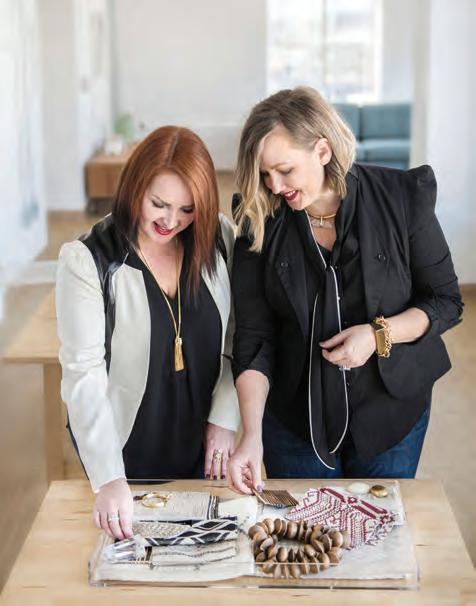

Our top Instagram post this month is by Elyse Omernick, @shhhhclick. “One of my favorite places to get away from the stresses of everyday life is our beautiful Mount Tamalpais. There are so many trails that lead you above the clouds, where it’s easy to sit, breathe and reflect on how lucky we are to live in such a beautiful place.” Want to see your photo in print? Tag us @marinmagazine with your best snap.
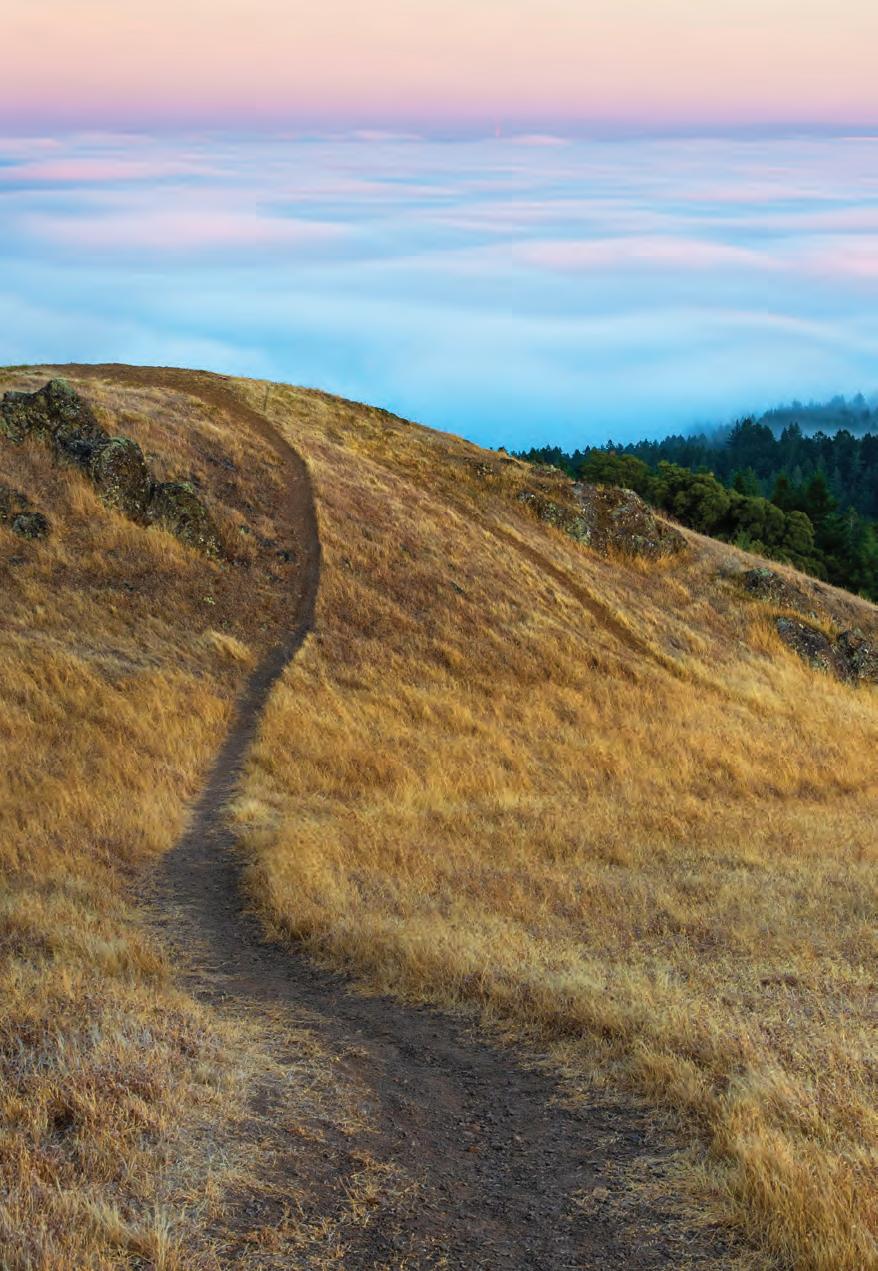
1 ”Best of the County” (August 2019) The top picks in Marin, chosen by you, the reader.
2 “Senior Boomers” (August 2019) Jerry Jampolsky explains why getting older is something to celebrate and enjoy, not something to fear.
3 “A Rare Find” (August 2019) A San Rafael collector is the proud owner of a warehouse full of curiosities.
4 What’s Hot: Mill Valley (August 2019) New happenings in three eateries just off the main square.
5 New in Town (August 2019) The latest spots opening in Marin, including eats, shops and wellness establishments.
The newest SPACES magazine podcast is here. This time, Managing Editor Dan Jewett is in conversation with designer Suzanne Tucker. As co-founder of one of the largest design firms of its kind on the West Coast, Tucker has much to say on her inspirations, how travel influences her work and what it was like breaking into a once male-dominated industry. marinmagazine/podcasts

Everyone loves to splurge when you’re not the one footing the bill. During October, you have a chance to win one of two $500 Town Center Corte Madera shopping sprees at a Town Center retailer of your choice. Enter to win at marinmagazine.com/towncentersweeps.
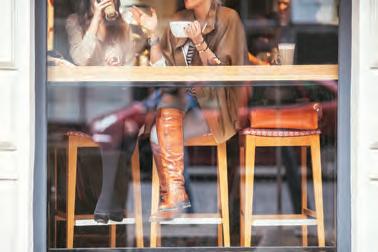

WHEN WHERE WHY YOU SHOULD GO COST FIND OUT MORE
October 18, 7–10 p.m.; October 19 and 20, 3–6 p.m. St. Stephen’s Church, 3 Bayview Avenue, Belvedere
Join in for Festival Musica Marin: An International Chamber Music and Culinary Experience. The weekend event combines the magnificenceof worldrenowned musicians from Europe and across the U.S. with the expertise of celebrated chefs to deliver a memorable experience on the beautiful Tiburon Peninsula. Musica Marin is an immersive adventure in classical music and fine cuisine that takes you out of the ordinary and into the extraordinary.
$75–$125 415.335.2348, festivalmusicamarin.org



Friend us to share and view RSVP Hot Ticket photos at facebook.com/marinmagazine
Want to see all the images from our RSVP Hot Ticket events? marinmagazine.com/hotticket


Imagine you hear about a company that’s developing a device that can quickly separate blood without electricity, allowing transfusions to be possible in even the most remote parts of the world.

Imagine if you could invest early in its success.
Via philanthropy. Imagine no more.

FROM PAGE 35
CHILENO VALLEY RANCH Located just outside Petaluma on Marin’s northernmost coast, this ranch is open to visitors for apple and pear picking every Sunday from mid-August to the end of October. Chileno Valley Ranch grows nearly 20 varieties of these fruits, which ripen at different times during the season. On any given U-pick day, three or four varieties will usually be ripe. It’s a popular activity, so reservations are required and they’re bookable online. The farm’s grass-fed beef and local bounty like Nicasio Valley Cheese, Bloom Bee Honey and Chileno Valley Olive Oil are also for sale. mikeandsallygalebeefranch.com
In August this year Macy’s announced a pilot program with online reseller thredUP to start selling used clothing in 40 Macy’s locations across the country. Not to be outdone, J.C. Penney issued a statement shortly after, committing to 30 thredUP outposts in its stores. It’s clear that the big traditional retailers — which have been plagued with mass closings and falling profits — are hoping to capitalize on the reseller trend, especially given its popularity with younger generations. Good for the earth and kind to your wallet, the secondhand apparel market is presently estimated at $24 billion and is expected to grow to $51 billion in five years. Millennials and Gen Z shoppers are spurring this boom, adopting secondhand wear 2.5 times faster than other age groups are. Here are some up-to-date definitions of the market sectors included, courtesy of San Francisco–based thredUP. Go to this magazine’s website for our roundup of the best secondhand stores in Marin. marinmagazine.com/shop
• Secondhand All used apparel; includes resale, thrift and donation shops.
GABRIEL FARM This 14-acre family farm in Sebastopol offers apple picking via a U-pick CSA (Community Shared Agriculture) program. Picking is members only, though you are automatically a member for a year when you buy a case of the farm’s juice for $40. Apples each season include McIntosh, Gala, Gilbert Golden, Jona Gold, Fuji and Rome, the latter two in October. Membership signup happens weekends from 10 a.m. to 3 p.m. or by appointment during the week. gabrielfarm.com

RATZLAFF RANCH Depending on availability of ripe apples, picking season is typically September through early December at this family-run Sebastopol ranch. Along with Gravenstein, Golden Delicious and Rome apples and pears, it produces Apple-A-Day apple juice, winner of numerous Sonoma County Harvest Fair awards. Fresh cider is also for sale during U-pick season. Dress appropriately for farmyard walking. On-site picnic tables are available for lunch. appleadayranch.com
• Donation and Thrift A sector of the broader secondhand market that includes traditional outlets such
as Goodwill, Salvation Army and yard sales. Sales are conducted primarily but not exclusively offline.
• Resale A category of the broader secondhand market that includes more curated
product assortments, sometimes higher end. Examples include online sources like thredUP and TheRealReal as well as upscale physical players like Crossroads Trading Company,

GETTING AN A Do you love Marin’s open spaces, parks and agricultural lands? Thank Measure A and its quarter-cent sales tax for protecting it all. Earlier this year, Marin County Parks conducted its 2019 survey and received lots of feedback the organization can use in budget planning and setting priorities for Measure A funds and other resources. Top budget priorities for the 4,800 residents who participated? Vegetation management and wildland fire fuels reduction. While the majority approved of the parks’ work, 96 percent wanted to keep or increase funding for top projects. These included road, trail and park facilities maintenance and improvements. KIER HOLMES
Wasteland and Buffalo Exchange.
• Secondhand Products Used apparel, footwear, accessories, books, furniture, and entertainment and beauty products.
1

Introducing the QTscan™.
It’s finally here. A breast imaging option that not only provides clear, high definition results, but is truly comfortable and safe. This is the QTscanTM from QTbreasthealth. Whether you have dense breasts, breast implants or simply want extra assurance after a mammogram, a QTscan is available to you right now.
The QTscan avoids painful compression to ensure patient comfort, and requires no radiation, so women of all ages can be safely scanned.

The QTscan has a higher demonstrated degree of accuracy than traditional MRI or handheld ultrasound at identifying certain breast structures.1
QT stands for “quantitative transmission”, which uses sound waves to safely create true 3D images and see through dense breast tissue.
Every patient receives timely results delivered by a breast health expert via phone or video conference.
A QTbreasthealth Center is now open near you. Experts are on call to answer your questions, reserve your appointment and more.
Marin
3 Hamilton Landing, Suite 180 Novato, CA 94949
Discover the QTscan™ today. Call 833-787-2260 or visit QTbreasthealth.com
Anatomy-Correlated Breast Imaging and Visual Grading Analysis Using Quantitative Transmission Ultrasound, Intl. Journal of Biomedical Imaging. Visual Grading Assessment of Quantitative Transmission Ultrasound Compared to Digital X-ray Mammography and Hand-held Ultrasound in Identifying Ten Breast Anatomical Structures, BAOJ Clinical Trials
Malleable enough to go around the tops of bowls, these can be washed and used over and over to wrap cheese, sandwiches, bread and other roomtemperature or cold foods.

These are rustically handsome and far more functional than plastic bags, providing root vegetables the dark, dry environment they crave. Look for the ones with a removable cotton liner for easy cleaning.
Although generally pricier than plastic, they last longer, are dishwasher safe and have convenient snap-on lids. Choose tempered glass or food-grade stainless steel.
No easier way to make yogurt or a salad camera-ready. Inexpensive and versatile, larger jars are great for storing grains and flours in your pantry.
Platinum silicone is a derivative of sand, and these see-through bags can be written or drawn on. Besides fun, they’re also freezer-, microwave- and dishwasher-safe.
65 Lifehouse is one of the most recognized and respected nonprofits in the Bay Area, but it was born out of frustration. In the early 1950s a small group of Marin County families felt their children with developmental disabilities were underserved; there were no special education programs at the time.
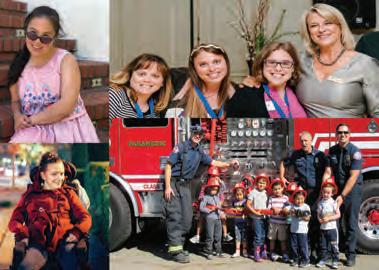 BY THE NUMBERS
BY THE NUMBERS
The parents created a preschool and then a kindergarten, which flourished and became a comprehensive special education program managed by the Marin County Office of Education. Formerly known as Marin Aid to Retarded Children, Lifehouse now also provides residential services to adults and seniors with developmental disabilities, offers a teen program and operates an inclusive preschool. Every year in the spring the organization throws a fundraising gala called Great Chefs & Wineries, with 25 of the Bay Area’s top restaurants and wineries participating. Here are the numbers on that event and Lifehouse’s work. lifehouseagency.org K.P.

The beautiful North Bay, with its mountains, beaches, vineyards, and valleys, has always attracted those who value health and wellness. Now, with the launch of MarinHealth, our community has access to healthcare resources that support that ideal more than ever before. MarinHealth is your gateway to collaborative, comprehensive medical services, from wellness and prevention to diagnosis to advanced therapies and beyond.

MarinHealth Medical Center – Formerly Marin General Hospital, this trusted community hospital offers innovative treatments and technologies.
MarinHealth Medical Network – Formerly Prima Medical Foundation, this network represents expert primary and specialty care providers who previously practiced
under Prima Medical Foundation and Marin Healthcare District Health Centers. Now, under the MarinHealth banner, they continue to practice in their same convenient locations.
MarinHealth Foundation – Formerly Marin General Hospital Foundation, this fundraising organization supports the operation and expansion of our healthcare resources.
Together, we’re thrilled to provide our community with a one-of-a-kind Healing Place.
Learn more at www.MyMarinHealth.org
“MarinHealth” and the MarinHealth logo are servicemarks of Marin General Hospital and used by its affiliates pursuant to licensing arrangements.
MM: When did the conceptualization of this book begin?
LB: The work began when I fi rst went to refugee camps in 2004 in eastern Chad. But the conceptualization of writing this kind of book really started around four years ago, when I started to see the kind of political rhetoric we were having in our country and how many people were losing sight of the human story of the refugee. I began wondering how I could construct a book that would be apolitical, but sort of reclaim the story of the refugee. I want to start a conversation, and this book offers a lens into 11 powerful stories.
MM: What would you say to someone who doesn’t think the immigration process is their problem or applies directly to their lives?
LB: I understand it. We’re living in a time where people are feeling overwhelmed. Every day it’s a new issue, right? Health care. Education. The economic disparity. The refugee situation. The isolation of it all. But of those people I would ask: What is a refugee? No one is born with the intention of being a refugee; circumstances simply arose — whether around race, religion, etc. — that made it impossible to live in one’s own country. When you leave your own country, you leave behind your home.
Family. Language. Culture. Familiarity. You have to learn all kinds of new things. Aren’t we all, in some ways, refugees? Refugees from childhood, from our youth, from our dreams? I don’t mean to simplify the plight of those who have been forced from their homelands, but (to identify) what, within ourselves, it might mean to be a refugee. What would it mean for you to leave everything behind? What have we left behind, and what have we reclaimed?
MM: What do those featured in the book have in common?
LB: None of them want to be labeled a refugee. They, like anyone else, don’t want to be limited to a single story. We all have stories that are complex. We’re human beings. And so are they. They want this country to be good, and safe.
MM: What do you consider the crux of the refugee crisis?
LB: There’s a question I ask a lot in my classes. In our world, we’ve seen incredible advances in technology, science and medicine. It’s unbelievable. Have we advanced humanly? All around the world, people are brutalizing other people. How can we foster that human sort of advancement?
CALIN VAN PARISRefugees in America: Stories of Courage, Resilience, and Hope in Their Own Words by Lee T. Bycel (San Francisco), Rutgers University Press, $26.95 . From the story of a 93-yearold Polish grandmother who survived Auschwitz to that of a blind, undocumented immigrant from El Salvador who became a college graduate, each chapter of Refugees in America highlights the extraordinary experiences of individuals who have come to the United States after fleeing oppression, violence and war in their home countries. Timelier than ever, this collection of stories compiled by humanitarian activist Lee T. Bycel presents a stunning and eye-opening mosaic of the myriad aspects of human experience, from heartbreaking suffering to awe-inspiring resilience. A ppearing at Book Passage Corte Madera on Tuesday, October 15, 7 p.m.
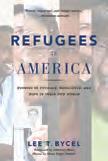
The Invention of Yesterday by Tamim Ansary (San Francisco), PublicAffairs, $30. Tamim Ansary’s tome takes a far-reaching look at human history, beginning with our existence in small, often isolated groups and traveling forward to the planet-wide community we’ve established today. But while that journey provides the backdrop, Ansary’s true focus is on those essential human attributes that have persisted throughout — our religions, laws, cultural movements and philosophies. Appearing at Book Passage Corte Madera on Tuesday, October 8, 7 p.m.
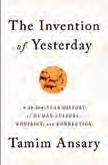
The Memory Keeper by Jennifer Camiccia (Bay Area), Aladdin Books, $17.99. Young Lulu Carter has the brain condition known as HSAM — highly superior autobiographical memory — which allows her to remember almost every moment of her life. Yet for the heroine of this middle-grades novel, HSAM is more of a burden than a blessing, leaving her isolated except for her relationship with her grandmother — until her grandmother’s own memory starts to fade. Realizing that her grandmother’s amnesia could be rooted in a past trauma, Lulu begins investigating her grandmother’s history, but she soon uncovers secrets that were meant to stay buried. Appearing at Book Passage Corte Madera on Sunday, October 20, 4 p.m.
by Book Passage Marketing Manager Kayla Beckman.

Reviews
We sat down with professor, rabbi and humanitarian Lee T. Bycel of San Francisco to discuss his new book, Refugees in America: Stories of Courage, Resilience, and Hope in Their Own Words






Using evidence-based tactics, county agencies have helped decrease Marin’s number of chronically homeless by double digits.
BY KASIA PAWLOWSKAEVERY TWO YEARS at the end of January, volunteers go out into the streets early in the morning to tally the homeless in their community. This event is known as the Point-inTime Count, and for the Bay Area overall, the 2019 results were not encouraging — San Mateo, San Francisco and Alameda counties all saw their homeless populations swell by doubledigit figures, Alameda’s by an alarming 43 percent. The story in Marin was di fferent, however. While the overall number dropped by less than 100 people, from 1,117 to 1,034 in 2019, the chronically homeless population decreased by 23 percent.
This wasn’t a lucky accident. In recent years multiple agencies around the county have shifted their approach to this pressing issue. “The problem as a whole feels impossible, but when you look at one person at a time, it becomes more doable — and we’ve housed 165 chronically homeless people in the past two years by viewing it this way,” says Christine Paquette, executive director at St. Vincent de Paul Society of Marin County
St. Vincent provides care and services to county residents in need through its “key crisis assistance” programs, which support over 10,000 people annually. A few years ago, Paquette, who has been a part of St. Vincent management for over 14 years, noticed that it was the same homeless people moving in and out of jails and hospitals and making no positive progress in their lives. So the organization started to conduct research on ending chronic homelessness and determined
that the best way to handle the issue was to house one person at a time, prioritizing the most vulnerable.
Next, in 2016, St. Vincent launched the Homeless Outreach Team (HOT) program, in which a small group of case managers build trust and relationships with the most at-risk homeless residents and help them fi nd and maintain permanent housing. “There is no scienti fic way to show who will make it and who won’t,” Paquette says. “By using a vulnerability index, which is a questionnaire that addresses a host of criteria, including mental health issues, drug and alcohol abuse, who has been hospitalized in the past year and so on, we are able to create a profi le and determine who is in the most need.”
St. Vincent works with other Marin County partners like Ritter Center, Buckelew Services, Marin Housing Authority, County Health and Human Services, and Homeward Bound — which is currently planning to replace its Mill Street Center with a fourstory, 32,000-square-foot structure that will
60 shelter beds and 32 permanent supportive housing units on the upper levels — as well as local cities to provide such individuals with case management, mental health services and housing vouchers. Once people are in the system, they stay in it. Nationally, the success rate for someone remaining housed by this method is 85 percent; so far in Marin it is 92 percent.
in Novato and Sausalito and eight new slips for homeless anchor-out residents in Sausalito. Statewide, a new homelessness task force created by Gov. Gavin Newsom is co-chaired by Sacramento Mayor Darrell Steinberg and Los Angeles County Supervisor Mark Ridley-Thomas.
Executive Summary two years, during the last 10 days of January, communities across the country conduct comprehensive counts of the homeless populations in order to measure the prevalence of homelessness in each local Continuum of Care. 2019 Marin County Point-in-Time Count was a community-wide effort conducted on January 28 th , 2019. In the weeks following the street count, a survey was administered to 360 unsheltered and sheltered individuals experiencing homelessness in order to profile their experience and characteristics.
But solving this issue takes a concerted effort, and the county has a multipronged approach. In addition to espousing the approach known as Housing First, in 2017
problem as a whole feels impossible, but when you look at one person at a time, it becomes more doable.
Marin County joined a national coalition called Built for Zero. It supports participating communities in developing real-time data, optimizing local housing resources, tracking progress against monthly goals and accelerating the spread of proven strategies, all in an effort to end chronic homelessness. That same year, Marin received approval from the state of California to begin implementing the Whole Person Care Pilot, which focuses on building a coordinated, evidencebased system of care for the county’s highest medical utilizers.
“Chronic homelessness is kind of like the 80/20 rule,” says Andrew Hening, San Rafael’s director of homeless planning and outreach. “It’s the small percentage of people who are most visible, causing the biggest disturbance.”
In San Rafael, which is often thought of as the epicenter of homelessness in the county, using the new tactics has led to a 54 percent reduction in emergency medical services calls and an 86 percent reduction in police calls for homeless people.
“There’s been a 30 percent reduction in homelessness in San Rafael since 2017, but only 30 percent of homeless live in San Rafael, and this is where the majority of the resources are,” Hening notes. But countywide efforts are being launched, including mobile shower operations
By a conservative estimate, a chronically homeless person costs taxpayers on average about $60,000 a year, housing them brings that cost down to $30,000. Through these programs, Marin has saved an estimated $5.5 million annually. W ith the current efforts, the county and participating agencies are setting a goal to end chronic and military vetera n homelessness by the end of 2022, one person at a time. m
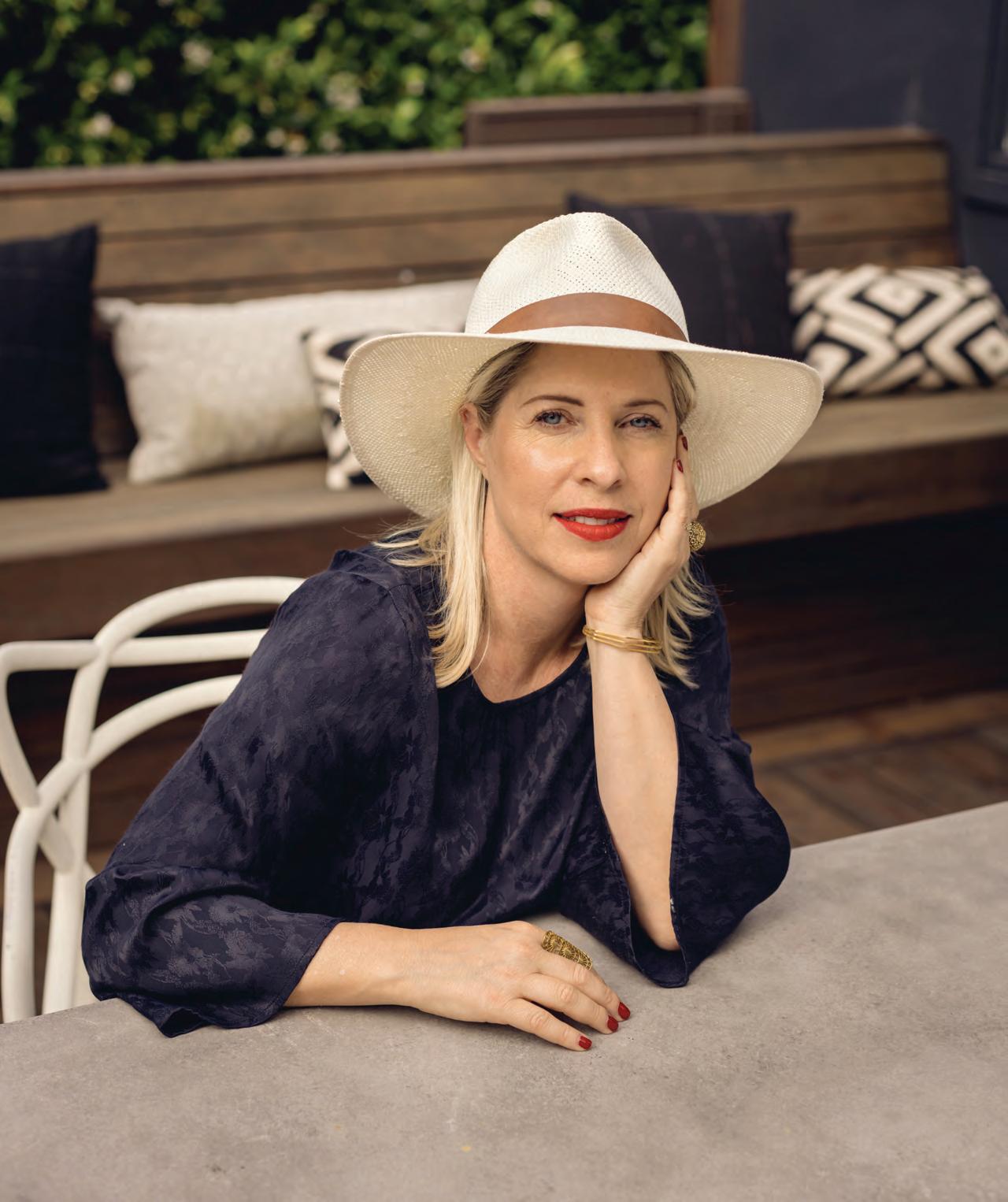
A tech innovator and mother discusses the benefits of taking extended breaks from computers and smartphones.
BY KIRSTEN JONES NEFF • PHOTO BY LENNY GONZALEZFOR THREE DECADES, Mill Valley native Ti ffany Shlain has been a poster child for the utility and promise of technology. As a Redwood High student in the late ’80s, she co-wrote a paper entitled “Uniting Nations in Telecommunications and Software” and traveled to the Soviet Union as a young tech ambassador. After studying fi lmmaking at UC Berkeley in the ’90s, she established herself as a new media thought leader, using then-emerging tech platforms to create and distribute CD-ROMs and fi lms through her Let It Ripple studio. She founded the Webby Awards in 1996, and Newsweek deemed her one of the “Women Shaping the 21st Century.”
Now, with her fi rst book, 24/6: The Power of Unplugging One Day a Week (published by Simon & Schuster last month), Shlain has written a guide to creating boundaries in the face of omnipresent technology. For the past decade, Shlain, her husband and two daughters have turned off their screens for 24 hours every week, from Friday evening to Saturday evening, in a practice they call Tech Shabbat. We sat down with Shlain to hear more about her book, which explores the history of Shabbat (and other religious and cultural days of respite), the trajectory of technology in society, and the “ripple” effect the practice of Tech Shabbat has had in her life.
How did you and your family develop the idea of Tech Shabbat? Ten years ago, I went through a one-month period where I lost my father and our younger daughter was born within the same couple of weeks. It was one of those life moments where life was grabbing me by the lapels and saying, “What’s important?” At the time, I was feeling like an emotional pinball machine — responding to every buzz and noti fication, responding to everyone except the people I love who were right in front of me. That is when we began this practice and now our family has been doing this for almost a decade. It’s been so beautiful and life changing. The practice of Shabbat is thousands of years old — we’re just updating it for the 21st century. I’m Jewish. I’m not a religious Jew, but I love the Jewish traditions and rituals. I would love to see people engage with
Marin has always been at the forefront of wellness and living a good life. This is the right community to push back.
Shabbat, the way they do yoga and meditation even though they might not be Hindu or Buddhist. They do those practices and it makes their lives better. A full day of rest and being in a di fferent mode — in my family’s case, no screens — has brought a sense of balance back, a space for ourselves, for relationships, and for reflection, space we don’t have in our 24/7 culture. Historically, in every culture and religion, there is a day of rest, but in our current culture, it has evaporated in almost every sector of society.
What are your greatest concerns about our relationships with our smartphones? I love all the things technology can do, but just not 24/7. I never imagined in the early days when I started the Webby Awards that people would be staring down at their screens all the time and not be present with the people right in front of them. It was never part of the vision — this screen-obsessed world. This book is a call to rethink the way technology has in fi ltrated our lives and made us accessible to everything and everyone at every waking moment. I don’t think that’s a healthy way to live. I don’t think it’s a healthy way to work. What I’m proposing is a simple, powerful practice that can make you feel so much better. Also, while screen obsession is not great for our personal well-being, it’s also not great for our democracy — being distracted all the time. That is how things don’t happen. You can’t focus long enough or do bigpicture thinking or do things in a deeper way. In the book, I talk about the personal but I also focus on our society and free will and government and democracy, all these other very important things that are in fluenced by the fact that we are manipulated to stare at screens all the time.
Your daughters are 16 and 10. How have they responded to this tradition? It’s been a special day in our family that feels very different than all other days. We all enjoy it. It is interesting to hear my older daughter’s perspective. She really
enjoys having a day without homework, without posting and liking, especially as the stress piles on as she’s getting ready for college. It becomes a respite. It’s our favorite day of the week, and the feeling ripples out throughout the week because every week you get to recalibrate how you feel about everything — a reset.
How do you suggest families handle the peer pressure to get a smartphone? Children are going through the biggest period of brain development and they’re being handed a device that is completely rewiring their brains. With smartphones, it is peer pressure for kids and it is also peer pressure for adults. When our older daughter was entering elementary school everyone was getting their fifth grader a smartphone for graduation. We didn’t, after a lot of wrestling
with and looking into the issue, but we were one of the only families not getting a smartphone. Now, five years later, I do feel the tide shifting. There is a group of parents who are all signing the Wait Until 8th pledge. A mother out of Austin, Texas, started this and it is sweeping the country. We have so many parents who have signed it at our school, and because I am on the Wait Until 8th advisory board, I know that this is happening all over the country. The research is finally coming out and it confirms what a lot of us instinctively knew — this can’t be good. It was the same kind of hand-wringing over television when I was a kid in the ’70s, but the difference with television is you can’t drag a TV with you everywhere you go, every waking moment. That’s a big difference. So, as a group of parents you say, we’re all going to delay getting them a smartphone — we don’t need to give them access to a supercomputer in their hands all the time at this age. What is so exciting is that parents have had lots of meetings and discussions around the Wait Until 8th pledge, because it is really a community thing. One kid has a smartphone, the others don’t, but everyone wants one. Or with playdates, you establish


I never imagined in the early days when I started the Webby Awards that people would be staring down at their screens all the time.
that kids won’t be staring at screens the whole time. As a community you’re setting boundaries and hopefully letting childhood happen a little longer. They’re all going to get there soon enough. The pendulum swung so far, people don’t want all of it and are starting to push back.



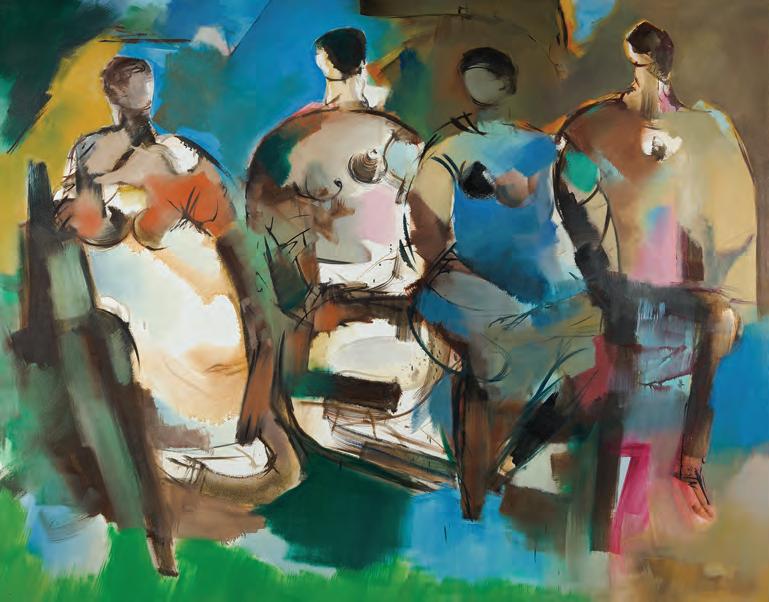
How do you personally handle social media?
I wrestle with social media. I love sharing ideas and most people I follow are sharing ideas. For a fi lmmaker and writer, there’s so much you can do — testing ideas, following others. I’m following diverse people on Twitter, so I read things I never would have read. But I’ve been thinking about why people post, when does it feel like healthy posting and when does it feel not healthy. I love seeing my friends’ kids — and I think about that: that compels me to post on my kids’ birthdays. But you can kind of feel it — there’s a level when there’s too much posting. You have to take a beat and ask yourself, why am I posting this? How will it make others feel? I don’t think there’s a lot of that. In the book, I write about strategies for di fferent social media platforms, including taking complete breaks.
If you could go back and give your younger self advice about technology, what would it be? I always looked at tech as a way to bring us together, and tech has brought so much. I work in technology. I make films about it. I spent the first half of my career thinking, “This is going to change the world.” And now it’s like, not so much … that was a little too much. I didn’t imagine every second of life would be responding to this device. I never thought connecting broadly would be at the expense of connecting deeply. So how do we keep all the best parts — connecting through similar interests, sharing ideas on a large scale — without letting it consume and take over every waking moment? Marin has always been at the forefront of wellness and living a good life. This is the right community to push back. We are surrounded by so much nature, so much beauty here. We need to look up and see where we’re living and turn it off ccasionally, weekly. The key is you can adapt this practice to your life, pick a different day of the week. The book is asking people to try it, consider how you feel, and then adapt it to how it best works for you. m
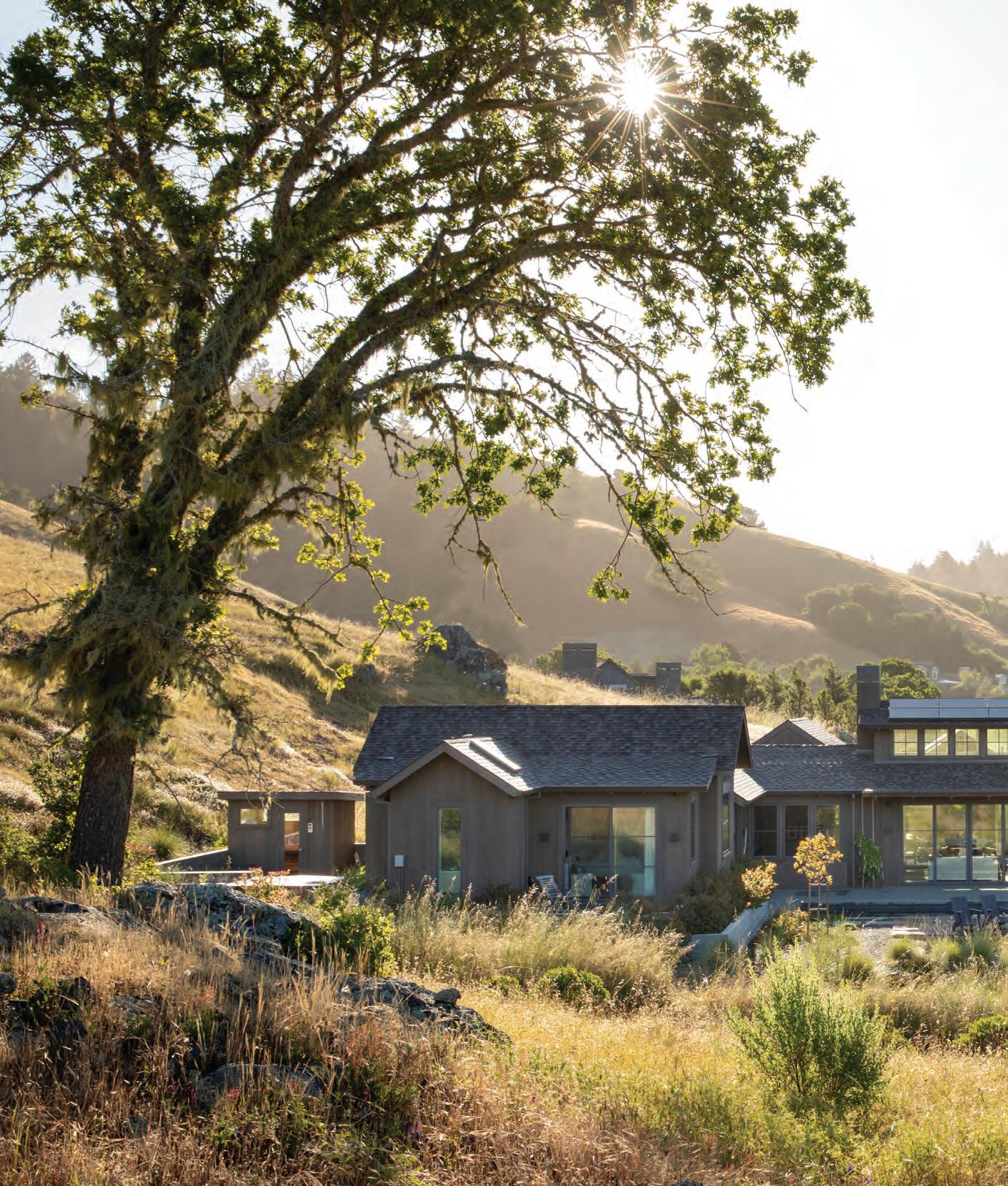
A MOVE AWAY FROM THE CITY PRESENTS AN OPPORTUNITY TO BUILD A HOME THAT INTERACTS WITH NATURE.
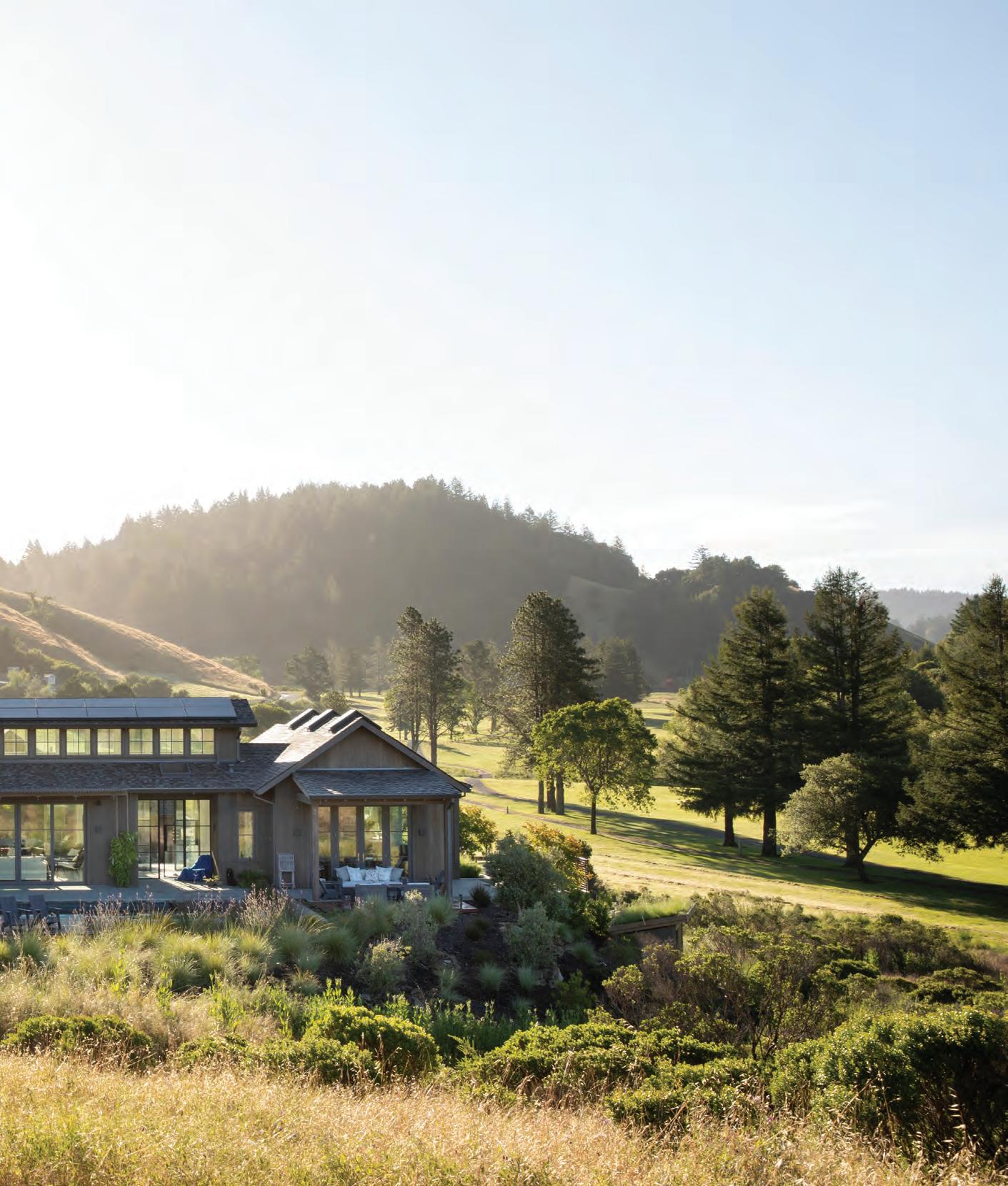 BY CHRISTINA MUELLER • PHOTOS BY PAUL DYER
BY CHRISTINA MUELLER • PHOTOS BY PAUL DYER
AS SIR FRANCIS DRAKE BOULEVARD WINDS ITS WAY WEST OUT OF DOWNTOWN FAIRFAX, THE LANDSCAPE SEEMS TO EXHALE. THE ROAD NARROWS, FLANKED BY DEEP GREEN TREES AND WIDE ACREAGE DOTTED WITH FARM ANIMALS. IT’S A SUBTLE BUT TELLING SHIFT. SENSING THE POWER OF THE LANDSCAPE TO TRANSFORM THEIR DAYS, LISA AND DAN MCHUGH PURCHASED A PLOT OF LAND HERE, JUST OFF NICASIO VALLEY ROAD IN SAN GERONIMO.
“You see that hill over there?” Lisa says, facing southeast. “That’s White Hill. It is the sigh-inducing point that divides Fairfax from Nicasio.”
The McHughs met in San Francisco and spent some 30 years in South Asia — Singapore and Bali, mostly — before returning to the Bay Area to live in San Rafael. Residents of Washington state, where they also have a residence, they sought a place to build their dream house and used the San Rafael location as a temporary base. “We knew we wanted to be in Marin,” Lisa says. “We were always heading out to Point Reyes and felt protective of the environment here.”
Lisa, a visual and interior designer, and Dan, CEO of Livingston International, a shipping and freight service provider, found a parcel of land in the French Ranch subdivision and sought an architect to collaborate with on designing a space and a building that would interact with the environment.
“I wanted the house to have a more dynamic relationship, that requires one to engage with the elements: light, tree frogs, birds and coyotes, constantly changing winds, and the unique fragrance and color of each season,” Lisa says. Wade Design Architects in San Anselmo landed the project. Principal Luke Wade knew it was the right fit for the fi rm, noting that the studio’s previous projects expressed a kind of rural quality that matched the property and the clients’ vision for it. The McHughs, still living in San Rafael, visited


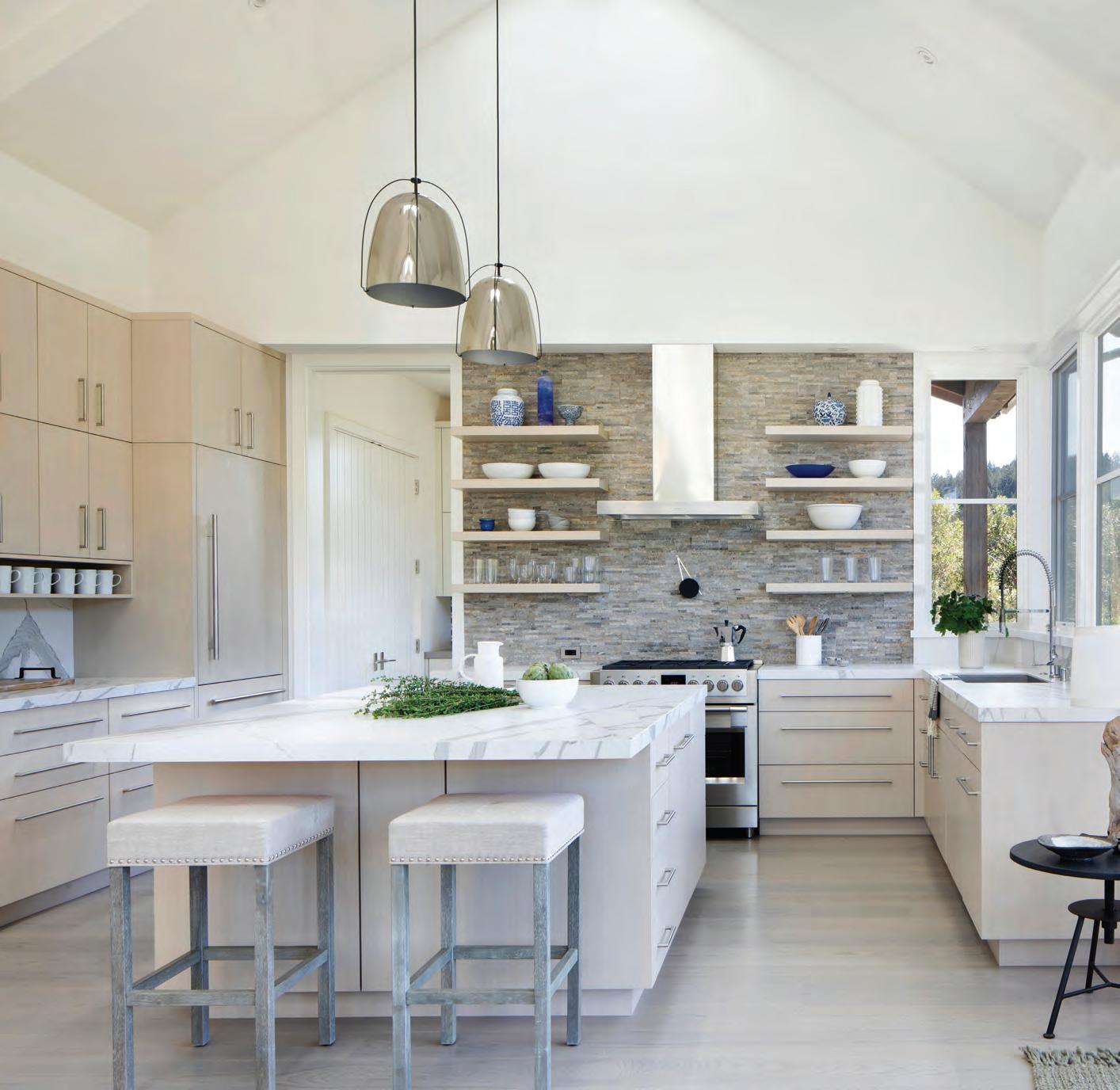
the site frequently, getting to know its unique character and rhythms. “We sat outside with folding chairs and wine for a year before we built anything,” Lisa says.
For this property, technically under Marin County jurisdiction and adjacent to county open space and the former San Geronimo Golf Course, Wade and his team needed to think specifically about the western exposure: the intense sun and prevailing wind that drives the fog relentlessly inland toward the bay. They installed a weather station to monitor what time of day the breeze kicked up. A steep hillside slope on the northern side of the property presented another challenge.
As the initial design took shape, Wade conceived of a pinwheel shape, which not only is less boxy than conventional houses and more like a villa in Bali or Singapore, but would allow light to permeate each room from two sides. Bedrooms and bathrooms would be placed toward the steep hillside, allowing privacy. A courtyard on the eastern side of the home would serve as a shelter or retreat from both wind and heat; a pool on the western side would catch the warmth of the afternoon sun. “That decision let the living room become more pavilion-like, with sliding doors to connect it to the pool and make it a breezeway,” Wade says. The spaces would naturally unfold and “get out of the way of the natural connection between courtyard and pool, between east and west.”

With the design decided, construction started and was completed two years later. Now, with that desired sense of outdoors coming in, that regular interaction with Marin’s greatest natural element — wind — is a reality for the
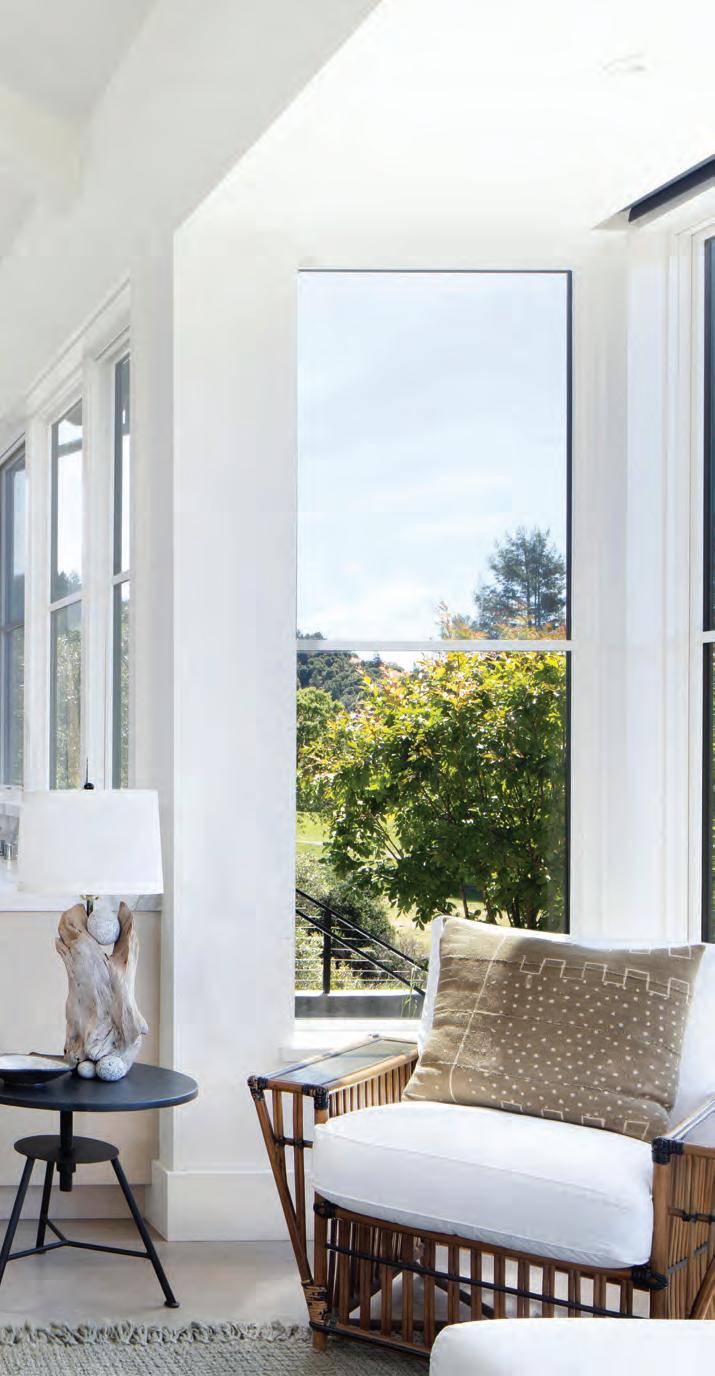
McHughs. They say they especially appreciate that the main entranceway and courtyard make a connection between the home and the San Geronimo environment. “I close and open doors with the wind so I always have the outside in,” Lisa says. “It was so exciting to choose that, to make it happen.”
In the kitchen, Lisa used her art and design knowledge to work with Susan Lund at San Anselmo’s Spatial Design on cabinets and surfaces that are impervious to stains. Lisa built a dining table using scraps that remained from the building project, sanding and finishing it to match the cabinets.
Personal designs infuse this home: Lisa’s own creations and fi nds as well as things from the couple’s years in Asia and Washington state. Cane chairs, sanded down and repainted, traveled with the couple and their two children for more than 30 years. A driftwood lamp is made with wood sourced from the San Juan Islands. In the guest bathroom is a section of orca vertebra found on a beach in Puget Sound; in the bar area is a door from a Tibetan monastery in Kathmandu.
But it is perhaps the living room that commands the most attention. The ceiling soars 16 feet; the nine-foot sliding doors to the east and west bring in light, and above them clerestory windows open, so the couple can fine-tune the breeze. Above the fireplace, the central visual element of the room, a wall of darkened gray plaster reaches to the ceiling; light from all the windows nearby adds a dark warmth and “casts beautiful shadows,” Lisa says. Two white couches from Marin Sofa in San Rafael face each other for ease of conversation and a view outside.
To the right of the fireplace, a doorway leads to the guest bedrooms and a Jack and Jill bathroom; through a doorway on the left is the master suite. Dan’s office is there, along with a gym that has a functional garage door opening to the natural landscape. Behind the bedroom, through a door to a deck, a hot tub and sauna made of cedar occupy the abutting steep hill, which provides a wall of privacy. Small windows inside the sauna frame the hill to dramatic effect.
It is a home that balances the personal and the utilitarian with cozy nooks and plenty of space to be alone or together. “Every time we arrive home,” Lisa says, “we feel both a wonderful connection to place and deeply humbled by and grateful for the joy it brings.” m
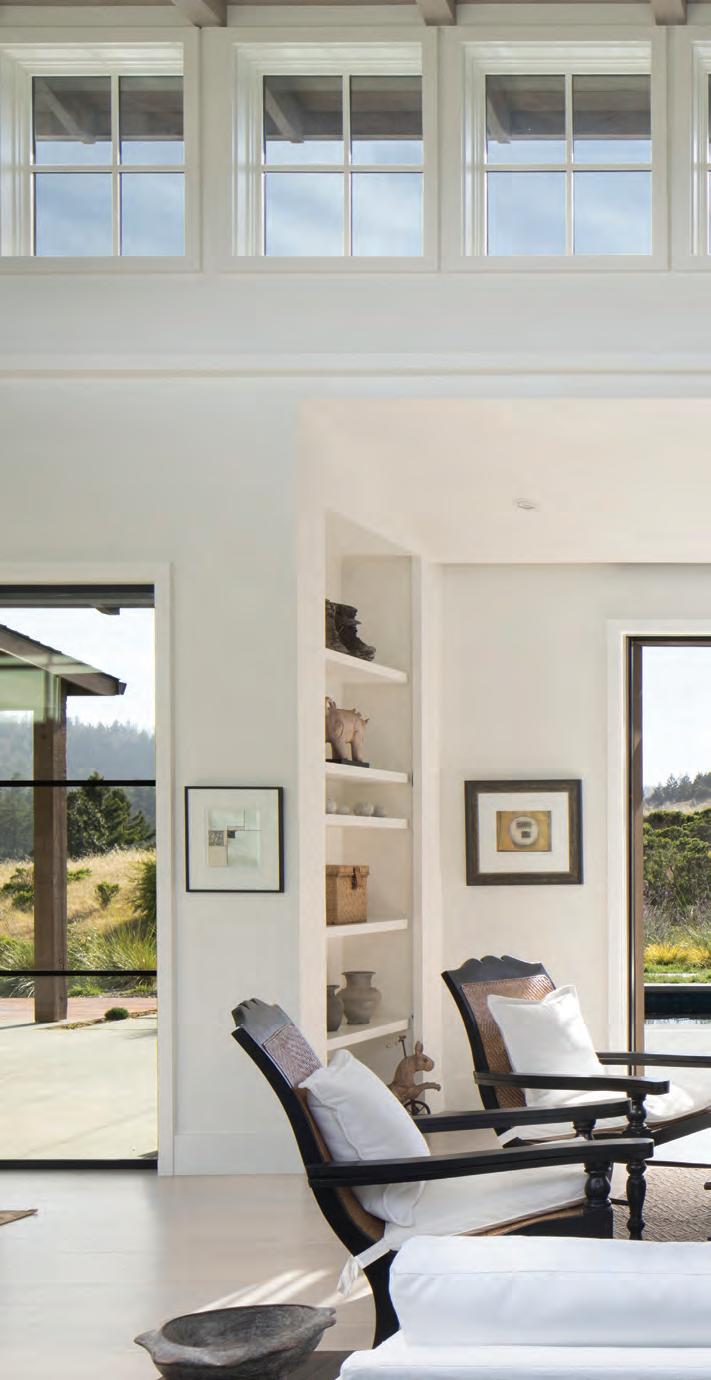
WE SAT OUTSIDE WITH FOLDING CHAIRS AND WINE FOR A YEAR BEFORE WE BUILT ANYTHING.
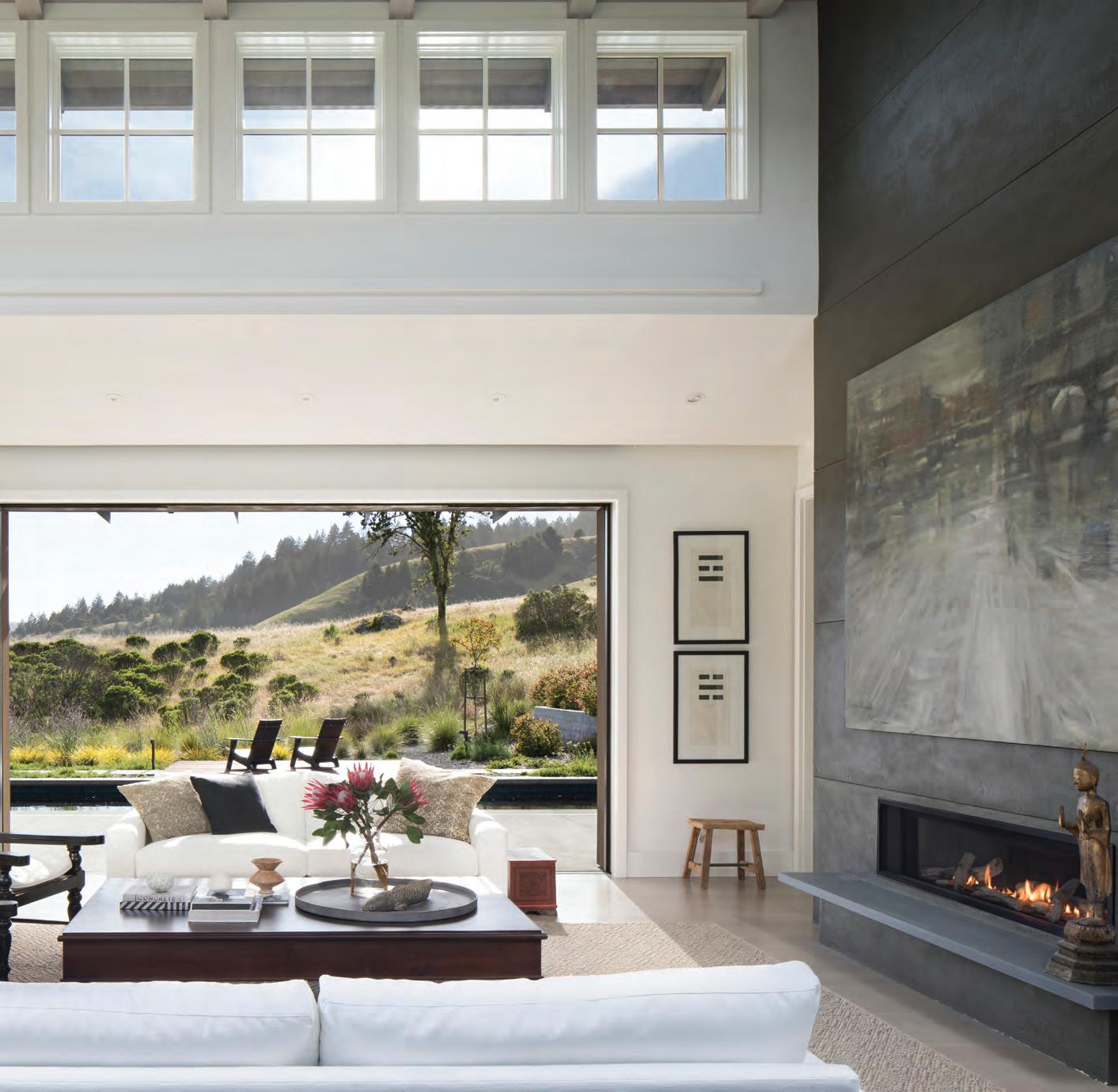
 BY ANN WYCOFF, KASIA PAWLOWSKA AND NIKKI WOOD
BY ANN WYCOFF, KASIA PAWLOWSKA AND NIKKI WOOD
You’ve just had a bluebird powder day in Jackson Hole, caught the perfect wave in Hanalei Bay, or made a bunch of birdies on the back nine at Bandon Dunes, and it suddenly becomes crystal clear: you need to spend more time here. Even better — you need to own a piece of this paradise. Swept up in the moment and under the spell of vacation, you feel like a second home is a really good idea. But is it?
Maybe, if the pull toward the “home” part is genuine and strong. “Owning a second home is a decision that can largely be based on wanting to become part of the experience in another community,” says Marin County realtor Tracy McLaughlin, who owns a second home in Aspen. “Dropping into hotels or Airbnbs is great short term, but really doesn’t allow you to become connected to people who live there,” she adds. “I also think you can create great traditions that become a fabric of your own family by celebrating year after year in one location.”
The practical advantages of owning of a second home are clear: it’s a potential asset that could appreciate; you can style the property to your taste and drop in any time; you can ditch the heavy luggage and leave your gear there; you can rent or swap it out, host family reunions, make new friends and discover a new locale. Sounds good, right? But there are hard, cold realities to consider too, like unexpected expenses, two mortgages, HOA fees, property tax, maintenance, headaches with renters or unfamiliar property managers, guilt for not using the place enough or feeling obligated to use it rather than travel someplace new.
Many real estate experts believe you should only buy a second home if your fi rst home is paid offor if you have the cash to pay for the new one, so you are not taking out another loan. “Second homes should only be for people who have the wealth to be unconcerned with the expense of owning a second home for the short periods they are going to use it, “says San Francisco developer Rich Singer. “And keep in mind that this expense includes the considerable time and energy
You’ve dreamed of owning a second home, but is that option right for you? If the answer is yes, here are four vetted options to consider.
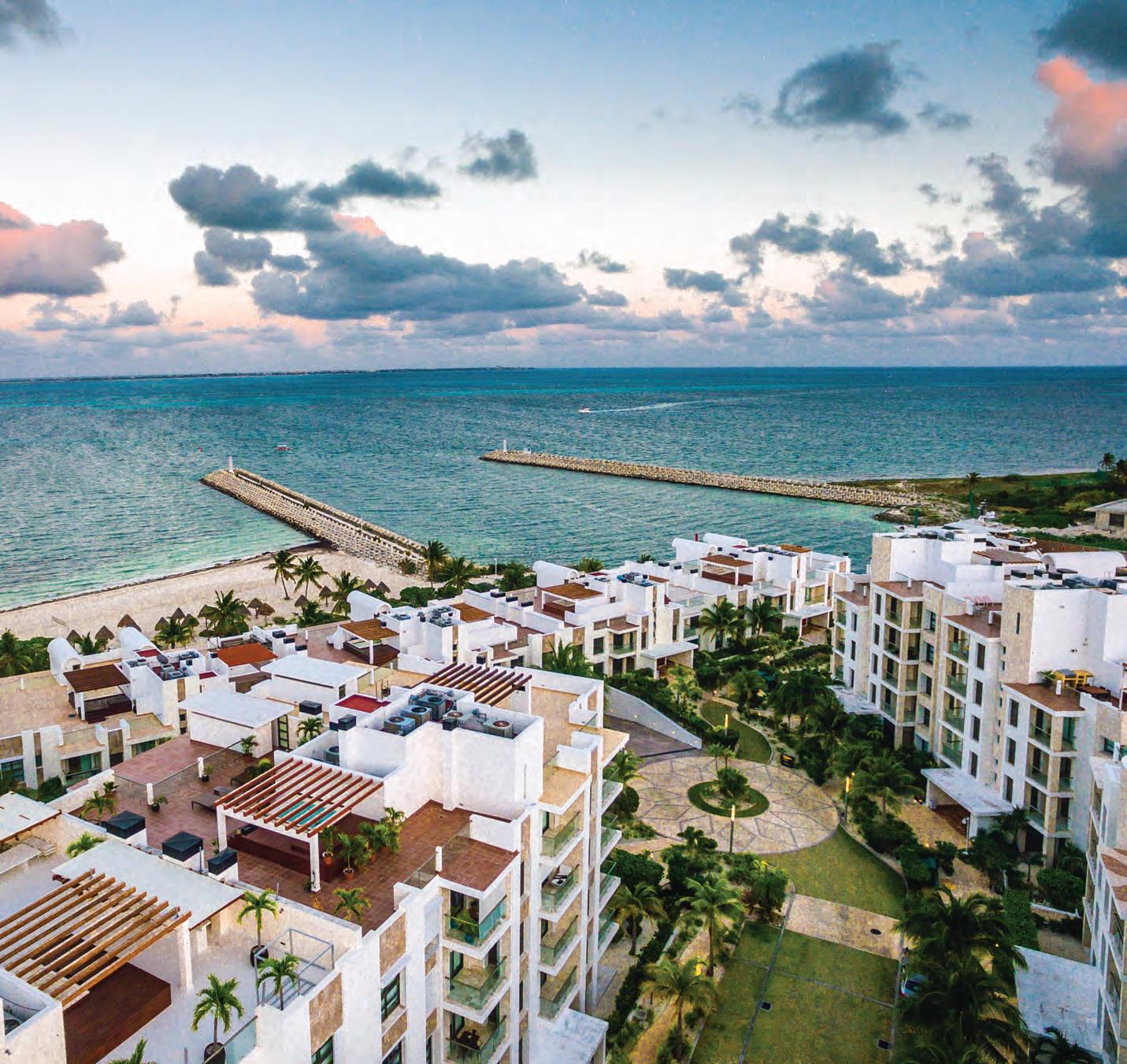
Clockwise from top left at Kohanaiki: The Clubhouse; Hale Club home exterior; Rees Jones–designed 18-hole golf course.
involved in owning and maintaining a property as well as just fi nancial cost.”
Some prospective buyers may expect a second home to be an income generator or pay for itself, but “if you are planning on renting it for income,” Singer says, “the amount will very likely be insufficient to make it a good investment versus other pure investment-minded paths.” Moreover, “if you are going to share with complete strangers,” he says, “then why not just fl ip the table and be a renter yourself and save a lot of time and money?” Plus, “the 2018 tax changes justly got rid of any tax benefits of a second home.”
Even appreciation in value might not be what you’d expect, he warns. “Homes in vacation areas fluctuate in price much more than homes in areas where people generally have their primary residence,” Singer says. “Buying now after so many years of an up cycle puts you at extreme risk of losing your investment.” His advice: “It’s always fun to dream when you’re on vacation, but sober up back at work for a while, paying bills, before you make any long-term second-home commitments you’re very likely to regret.”
Still, second homes are often about intangible value more than anything else. If you look at the purchase only through an economic lens, it likely doesn’t make sense, but if it’s a decision that leads to family bonding and lifelong memories
in a new community, that’s another story, as you can’t really put a monetary price on those things.
According to a recent article in the Wall Street Journal, the hottest second-home destination in the U.S. is Palm Springs, California, followed by Nokomis, Florida, and Lake Geneva, Wisconsin. Here are four second-home spots popular with our readers.
There is luxury and there is casual luxury — a term that perfectly describes Kohanaiki. Founded in 2011 in a partnership with Kennedy Wilson and IHP Capital Partners, the private residential club and development, four miles south of Kona International Airport, is situated along 1.5 miles of Big Island shore. There are numerous amenities exclusively available to member residents and their families and guests.
The centerpiece is the 67,000-square-foot Shay Zak–designed Clubhouse created to maximize views overlooking the golf course and sunsets on the Kona Coast. It houses Konane, an upscale chop house and sushi bar, one of two restaurants on the property. The oceanfront Beach Club is another great choice for meals and provides the unique option of letting guests dine at a table on the sand. Fresh

and local ingredients are standard fare with chef Patrick Heymann overseeing both restaurants.
The property has been described as “golf nirvana.” The Rees Jones–designed 18-hole course is perfectly maintained and flows through ancient lava fields with six oceanfront holes on the back nine. Tee times are paced, with no chance of being rushed or having to wait to tee offon any hole. As an added bonus, luxury comfort stations throughout the course have air-conditioned rest rooms and snack areas with complimentary soft drinks, beer, wine, frozen mai tais, soft-serve ice cream, popcorn, cookies, trail mix and more.

Outdoor activities include deep-sea fishing, outrigger canoeing, stand-up paddleboarding, snorkeling, yoga on the beach and swimming in two pools (one for adults and one for families), with towels and equipment provided. Resort members are assigned a golf cart on arrival, so there’s no need to drive a car on property or hassle with parking: attendants promptly park your cart when you pull up to your destination, whether it’s a restaurant or beachside activity venue. Indoor activities include yoga, Pilates, workouts in a state-of-the-art fitness center, bowling in a four-lane alley, movie-watching in a 21-seat theater and a full menu of spa treatments.
To become a resident: homes and lots are available from $3 million to $20 million; a Hale Club membership can be
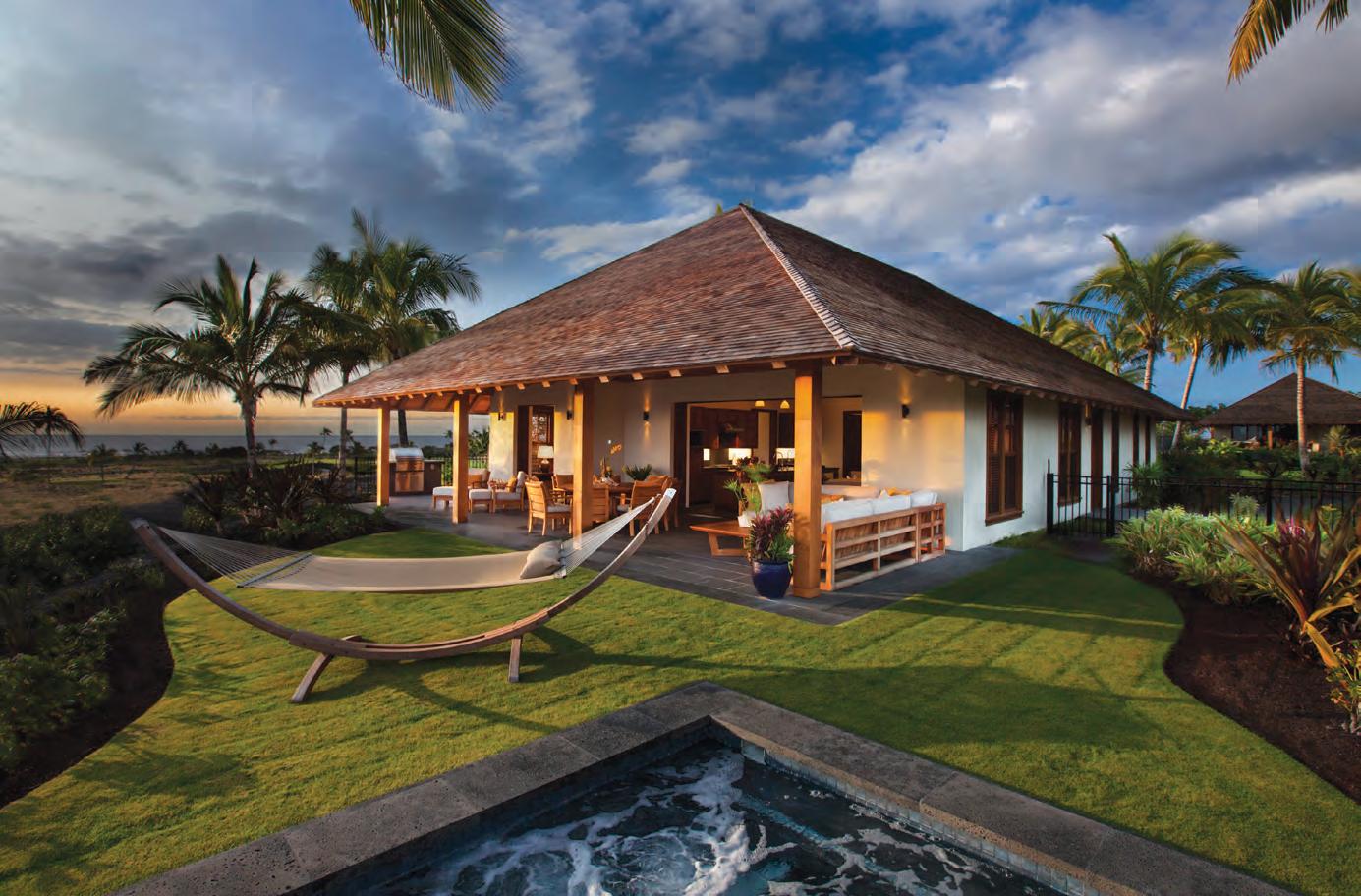
Clockwise from top left at Mayacama: A casita; the rotunda; the Jack Nicklaus signature golf course.
purchased at market rate. The Hale Club consists of 17 freestanding completely furnished homes and are available to members for 45 nights a year. It’s an ideal option for those who want to try out the lifestyle before purchasing a home or lot. The Hale Club membership investment will be applied toward any purchase of real estate on the property if executed within two years. There are a limited number of Hale Club memberships available and the membership will gain or lose value relative to market conditions.
Whether Kohanaiki is a primary, second or third home, time spent there can be the ultimate Big Island experience while being both activity-fi lled and restorative. Residents and members report that the property lives up to its promise to provide casual luxury for all ages. kohanaiki.com
If exceptional golf and extraordinary wine sound like a great pairing for a home away from home, Mayacama is your ticket. An easy drive from Healdsburg, the exclusive golf and residential community celebrates wine country with emerald fairways, a regal clubhouse, Tuscan-style architecture, alfresco living, farm-to-table dining and a wine program to impress the most refi ned oenophile.
Set on 675 acres, the property has 31 home sites and 20-some villas and casitas tucked into the landscape or overlooking the Jack Nicklaus signature course. Following Scottish tradition, the walking course meanders through oak-studded hillsides and golden valleys with elevated tees, undulating greens, water features and natural hazards providing challenges along the way And while you won’t need a tee time, a caddie can guide you through a meticulously maintained course that’s ranked among the top 100 in America.
Home buyers may gravitate to Mayacama for the golf, but some end up staying for the wine. Mayacama’s 40 Vintner Members, who produce wines with Parker ratings 92 and above, readily share their offerings with the community: their wines are spotlighted at monthly wine dinners — often seven-course seasonal a ffairs by executive chef Scott Pikey, who pulls from the “bounty of the county” and his own onsite garden and beehives. There’s also an annual All Vintner Pour each May, a chance to try the wines with food stations and music, following that morning’s All Vintner Cup, when you can play with one of the winemakers in a vino “proam.” Owners also have access to special wine allocations at good prices and can store up to three cases in their personal locker in the Mayacama wine cave. Cheers to that.
Being a multigenerational community, Mayacama offers recreation for every age, including bocce ball, biking, hiking, tennis and swimming in an Olympic-size pool. You can bliss out in the European-style spa or burn calories at the fitness center. A creative kids’ program includes themed summer camps, arts and crafts, a trapeze circus camp, animal safaris and science projects. Young golfers can discover
their swing and chip shot during junior boot camps. Families enjoy drive-in movies and holiday parties.
If you want to get into the real estate game here, options range from fractional ownership to buying to building a custom home . You can become a Residence Club Member with a one-tenth interest for $400,000 including golf privileges and 28 residence days guaranteed per year, or you can fl at-out buy a fully furnished three-bedroom Tuscan villa for $3 million. The villas are maintained and managed by the club, and if you use yours fewer than 120 days a year you pay no property taxes or maintenance. Twenty-one of the property’s 31 single-family home sites have been built out, but some one- to-two acre lots remain available at an average price of $1.2 million. Completed single-family estates occasionally come onto the market in the $4.5 million range.
Another member bonus: a 24/7 concierge staffcan stock villas with favorite foods, create itineraries for customized VIP winery tours, and more. mayacama.com
A Luxury Base Camp in the Great Outdoors
For those wanting an alternative to the chaos of trafficchoked Lake Tahoe, Nakoma offers refuge. Head north from Truckee on two-lane Highway 89, and 45 minutes later you’ll fi nd a tranquil wilderness spot with an easy pace, perks and a ffordable real estate.
The heart of this mountain resort is a 42-room lodge and an architecturally significant clubhouse designed by Frank Lloyd Wright. The 1923 plans were purchased by Nakoma from Wright’s legacy fi rm Taliesin, and the clubhouse fi nally came to life in 2001. Soaring ceilings, stained glass, a 60-foot-tall four-sided fi replace, decorative Native American motifs and friezes reflect Wright’s touch. Picture windows in the octagonal room frame long Sierra views and elicit a sense of grandeur by pulling in the natural wonderland outside, a trademark aspect of Wright’s organic style.
The Residence Club at Nakoma offers shared ownership in Frank Lloyd Wright–inspired studios and one- and twobedroom villas designed by Taliesin-trained architects that line the 10th fairway of the Dragon Golf Course, with prices ranging from $49,750 to $89,625 , including golf memberships. For casual single-family living, Ascend at Nakoma offers two-acre lots for an average price of $90,000. Buyers can build a custom home or take the turnkey route and let Ascend’s team (Grouparchitect, Method Homes and Mark Tanner Construction) build them a two- to four-bedroom mountain home with indoor/outdoor living space and stylish Restoration Hardware interiors for about $300 a square foot. That includes architectural planning, engineering and permits. Homeowners are also welcome to put their residences into Nakoma’s rental pool when not using them.
Ascend owners have access to the brand-new centerpiece of the community — Altitude Recreation Center, a 12,000-square-foot glass jewel box with floor-to-ceiling
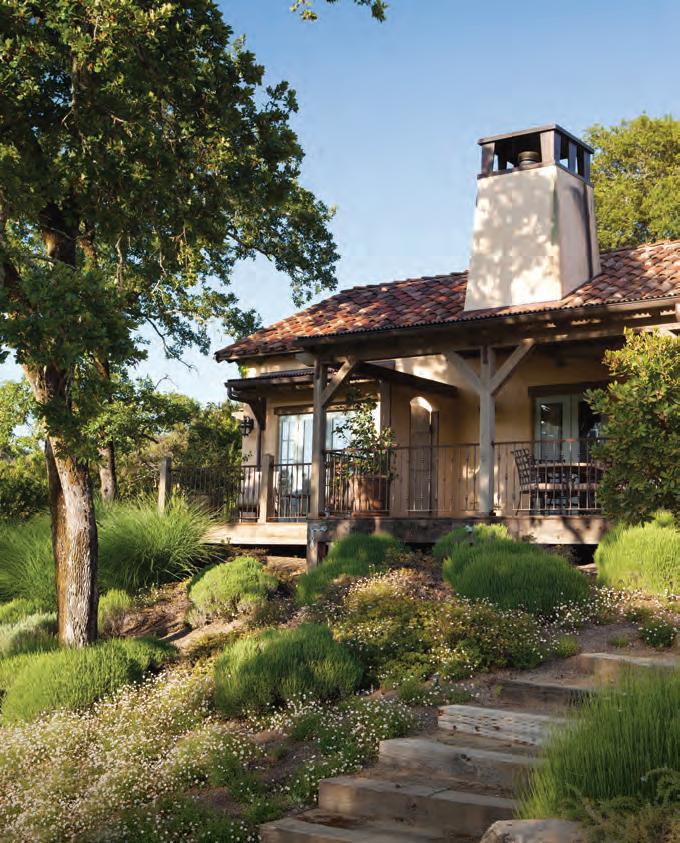

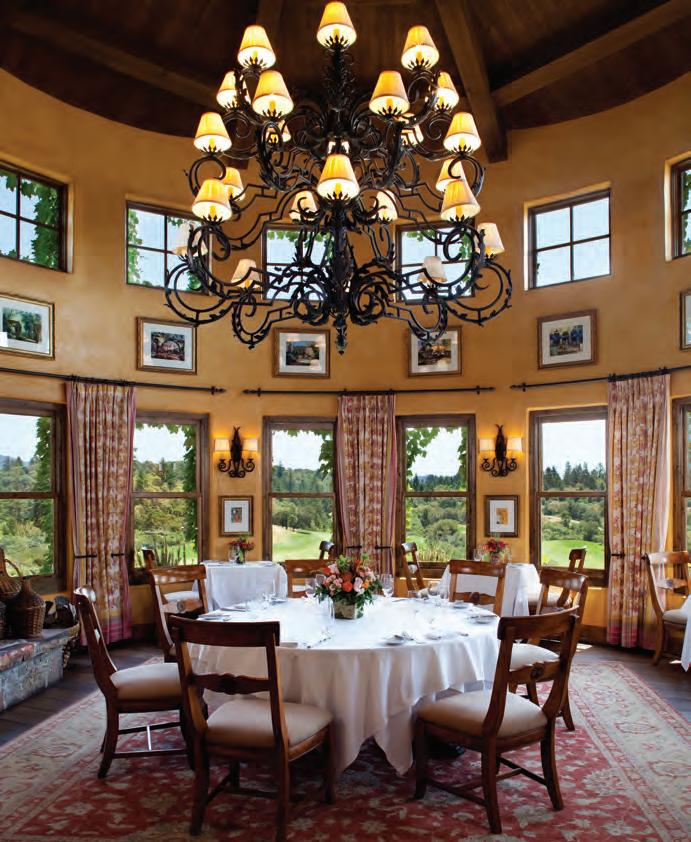
Above: Dinner at the Frank Lloyd Wright–designed clubhouse at Nakoma. Opposite, clockwise from top left: The pool at Nakoma; rock wall at Nakoma; adventure awaits at La Amada; a private terrace at La Amada.

windows. Families gather here for year-round swimming in the heated pool, hot tub soaks, tackling the climbing wall, workouts at the fitness center, flicks in the movie theater and healthy fare at the Bar & Bistro. Elsewhere, kids can busy themselves in a game room or crafts center while Mom and Dad play the Dragon Course or relax in the spa. Plans are in the works for pickleball, tennis, volleyball and basketball courts, and an adventure park with a zip line, disc golf and bike park.
But the real allure of Nakoma lies in its pristine surroundings, a region deemed the “Lost Sierra,” with more than 20 glacial lakes just 10 minutes away in the Lakes Basin Recreation Area; the nearby Sierra Buttes, reminiscent of the Swiss Alps; and even part of the Paci fic Crest Trail. It’s an alpine playground where you can mountain-bike, fish, cross-country ski, snowshoe, horseback-ride, hike, or just unplug and immerse yourself in the beauty of the great outdoors. nakomaresort.com
Swaying palm trees, gentle lapping turquoise waters, a white sand beach speckled with palapas — this place has all the trappings of a luxury resort, but even better, it’s your second home. Located half an hour north of the Cancun airport, close enough to the action yet out of the fray, the La Amada residences within the gated community of Playa Mujeres is
a secluded playground in one of the most idyllic settings in the region.
The property recently underwent an $8 million renovation by the firms Hamak and PowerPlay Destination, the latter of whose portfolio includes Montage Residences Kapalua Bay on Maui and Kohanaiki on the Big Island. Starting in the mid-$300,000s, the 215 residences range from one to three bedrooms and feature spacious kitchens, marble floors, large sliding doors, private terraces and deep soaking tubs; the penthouses include sprawling accessible rooftops.
Among the additions to the property’s already robust offerings are a beach club replete with expansive decks, shaded cabanas, a swim-up bar and two new in finity rooftop pools. Other highlights include a well-appointed gym with views of the pool and gardens and a marketplace cafe that carries grocery staples and to-go offerings.
An 18-hole Greg Norman–designed golf course, considered one of Mexico’s best, is just outside the residences and is surrounded by lush jungle flanking the Caribbean. La Amada’s on-site deepwater marina has 176 slips for boats up to 200 feet in length.
The property is a prime fishing and marine adventure spot, located next to the world’s second-largest coral reef and close to the world-renowned scuba-diving of Cozumel. A quick boat or ferry ride away lies charming Isla Mujeres, where visitors can explore by golf cart and have ceviche, margaritas and a ffordable massages on the beach. laamada.com m

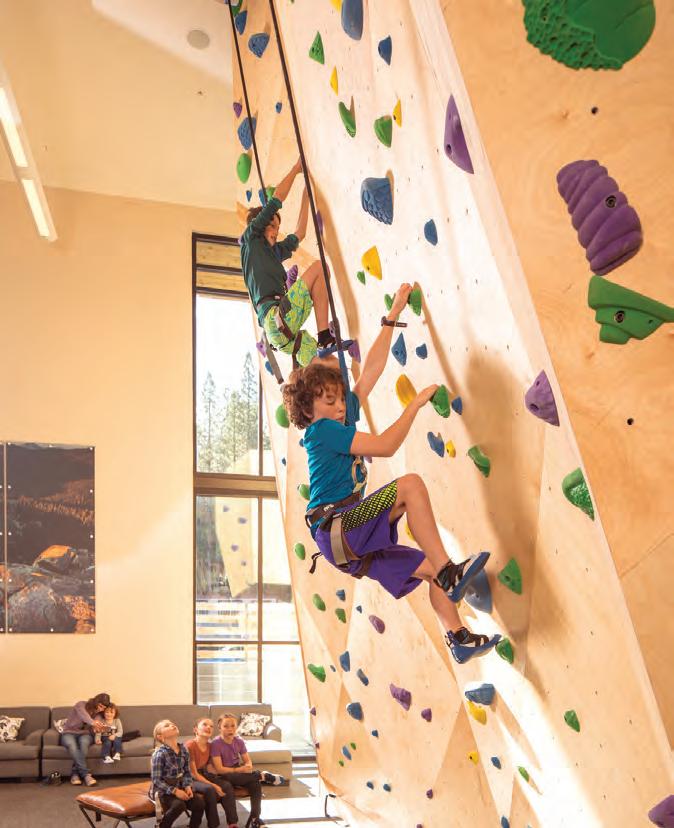

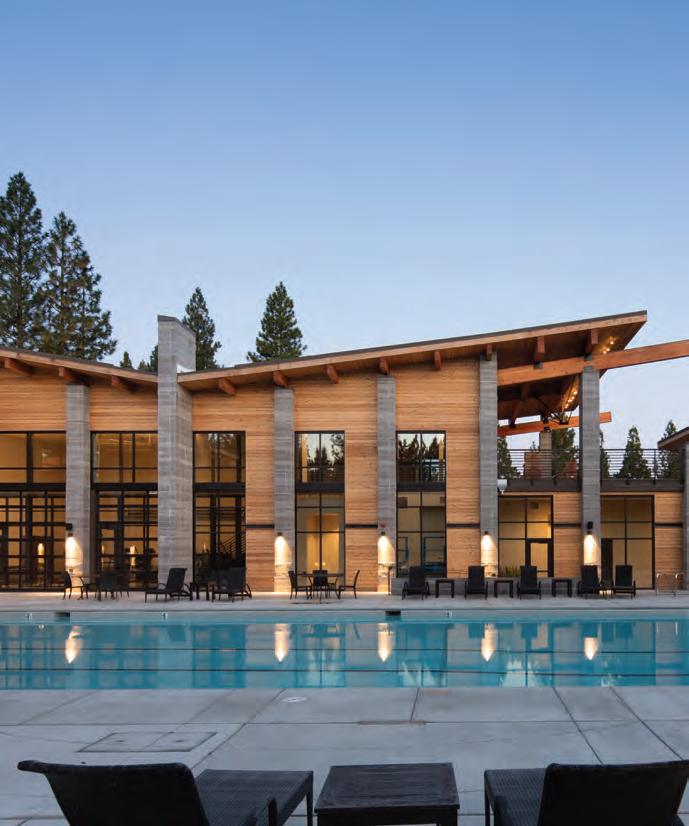
In existence since 1892, San Anselmo’s San Francisco Theological Seminary i s fi nding new ways to stay relevant.
 BY MARK ANTHONY WILSON
BY MARK ANTHONY WILSON
IT’S NO SURPRISE THAT theological seminaries have lately fallen on hard times. Enrollment is down at many of these institutions, especially in California, where an increasingly secular society places less value on religious education that it once did. As a result, many seminaries face the possibility of soon having to close their doors.
The San Francisco Theological Seminary, in San Anselmo in the shadow of Mount Tamalpais, is no exception in that trend. This Presbyterian seminary has occupied a lovely, tree-shaded campus on the eastern edge of town since 1890, when it moved there from its original location in San Francisco. But SFTS, as it’s often called, has decided to face its challenges head-on. Its directors have devised a plan of action to both keep their institution open and make its programs more relevant to 21st-century theology.
In July 2019, SFTS announced it had completed a merger with the University of Redlands in Southern California. This merger will create the new Graduate School of Theology at the University of Redlands and still allow the San Anselmo location to continue offering degrees in theology and related fields. The deal also allows SFTS to preserve the beauty of the San Anselmo site’s many historic buildings and ensure they can keep serving the purposes for which they were designed. The buildings here are an impressive example of late 19th- and early 20th-century architecture, including two structures by Julia Morgan.
Visitors to the campus of the San Francisco Theological Seminary often remark that the setting reminds them of a small private college on the East Coast or in the Midwest. Indeed, this campus contains one of the few collections of Richardsonian Romanesque Revival architecture in California. That style, created by H.H. Richardson in the 1870s, debuted in the design of Trinity Church in Boston in 1877 and soon became popular for religious buildings east of the Mississippi River, although less so for structures in the West. In California, one reason for its scarcity was that it employed rusticated stone walls in imitation of medieval European churches, which was seen as risky in earthquake country. The 1868 Hollister earthquake in the East Bay had done major damage to churches in then-sparsely populated Alameda County. Yet memories of
that devastation had faded by the time the San Francisco Theological Seminary moved to its Marin campus in 1892.
When SFTS opened in San Francisco in 1871, it had four professors and four students, who met for classes at Presbyterian City College in Union Square. Six years later the seminary moved to a new building next to City College on Haight Street. Seeking a location with a more “salubrious air,” in its directors’ words, it moved to its current 24-acre campus on a hilltop in San Anselmo. Marin railroad owner and banker Arthur W. Foster donated the land in 1889 (originally 19 acres; more were donated later). Later that year, San Francisco financier and philanthropist Alexander Montgomery provided a $250,000 endowment for the building fund and $100,000 for faculty salaries.
The first two buildings on the new campus were in the Romanesque Revival style: Montgomery Hall, named after benefactor Montgomery, and Scott Hall, named for Mrs. A.W. Foster, daughter of SFTS founder William A. Scott. Both buildings were dedicated on September 21, 1892, when opening exercises were held. Montgomery Hall was originally the student dormitory and now houses faculty and administration offices. It was designed by the San Francisco architectural firm Wright and Sanders, as was Scott Hall, which originally contained a library, auditorium and classrooms and now also holds the student lounge.
Montgomery Chapel, as yet another Richardsonian Romanesque campus
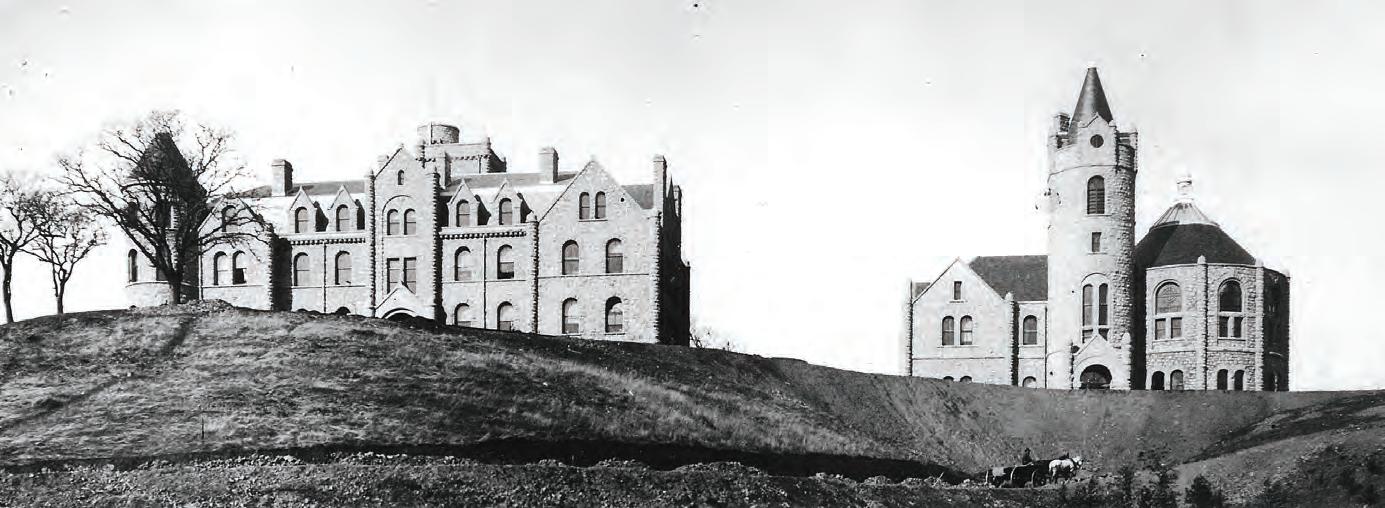
Left to right: Montgomery Chapel was built with a $40,000 donation and completed in 1897; a loggia lined with Romanesque arches connects the chapel to Montague Hall; Montgomery Hall; the President’s House was designed by Julia Morgan in 1921.


architectural gem, was also designed by Wright and Sanders; construction began in 1894, was completed in 1897 and was funded by namesake Alexander Montgomery with a $40,000 donation. The chapel served as the campus’s First Presbyterian church until the late 1950s; today, religious services, as well as seminars and small classes, are still held there. With its round corner bell tower topped by a conical spire and cast-iron weather vane, thick rusticated stone walls, and wide rotunda, this is perhaps the purest example of Romanesque Revival architecture in the state. A loggia lined with Romanesque arches and squat columns connects the chapel to adjoining Montague Hall, also Romanesque in style, which serves as a reception and meeting space.
Julia Morgan, America’s fi rst independent licensed female architect, designed three buildings for the San Francisco Theological Seminary campus in the 1920s. The first one was intended to be a large dining hall, for which she produced a full set of blueprints. That structure was never built; instead San Anselmo architect J. Harol d Osborn in 1928 designed the more modest brown-shingled Playhouse, which still stands on that site. In 1921 Morgan completed design for two residences on campus, one each for faculty and administrators.
The larger of these is the President’s House, at 47 Seminary Road. This three-story
brown-shingled house is a skillful blend of Arts and Crafts and Prairie styles. The facade presents a long horizontal mass, with a low-angled roofl ine and minimal ornamentation. In the center of the third story is a wide overhanging pavilion with a Palladian-style window; on either end of this story are latticed casement windows. Across the road, at 118 Bolinas Way, is the Dean’s House, originally designed as faculty housing. This two-story brown-shingled residence is in the Prairie Style, with Bay Tradition overtones. The horizontal massing, low-sloping roofl ine, and banded windows are Prairie features, while the unpainted shingled facade and flower box across the middle of the second story are Bay Tradition touches. Morgan also worked with Donald McLaren, son of John McLaren, who designed Golden Gate Park, on a landscaping master plan in 1921, most of which was never realized.
The last building on campus designed in a historic style was the neoGothic Geneva Hall, completed in 1952. The Santa Barbara fi rm of Soule and Murphy modeled it after a 13th-century Franciscan monastery in Assisi, Italy. It’s one of the largest buildings at SFTS, and its 100-foottall white stone tower dominates the campus. This multiuse structure includes a six-story library, a student resource center and the Stewart Memorial Chapel. The seminary’s main worship space, with seating for 200 people, was named after Mary Hurt Stewart, the second wife of one of the seminary’s fi rst elders, who donated half her estate to pay for the chapel. The nave, with its massive dark-oak Gothic arches, light-oak back altar decorated with a scene from “The Last Supper” and iridescent stained-glass windows, creates an authentic Gothic ambience. The 50-foot ceilings, coffered paneling along the lower walls and huge organ in the organ loft complete the effect.
Surprisingly, the 1906 San Francisco earthquake did only moderate damage to the buildings on the SFTS campus. The tower of Scott Hall suffered the most serious impact, necessitating removal of its top 20 feet. All the masonry buildings on campus were earthquake retrofitted in the early 2000s.
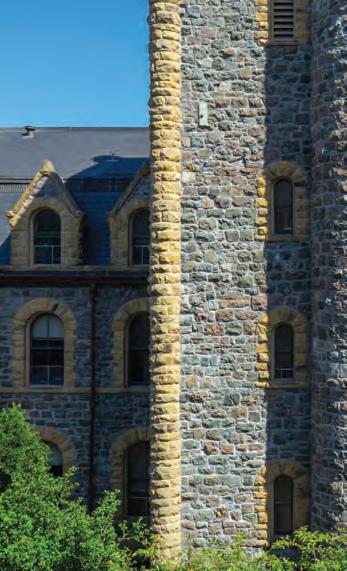
Jana Childers, dean of SFTS and VP for Academic A ff airs, has been teaching at the seminary since 1985 and has a Ph.D. in homiletics (the academic study of preaching) from the Graduate Theological Union in Berkeley. She describes the dilemma seminaries are facing in both numerical and cultural terms: the current student enrollment is 200, down from 500 students 15 years ago. Last year there were only 39 graduates. However, the student body has grown more diverse in recent years — 50 percent are people of color and 50 percent are female — as has the faculty: 60 percent people of color, two-thirds female. The current tuition is $18,000 per year, and grants are offered on a need and merit basis. After the merger with University of Redlands, the seminary will offer dual degrees, including MBAs and MSOLs (master of science in organizational leadership). “Many of our graduates go on to create their own nonprofits, like ministering to immigrants from Vietnam and Cambodia in the Sacramento area,” Childers says.
She is intent on ensuring that the seminary remains relevant to American society and the issues it faces today. Several years ago, facing declining enrollment and diminishing interest in studying for the ministry among young people, SFTS leaders recognized they had to come up with a creative solution. So they formed an exploratory committee and talked to several graduate schools about a merger, fi nally settling on Redlands. As a result, SFTS will now become a graduate school within the University of Redlands, and students from both schools can take classes on either campus.
According to Chris Ocker, professor of church history at SFTS, the seminary’s curriculum originally had a rigorous classical focus, with instruction in Latin and ancient Greek. Would-be pastors were trained to fit the traditional idea of what a Presbyterian clergy member should be, a much more limited role than current pastors are called on to perform. “Women were only trained to be educators and missionaries at that time,” Ocker adds.
A documentary about SFTS, narrated by actor Jimmy Stewart in 1963, was made at a time when these traditional values still held sway. Another media figure associated with SFTS, Bernard Mayes, was a broadcaster and programmer at the SFTS student radio station in the mid-1960s, Ocker says — and sale of that station’s transmitter led to the formation of KQED-FM in 1969. Mayes went on to become the first general manager of NPR in the 1970s. Also, Robert Sproul, former chancellor of the University of California and namesake of Sproul Hall on the UC Berkeley campus, was on the board of directors of the SFTS student radio station during the 1940s.
“What’s unusual about SFTS is that we’re able to hold spirituality and social justice together,” Childers says. “And we have a passionate commitment to innovation. As churches change, we want to be on the cutting edge of what’s next, so we can address both the needs of rural poverty and the unique challenges of urban ministry. We’re working to expand our ministries of justice, peace and healing to meet the demands of the 21st century.”
As the San Francisco Theological Seminary prepares to celebrate its 150th anniversary next year, it seems to be on a path to honor its past and look with confidence and energy toward the future. m

This article was prepared with information provided by SFTS’s Stephanie Miller, branch librarian, and Liz Huntington, VP of marketing and communications.

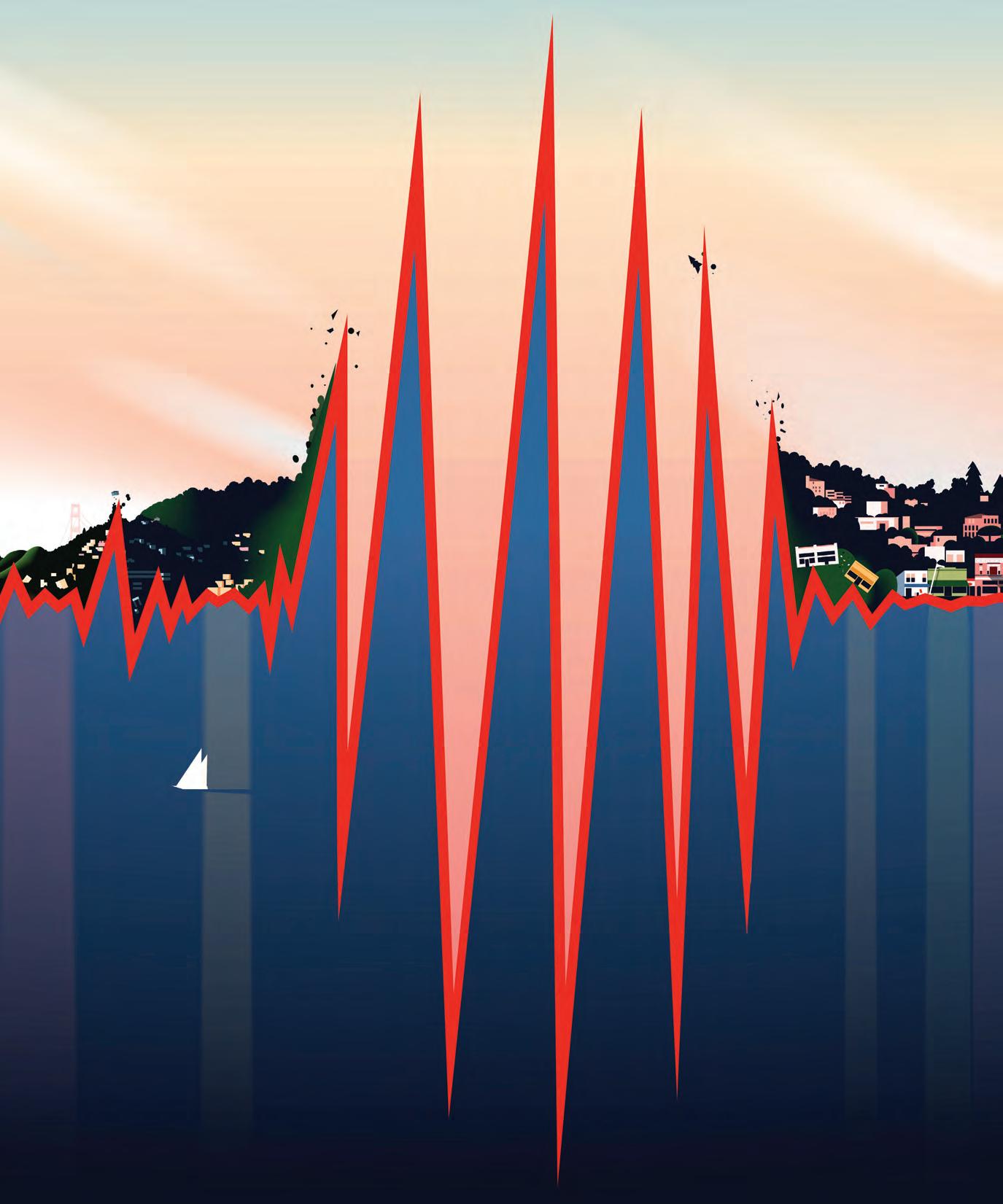
The Loma Prieta earthquake struck the Bay Area 30 years ago this month. What have we learned about temblors in the decades since? What do we do when the next “big one” hits?
ONthat October late afternoon, Allen Fish was in his office at Golden Gate Raptor Observatory in the Marin Headlands. It was migration season, and Fish, the observatory director, had volunteers out tracking hawks. “Most had gone for the day,” he recalls. “But there were a few people still out. I was waiting on them. Then the shaking started.”
Fifteen miles south, Greenbrae resident Rich Swanson and his girlfriend (now wife) Maradee Davis had found their seats at Candlestick Park and were waiting for the third game of the World Series — San Francisco versus Oakland A’s — to begin. “At first the shaking wasn’t that intense,” Swanson remembers. “I thought people were stamping their feet. But it got stronger. I realized, this is a big quake.”
Halfway across the planet, Lisa Taggart stood at a pay phone in Cairns, Australia, making a surprise call to her mother in San Anselmo. A Harvard junior, Taggart was spending a term abroad studying cane frogs. “Our camp was in the jungle an hour away,” Taggart recalls. “We were on semester break, so we got to go into town. I hadn’t talked to my mother since September — this was before the internet, before cellphones. I was excited.”
In her kitchen in San Anselmo, Mary Beth Taggart picked up the ringing phone. The house began to tremble. “It was very hard shaking,” she remembers.
“The connection was noisy and weird,” Lisa Taggart says. “I said, ‘Mom, it’s me.’ ”
“I said, ‘There’s an earthquake,’ ” Mary Beth Taggart recalls. “I need to get off he phone.”
It was 5:04 in the afternoon, Tuesday, October 17, 1989. What Allen Fish (no relation to the author), Rich Swanson, Maradee Davis, and Lisa and Mary Beth Taggart were experiencing was the Loma Prieta earthquake, 6.9 on the Richter scale, although at that moment neither the quake’s magnitude nor the epicenter that would give it its name were yet determined. The quake lasted approximately 15 seconds. It was the most powerful to strike the Bay Area since 1906. It would shatter downtown Santa Cruz, set fire to San Francisco’s Marina District, pancake a section of I-880 in Oakland and partially collapse the Bay Bridge. It would cause 63 deaths and 3,753 injuries and do an estimated $10 billion in damages.
Thirty years after that October afternoon, Marin County and all the Bay Area still feel the effects of Loma Prieta. On its 30th anniversary, earth scientists probe the forces that generate temblors like Loma Prieta and, more recently, this summer’s Ridgecrest and 2014’s Napa. We non-scientists ask ourselves, when and where will the next big quake hit? When it does, what do we do?
Seismologists quickly determined that the epicenter of the October 17 earthquake was in the Santa Cruz Mountains, near a peak named Loma Prieta (in Spanish, “dark hill”). The quake struck on a segment of the San Andreas Fault, the roughly 800-mile-long fault zone that runs two-thirds of the length of California, starting near the Salton Sea and ending off the Mendocino coast. Even people who don’t know much about earthquakes know about the San Andreas: that it has generated many of California’s biggest quakes, including the San Francisco cataclysm of 1906; that it is the product of two continental plates, the North American and the Paci fic, sideswiping each other like two SUVs in a parking lot. And that it has sculpted some of California’s most beautiful landscapes — including Marin’s, because the fault slices through the western third of the county, entering near Bolinas, following Tomales Bay and Highway 1 north and plunging back into the ocean near Dillon Beach.
The San Andreas is also, says Ross Stein, scientist emeritus at the U.S. Geological Survey and consulting professor of geophysics at Stanford University, “one of the most studied faults in the world.” Indeed, Stein adds, the San Andreas has been poked and probed so much it’s like a worn-out children’s toy. “It’s the Velveteen Rabbit of earth science. We love it so much its eyes have popped out.”
What have scientists learned about the San Andreas since Loma Prieta? A lot, says Stein — and much of the new knowledge came from studying the 1989 quake. One big discovery, he notes, is that “earthquake faults don’t operate in isolation — they in fluence each other. Right after Loma Prieta we saw profound changes in the South Bay. The Calaveras Fault turned off . The San Gregorio Fault turned on. Understanding these quake conversations is one of the most powerful tools we’ve developed in the last 30 years.”
Other advances are technological. To understand earthquakes you need to know — very precisely — how and where the ground has moved in a quake, and how the ground might be storing up energy for a future quake. Earth scientists now get these precise measurements by using satellites to bounce radar off he earth’s surface. “Our techniques have gotten better and better,” says Howard Zebker, a Stanford professor of geophysics and electrical engineering, who helped develop the method while at Pasadena’s Jet Propulsion Laboratory in the 1990s. “In principle, when we know where the energy is being stored, we can say which places are more likely to have an earthquake and which places less.”
And yet despite these advances, our understanding of earthquakes remains frustratingly incomplete. Take a basic question — what
THE LOMA PRIETA QUAKE LET MARIN OFF RELATIVELY EASY. DAMAGES IN THE COUNTY WERE $1.6 MILLION OF THE $10 BILLION BAY AREA TOTAL.
triggers big earthquakes? “One theory,” Ross Stein says, “is that any little quake has a small probability of cascading into a larger quake. Another is that there’s something unique about conditions on some faults that make them more likely to produce big quakes.”
We still don’t know which theory is correct, and that and other uncertainties mean that while we’ve gotten better at estimating general quake risks, we’re a long ways from making more speci fic time and place predictions. When it comes to those, says Stein, “We have to acknowledge that all our efforts have failed miserably.”
Which leaves us … where? The California Earthquake Authority estimates that Marin — vulnerable to quakes on both the San Andreas and Hayward faults — has a 76 percent risk of experiencing a 7.0-plus quake in the next 30 years. But it’s not as though we can add the event to our Google calendar: November 12, 7.1 quake centered in Bolinas
Ross Stein says that doesn’t matter — understanding the general risk is more useful. “When you think about it,” he says, “if you predicted a 7.0 on the Hayward Fault one week in advance, everybody would leave. Lives would be saved, but everything would be destroyed.” A far better option, he believes, is knowing where quake risks are the highest, then building structures that “can withstand anything the faults can hurl at them.”
Stein is pushing that process forward with Temblor, a new app for iPhone, Android and the web he developed with Turkish geophysical engineer Volkan Sevilgen. Give Temblor your info — including home address and your home’s age — and it will estimate how vulnerable your property is to a quake, even how much monetary damage you’re likely to su ffer. “We wanted everybody with a cellphone on earth to know their risk,” Stein says.
Temblor also provides guidance on the two toughest quake decisions homeowners face: buying (or not buying) earthquake insurance, and how to seismically retrofit their home.
“Whenever there’s a big quake, like the one in Ridgecrest, I get a lot of calls about insurance,” says Stephanie Cannell, a Farmers Insurance agent in Mill Valley. (The California Earthquake Authority reported that it sold 23,861 new earthquake insurance policies in July, the second-largest monthly net increase in its 23-year history — interest presumably generated by the Ridgecrest quake.) Earthquake insurance exists because standard homeowners’ policies don’t cover quake damage. Currently, only about 10 percent of California homeowners carry such coverage, in part because policies have had the reputation of being expensive — average premiums run about $800 a year — and of coming with high deductibles. But policies offered by the CEA — a nonprofit agency founded after the 1994 Northridge quake — have improved the situation, Cannell says: “They offer more deductible options and are easier to customize.”
Seismic retrofitting can also be complicated. Mel Victor, of Marinand San Francisco–based Victor Construction and Engineering, says that even houses built as recently as the 1970s may be vulnerable to
One major change since 1989: the quantity and quality of earthquake information available online has greatly improved. Resources include: California Earthquake Authority The nonprofit agency offers earthquake insurance in conjunction with a homeowners’ policy; its website maps earthquake risk by county and has other useful information. earthquake authority.com
Ready Marin County source for emergency preparedness. readymarin.com
Temblor.net The app will determine your home’s quake risk and estimate damages; it will also direct you to insurers and seismic engineers. temblor.net
U.S. Geological Survey: Putting Down Roots in Earthquake Country Handbook offering a thorough and detailed overview of Bay Area quake risks and how to plan for them. earthquake.usgs. gov/contactus/ menlo/prepare
quakes, especially if — as is common in Marin — they’re built on a hillside. As for retrofit cost, “the average can be all over the board.” Unfortunately, that’s because “a lot of people opt to do the minimum and they choose contractors who don’t do a good job,” Victor adds. Bolts and foundation plates to anchor the house to its foundation are retrofit essentials, he says, as are, frequently, shear walls that add structural integrity. Look for local contractors with good internet reviews, Victor advises, and expect to pay anywhere from $25,000 to $100,000.
The Loma Prieta quake let Marin offrelatively easy. Damages in the county were $1.6 million of the $10 billion Bay Area total. No fatalities occurred in the county itself, although three Marin residents died in the collapse of Interstate 880.
Still, for Marin residents who went through it, Loma Prieta memories remain indelible. After the shaking stopped, Rich Swanson and Maradee Davis shu ffled with 62,000 other baseball fans out of the stadium into Candlestick’s parking lots. “We heard on somebody’s radio about the Bay Bridge, about the Marina being on fi re. I said to Maradee, ‘Let’s get out of here.’” It took them six hours to drive the 15 miles home.
In Australia, Lisa Taggart tried calling her mother Mary Beth later that day but was unable to get through. In Cairns bars, televisions showed alarming news: 10,000 feared dead in San Francisco quake. “I wasn’t able to reach my mom for three days,” Taggart says. “By then the news had been corrected — [fewer] than 100 dead.” Allen Fish rode out the quake at the Raptor Center. “One of the volunteers was listening to the radio and he said the Bay Bridge was down.” Fish’s father had been with him earlier in the day, had driven over the Bay Bridge and just exited 1-880 in Oakland in time to watch the freeway collapse behind him. “It was scary,” Fish says. “It a ffected him for weeks.
“So many of the roads were blocked,” he adds. “I had nowhere to go. I drove up to Hawk Hill. There were about a hundred of us there. We could look through the Golden Gate Bridge and watch the Marina burn. None of knew what to do. We were just bearing witness.”
As we’ll do the next time. And there will be a next time. m
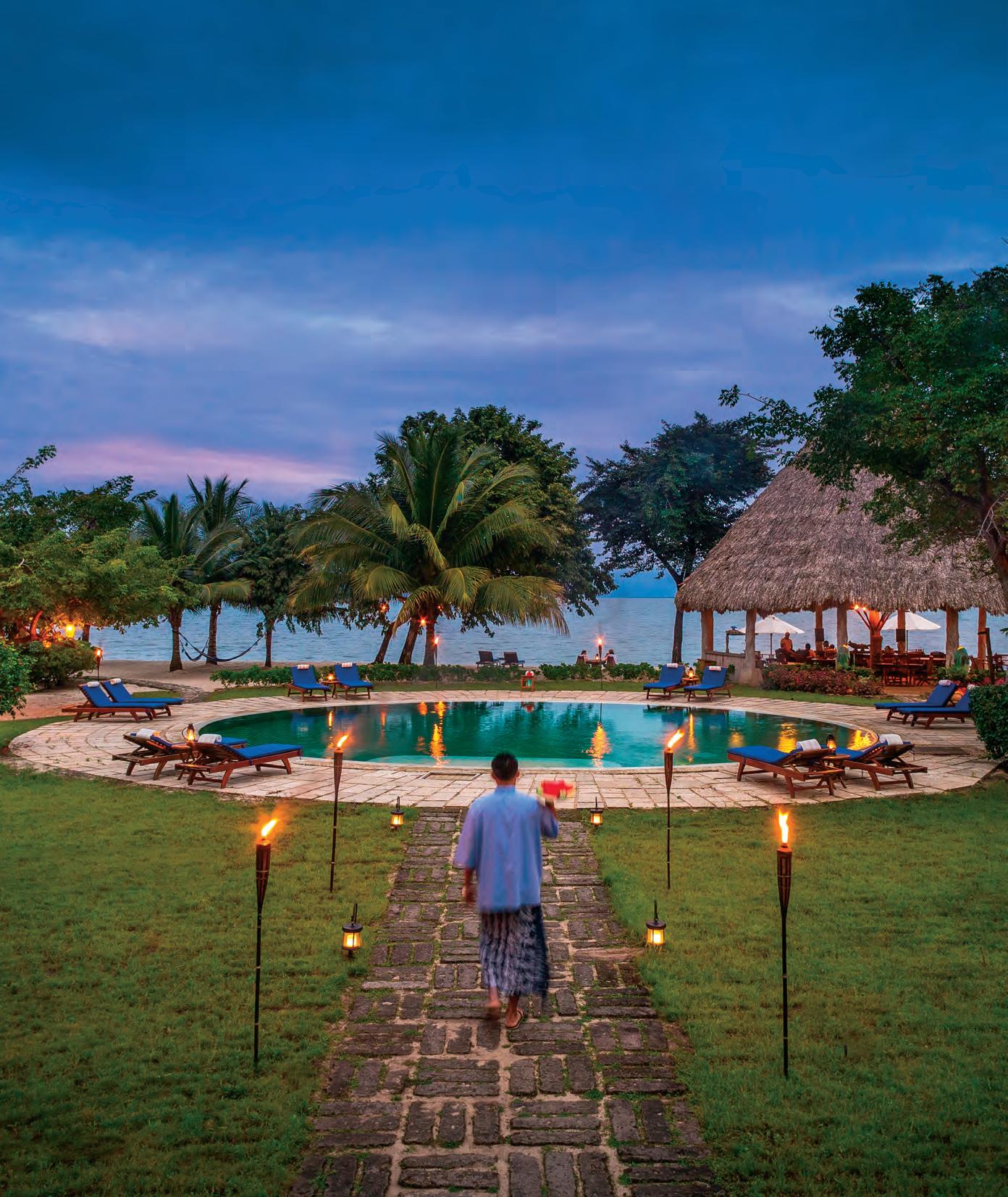
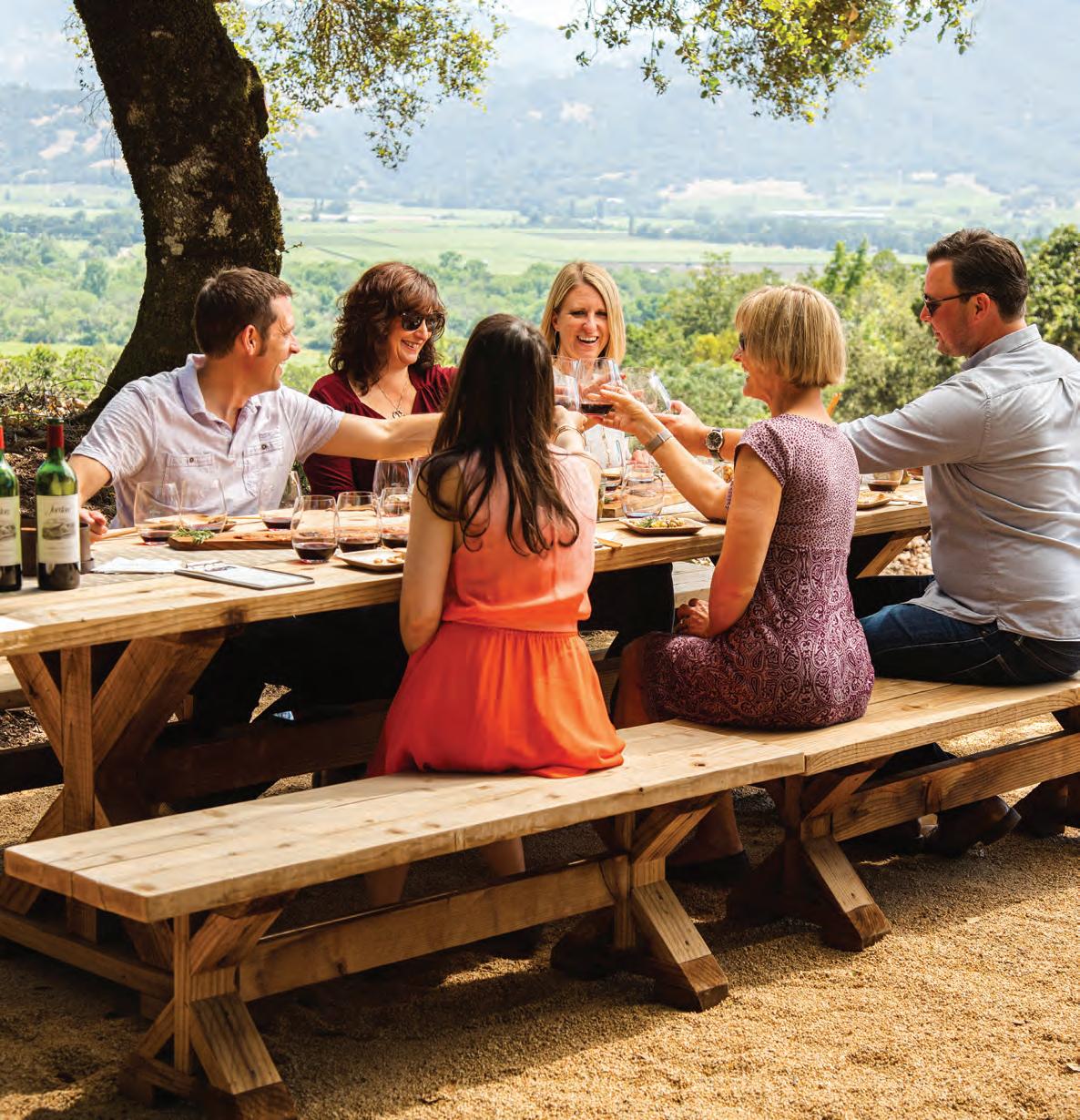
It’s harvest in the wine country, and what better way to sample the bounty of the land than going to an official winery tasting? Here are four to wet your whistle.
 JEANNE COOPER
JEANNE COOPER
Wine tasters can sip the past in view of the future as part of a new seasonal program at Jordan Vineyard & Winery in Healdsburg (above). Through this month, Jordan is hosting guided tastings ($75) of three vintages of cabernet sauvignon and one chardonnay in its recently planted six-acre cabernet sauvignon vineyard, all paired with charcuterie from local Journeyman Meat Co. The Chateau Block Cabernet Sauvignon Vineyard Tasting takes place at 10:30 a.m. Friday through Sunday through October. jordanwinery.com
Sixth-generation winemakers in the business for 160 years, the Bundschus share their Sonoma property and wines with visitors through the estate’s Heritage Reserve Experience. This private food and wine pairing features Gundlach Bundschu’s small-production, limited-release heritage and reserve wines that you can’t taste anywhere else. The two-hour experience is offered daily from 11 a.m. to 2 p.m. by appointment, with five-day advance notice. $85 per person. gunbun.com
For the first time in 27 years, the team at Amici Cellars is opening its library for an opportunity to enjoy a retrospective tasting of its single-vineyard cabernet sauvignon from Spring Mountain, Morisoli and Beckstoffer Vineyards’ Missouri Hopper Vineyard. The experience takes place in a private tasting room, giving bird’s-eye views of the winery’s crush pad and cellar with all the action of the 2019 harvest underway. The 90-minute tasting is offered midweek by appointment only for groups of four to eight. Reservations are required and the price is $90 per person. amicicellars.com
Check out the new home for Flowers Vineyards and Winery just minutes from downtown Healdsburg. A verdant outdoor garden sets the stage for the new tasting program called House of Flowers that showcases the property’s acclaimed pinot noir and chardonnay. flowerswinery.com
REBUILD IT Out of the ashes of the devastating 2017 Wine Country fires, Rebuild NorthBay created a foundation called RiseUp Community Impact Grants that will give up to $400,000 to groups focused on rebuilding, preparedness and wildfire prevention. To date, the foundation has granted $62,500 to the following organizations, recognized for their work and the positive impact they make in their communities. MIMI TOWLE
• Glen Ellen Forum
• Wolf Creek Firewise Community
• The LIME Foundation
• The Of fice of Resiliency and Recovery, Sonoma County
• University of California Cooperative Extension, Sonoma County
• News of the North Bay
• Lake County Community Risk Reduction Authority
• Mendocino County Fire Safe Council
• North Bay Construction Corps
The place for wild family fun this fall.
On the night of October 8, 2017, starting with garden hoses and then multiple pieces of equipment nearby, 76-year-old Peter Lang single-handedly fought back the flames of the Tubbs Fire for 10 hours, saving Safar i West and its animals as his own home burned to the ground. Since those dramatic days t wo years ago, Safari West and its dedicated staff ave seen the birth of 145 mammals and 285 hatchings. The land is bursting with new growth and life. Like so many, Peter and his wife, Nancy, are rebuilding their own home. In recognition of his fight to save nearly 1,000 animals, including gira ffes, rhinoceroses, Cape buffalo, antelope, cheetahs, zebras, hyenas and hundreds of birds, the American Red Cross honored Peter Lang with its 2018 Animal Rescue Hero award. Safari West visitors today can sign up for a Day Tripper property tour in an open jeep, dine at the on-site restaurant and stroll the grounds; the really adventurous can even spend the night in a heated tent cabin. safariwest.com PAIGE PETERSON

While Marin has Heath Ceramics, whose creations can be found in many fine dining establishments and homes, Napa has NBC Pottery, located in the mountain town of Angwin, just above St. Helena. Husband-and-wife team Will and Nikki Callnan have their pieces at places like The Restaurant at Meadowood and French Laundry. Be sure to check out the studio sale December 8 and 9. nbcpottery.com M.T.

This month
WineCountry Media, home of NapaValley.com, WineCountry. com, Sonoma.com and Shop. WineCountry.com, are introducing an expanded wine-tasting ticket called Covet Pass. Besides complimentary tastings at over 40 premium Napa Valley and Sonoma Country wineries, Covet Pass provides access to other perks. After five years of working in the wine country, Mill Valley resident and WineCountry Media principal Cann wanted to give consumers a new way to discover premium wineries at a good value. He put his team to work creating a program for visitors and residents in neighboring regions like Marin. The $150 pass entitles you to visit as many winery partners as you want within a year — which at, say, about $30 a tasting, pays for itself after a few uses — and offers discounts on lodging, shopping, activities and transportation, plus online tools for researching and planning visits. The pass will roll out first in Napa Valley and Sonoma County, but there are plans to rapidly extend it to Central and Southern California, Oregon, Washington, New Zealand, Australia, France, Italy, South Africa and other wine-producing areas near and far. covetpass.com M.T.

A town built by inspired craftspeople and visionaries. The perfect blend of agricultural heritage and trendsetting experiences. Join us in Healdsburg and dig into our roots, enjoy the fruits of our labor, and discover why we’re the tastemaker of Sonoma wine country.

Plan your stay at stayhealdsburg.com
 Sandy Erickson and Danielle Elins Owners/Erickson Fine Art Gallery, Inc. Erickson Fine Art Gallery sculpture by Jeffrey Van Dyke
Sandy Erickson and Danielle Elins Owners/Erickson Fine Art Gallery, Inc. Erickson Fine Art Gallery sculpture by Jeffrey Van Dyke
Three destinations where you can see fall leaves at their brilliant best.
BY BEKAH WRIGHT ILLUSTRATIONS BY ERIC HANSONWe love to stroll through Manhattan’s Central Park this time of year when it has undergone a romantic transformation courtesy of Mother Nature: a bright-hued palette of leaves on the trees, a snap of cold in the air. Fall defi nitely brings a distinctive beauty, and an East Coast road trip reveals even more of autumn’s glory. The region is bursting with color waiting to dazzle. Chart a course to see foliage in three varied landscapes, each guaranteed to take one’s breath away:
1 Harvest season in New England
2 Autumn in the Adirondacks
3 Coastal bliss in Rhode Island
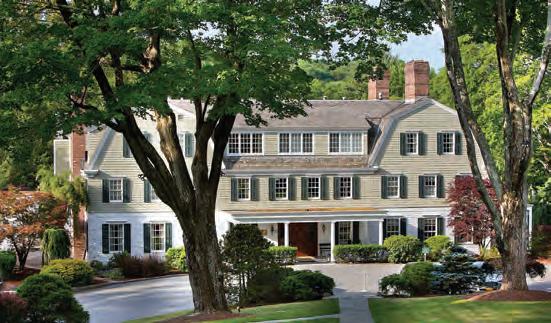

Joy comes alive as you head onto New York State’s tree-lined Taconic State Parkway. Here the different trees change color in their own unique ways. Nature’s drawn-out show isn’t a speedy one; instead, leaves transition over several weeks, with golds arriving first, then reds, then hues of orange.
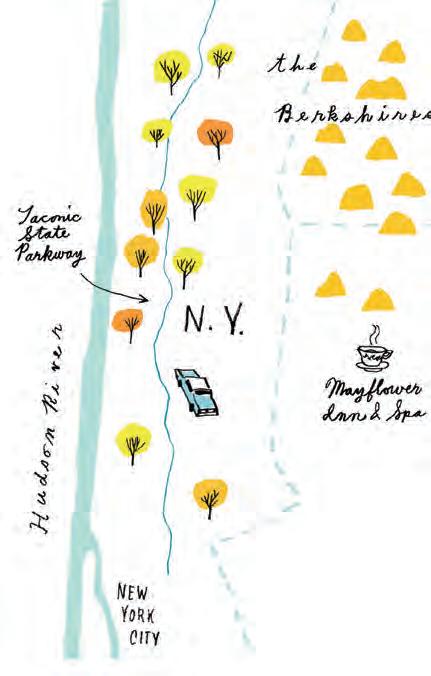
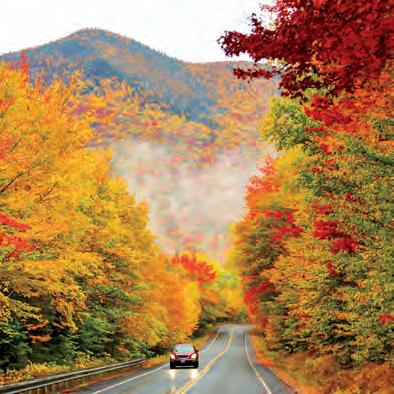
Cut east toward Connecticut and the terrain edges the Berkshires, changing to undulating hills and farmland. Drive through the idyllic Washington, Connecticut, countryside and you’re in yet another New England fall tableau, with crisp breezes and trees bursting with orange, sienna and ocher tones. Eyeing the signs for yoga classes in Waldingfield Farm Barn and readings at the Hickory Stick Bookshop, you can almost hear the Gilmore Girls theme song — yes, this area inspired the setting of the television show.
Rolling up to the Mayflower Inn & Spa, part of the Auberge Collection, feels like coming home to an English country house. Steaming apple cider in hand, you face your biggest decision — will it be the library’s fireplace for an afternoon of reading, or the parlor for board games? Then there are those tantalizing fall colors, beckoning from outdoors.
It’s little wonder hiking is a favorite pursuit on the Mayflower’s 58-acre property, where discoveries include the well-groomed Shakespeare garden, poet’s garden, chef’s garden and labyrinth. Along leaf-strewn paths are three historic guest cottages and Spa House, all designed to make the most of the woodsy panoramas. One leaving an indelible mark on memories: a cathedral of trees shading Blue Heron Pond.
Guests can get a taste of the region with libations at the on-property Tap Room, followed by a multicourse refined meal in the Mayflower Dining Room, where the Berkshire heritage pork chop with lollipop kale reflects the season.
Post-dinner, creature comforts await in the sleeping quarters upstairs, all accessed by real keys. The Grace Suites have their own dining room, living room with fireplace (of course) and bedroom with king-size four-poster bed. An in-room pastime not to miss: peering at the harvest moon from a private window seat before bed.
The Adirondacks’ northern location makes for an early, and long, leaf season, with an abundance of diverse color (caused by elevation variations). Getting there involves traversing sleepy back roads canopied by tree boughs ablaze in oranges, yellows, reds and browns.
Depart Manhattan crossing the George Washington Bridge to Palisades Interstate Parkway, with cliff-top views over the Hudson giving teasing glimpses of what’s ahead: foliage just turning gold. No need to drive fast, especially with picturesque Bear Mountain State Park, the Hudson Valley and the Catskills (home to the legend of Rip Van Winkle) offering their fall-color kaleidoscopes.
Still to come: the award-winning Adirondack Northway, where the steel arches of the Kosciuszko Bridge mark the crossing over the Mohawk River into Saratoga County. The landscape evokes the settings in James Fenimore Cooper’s Last of the Mohicans
Within an hour, the Lake George Region appears on the edge of the Adirondack Park, an area designated “forever wild” by the New York State Constitution. As if building to a crescendo, the colors gradually intensify.
The North Fork of the Boquet River and later the Ausable River suggest a sojourn for hiking or trout fishing. As you get closer to the Adirondack High Peaks Region, the state’s tallest mountain, 5,344-foot Mount Marcy, awash in autumn color, comes into view.
Round a curve on Route 73 and a surprise appears — the 70- and 90-meter Olympic ski jumps at Mount Van Hoevenberg, reminders of two Winter Olympics held at Lake Placid. From here you pass storybook ponds, lakes and forests en route to the village of Saranac Lake.
Suddenly, a gate appears in the forest — the property entrance of The Point, the former Adirondack Great Camp of William Avery Rockefeller II (co-founder of Standard Oil). As vivid foliage goes, it doesn’t get much more perfect than The Point: the lake here is the epitome of fall splendor.
The drive ends at a log mansion graced by yellow mums and cheery orange pumpkins. Despite its vast 75 acres, small and intimate best
describes the Relais & Châteaux property’s 11 accommodations spread among four log “cabins” with dreamy lake views.
Stretching one’s legs along the property’s hiking trails is a must. Then again, Saranac Lake itself cries out for canoeing or, better yet, taking a classic 33-foot mahogany Hacker-Craft speedboat out for a spin amid watery reflections of miles of trees.
Later, a walk along a flagstone path to a Saranac Lake lookout is a must. A lean-to with cushions and blankets offers respite from the elements. Leaves drift hypnotically from trees as if subliminally suggesting a nap, and don’t be


surprised to see snowflakes join the gentle descent.
At twilight, cocktail hour gets underway at The Point’s main lodge. Around the fireplace, guests in black tie break the ice by recounting the details of their day. Soon it’s time to gather around the dining room table, an experience that feels like traveling back to a time when conversation was an art and friendships were forged over an elegant meal.
Before long, the siren song of sleep lures guests to the lumberjack elegance of their rooms, perhaps for a nightcap in front of a crackling wood fire. The amber whiskey hints at hues to be encountered on drives ahead.
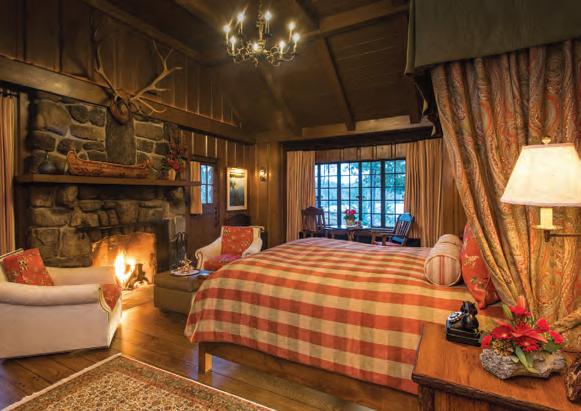

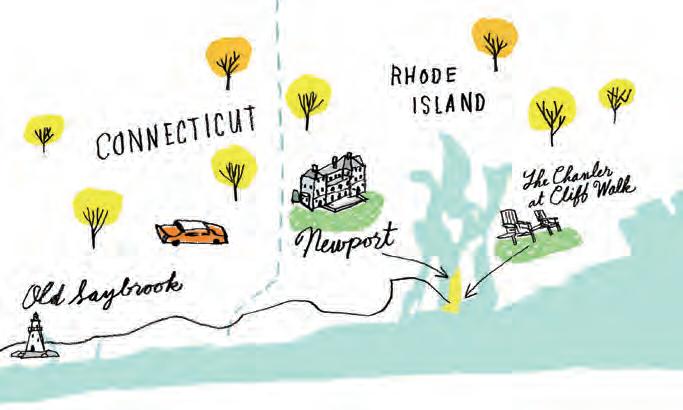
Head down State Route 9 and the drive becomes a coastal one, passing Connecticut’s Middletown and Old Saybrook. Salt-tinged air comingles with forest aromas throughout the densely wooded Connecticut River Valley. More leaf-peeping lies ahead on Interstate 95, across Narragansett Bay and over the Verrazano and Claiborne Pell bridges, before you arrive at the fall foliage mecca of Newport. Yes, making Rhode Island the final road-trip destination is perfect timing — with the region’s temperate climate, leaves change later in the season.
Seaside Newport is known for its dramatic coast, opulent “summer cottages” aka mansions, and walnut, ash and Japanese cherry trees dotting the landscape in shades of yellow, orange and red. Trekking Cliff Walk, a 3.5-mile National Recreation Trail, is an excellent way to take in this grandeur. Unsurpassed views of Newport’s architecture, shoreline and colorful fall flora abound.
Along the way is one of the aforementioned “cottages”: The Chanler at Cliff Walk. Situated atop a rocky precipice, the 1873 French Victorian–style mansion is nestled on five wellmanicured acres overlooking Easton’s Bay. The sophisticated living room evokes the Gilded Age with its refined artwork and grand staircase. As for the Chanler’s accommodations, each has its own theme reflecting different periods of history, from English Tudor to Greek Revival to French Provincial.
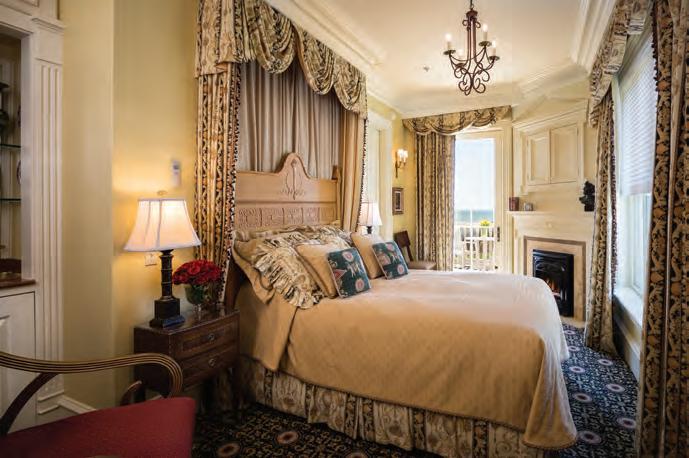
Sitting around a firepit on the lawn and watching sailboats navigate the tides is a worthy way to spend time. Exploring the area, though, is a must. Poke around The Chanler’s grounds to be rewarded by the discovery of a hidden garden hugged by autumn-colored trees. Continue into quaint downtown Newport, where cobblestone streets are lined with boutiques, galleries and specialty shops. A lazy walk back to The Chanler finds leaves dancing across sidewalks, a chill in the air and smoke curling from chimneys.
More hues await at Cara, the Chanler’s fine dining restaurant. Here, floor-to-ceiling windows showcase fall colors bestowed by the setting sun. As items from Executive Chef Matt Voskuil’s six-course menu begin arriving, it’s necessary to raise a glass both to the chef and to the beauty of the season.
A long-term supporter of the arts, the Marin Community Foundation is proud to host an ongoing series of art exhibitions at its offices in Novato. Come visit Monday-Friday between 9am-5pm.
You might be surprised at what you find.
 © Angelique Benicio, Lollygagging, 2014
© Angelique Benicio, Lollygagging, 2014

to restore her nation’s jurisdiction and encounters the ghosts of her grandfathers and echoes of the Trail of Tears. Marin Theatre Company (Mill Valley). 415.388.5200, marintheatre.org

THRU OCT 13
THRU OCT 13 Hot Mikado
THRU OCT 13 Top Girls
Mousetrap
The mistress of mystery, Agatha Christie, traps a group of strangers in a remote mansion in a snowstorm. Murders ensue and the guests are not who they appear to be. Ross Valley Players (Ross). 415.456.9555, rossvalleyplayers.com
The Gilbert and Sullivan operetta gets a jazzy interpretation when the town of Titipu is turned upside down with the arrival of trumpeter Nanki-Poo in search of his lost love, Yum Yum. Gateway Theatre (SF). 415.255.8207, 2ndstreetmoon.org
A dinner party larded with powerful women, both mythical and real, is the setup for this modern classic that dissects feminism and the cost of progress in Margaret Thatcher’s Britain. Geary Theater (SF). 415.749.2228, act-sf.org
THRU OCT 20 Dionysus Was Such a Nice Man
This play by Kate Tarker is a comic and pungent take on the story of Oedipus from the perspective of the family of shepherds who raised him. Joe Goode Annex (SF). foolsfury.org
THRU OCT 20 Sovereignty A young Cherokee lawyer fights
OCT 11–12 The Simon & Garfunkel Story This concert-style show chronicles the duo’s beginnings as Tom & Jerry in the 1960s and culminates with their Concert in the Park reunion in 1981. Golden Gate Theatre 888.746.1799, shnsf.com
OCT 26 Harry Potter and the Cursed Child The exclusive West Coast premiere of the eighth story in the Harry Potter series. Curran Theater (SF) harrypotter onstage.com
THRU OCT 6 Dance Series I Smuin Ballet kicks off he new season with three works, including a cowboybooted dance to the music of Johnny Cash, a piece set to the score of Or ff ’s Carmina Burana, and Take Five, a riff n the Dave Brubeck jazz standard. Cowell Theater (SF). 415.912.1899, smuinballet.org
THRU OCT 20 Free for All A whimsical take on Strindberg’s Miss Julie, this production pits have-nots against haves atop Nob Hill in San Francisco. Cutting Ball Theater (SF). 415.525.1205, cuttingball.com
OCT 1–6 Alonzo King, Charles Lloyd, Jason Moran, Jim Campbell Jazz luminaries Charles

As Beach Blanket Babylon comes to a close, the Pineapple Princess takes a bow.
Beach Blanket Babylon, the campy, over-the-top roast of pop culture and politicians, ends its 45-year run at North Beach’s Club Fugazi on New Year’s Eve. We chatted with one of its stars who first took the Beach stage as the Pineapple Princess in 2004. beachblanketbabylon.com
BY CHRISTINA MUELLERYou’ve been performing with Beach for 15 years. Any guess on the number of performances? Are you asking an actor to do math? It got tricky keeping count a couple years back, when I transferred to understudy, but more than 4,000.
Which characters do you get to play as an understudy? I cover three girls: Snow White, the Pineapple Princess and the Banana Girl. I can cover anyone from Kim Kardashian to Melania Trump to Hillary Clinton.
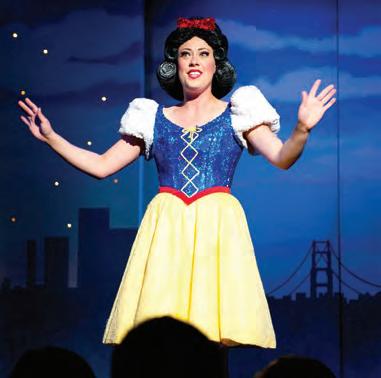
Do you live in Marin? Yes, in Novato. I love living in Marin.
Did you ever get to wear the famous skyline hat that is worn to close the show? I did! During the Christmas season, we bring in a Christmas tree hat for Miss San Francisco and Snow gets to wear the skyline hat, so I’ve actually worn it a lot.
New Year’s Eve includes two curtain calls for you and the cast. Anything special planned for the show that night? I’ve heard rumors we are doing more Steve Silver–themed numbers (the show's creator). We will celebrate Beach Blanket as a whole.
What are your plans for New Year’s Day 2020? Relax? I’m departing for Hawaii on January 7.
415.864.3330, sfopera.com
OCT 15 A Night with Janis Joplin A musical journey that celebrates the rock ’n’ roll singer and her many in fluences. Luther Burbank Center for the Arts (Santa Rosa). 707.546.3600, luther burbankcenter.org
OCT 16, 18–19 Mill Valley Philharmonic
The new season thrums with the program’s Epic Romance theme, including Pelléas et Mélisande from Gabriel Fauré, Jan Sibelius’s Symphony No. 1 in E minor, and Beethoven’s Romance No. 1 and No. 2. mill valleyphilharmonic.org
OCT 17 Kris Allen It’s been 10 years since his American Idol win and the platinum-selling singer/songwriter reappears for this rare solo acoustic performance. HopMonk Tavern (Novato). 415.892.6200, hopmonk.com
OCT 19 Sing the Beatles Admit it: you’ve always wanted to belt out your favorite songs from the mop-topped wonder boys of Britain with a captive audience. Bring the family and sing along with live accompaniment by the Quarry Persons. Kanbar Center (San Rafael). 415.444.8000, marinjcc.org
OCT 20 Russian Chamber Orchestra
For this performance, the group that features Russian composers looks west for works by Mozart, Haydn and Dvorak. 415.664.1760, russianchamber orch.org
OCT 21 Lang Lang
The renowned pianist returns to play Beethoven’s Piano Concerto No. 2 in B-flat major, Opus 19, with Ion Marin conducting. 415.864.6000, sfsymphony.org
OCT 26 Opulent Marin Symphony launches its new Masterworks season with Camille Saint-Saëns’ Opulent Organ Symphony. Marin Veterans’ Auditorium (San Rafael). 415.473.6800, marincenter.org
OCT 27 Jason Mraz
The two-time Grammy Award winner known for his positive message and soulful folk-pop sound pairs up with his longtime collaborators, Los Angeles–based quartet Raining Jane. Luther Burbank Center for the Arts (Santa Rosa). 707.546.3600, lutherburbank center.org
MARIN
Bay Area Discovery Museum The interactive, STEM-focused, indoor-outdoor space encourages tots, toddlers and older children to play, learn and engage their senses and explore their world (Sausalito). 415.339.3900, bayareadiscovery museum.org
Bolinas Museum
Twenty-fie years of collaboration between aerial dancer Joanna Haigood and rigging designer Wayne Campbell are celebrated with video, artistic props and theater ephemera, September 21–November 17 (Bolinas). 415.868.0330, bolinasmuseum.org
Marin Museum of Contemporary Art 50 Faces Contemporary mosaic artwork from the Scuola Mosaicisti del Friuli in Italy allows young artists to redefine the age-old tradition of mosaic art with innovative methods and materials, through November 10 (Novato). 415.506.0137, marinmoca.org
The Museum of the American Indian Thousands of Native American regional and cultural items are displayed, with a focus on Marin and Sonoma (Novato). 415.897.4064, marinindian.com
The Space Station Museum
This storefront museum houses one of the largest private collections of U.S., Russian and Soviet space artifacts, including full-size replicas of a lunar module and lunar rover (Novato). 415.524.3940, thespacestationca.org
BAY AREA
Asian Art Museum Noguchi and Hasegawa in Postwar Japan Together, the duo sought to understand the fragmented postwar world and the potential of art in reassembling it. These 80 works express their ongoing dialogue. Through December 8 (SF). 415.581.3711, asianart.org
The San Quentin Project: Nigel Poor and the Men of San Quentin State Prison A collection of visual documents and archival photographs created by a volunteer professor for the Prison University Project in
collaboration with incarcerated men, through November 17 (Berkeley). 510.642.0808, bampfa.or
California Academy of Sciences Passport to the Universe This new movie gives viewers an astronaut’s-eye view of our little corner of space, including new visualizations of the Orion Nebula derived from the Hubble Space Telescope (SF). 415.379.8000, calacademy.org
Charles M. Schulz Museum Peanuts Goes to Camp Relive summer adventures along with the gang, including the joys of sleeping in a tent, through November 18 (Santa Rosa). 707.579.4452, schulz museum.org
Contemporary Jewish Museum Daria Martin: Tonight the World Computer gaming technology and film are th tools used to explore the dreams and memories of the artist’s paternal grandfather, who, along with her family, fled th imminent Nazi occupation of the former Czechoslovakia when she was 16, through February 19, 2020 (SF). 415.655.7800, thecjm.org
de Young Soul of a Nation: Art in the Age of Black Power 1963–1983 Organized by London’s Tate Modern, this exhibit looks at issues of race and identity, November 9, 2019–March 15, 2020 (SF). 415.750.3600, deyoung.famsf.org
di Rosa Building a Different Model Works of 40 artists present images of transformation and repair through social, physical and ceremony, through December 29 (Napa). 707.226.5991, dirosaart.org
Exploratorium This public learning laboratory offers inquir-based experiences and a chance to explore the world through science, art and human experience (SF). 415.397.5673, exploratorium.edu
Legion of Honor James Tissot: Fashion & Faith Co-organized with Musée d’Orsay, Paris, this exhibition reexamines the artist’s paintings and cloisonné enamels to reveal a complex commentary on 19thcentury society, October 12, 2019–February 9, 2020 (SF). 415.750.3600, legionofhono.famsf.org
Museum of the African Diaspora The Sacred Star of Isis The photography by Adama Delphine Fawundu explores the tension
between her family’s traditional Mende beliefs (Sierra Leone) and Westernized values, through November 15 (SF). 415.358.7200, moadsf.org
Museum of Craft and Design Dead Nuts: A Search for the Ultimate Machined Object What started as a question on an online forum — What is the ultimate machine object/mechanism?

— evolved into a crowdsourced list of favorites that inspire these makers, through December 1 (SF). 415.773.0303, sfmcd.org
SFMOMA Far Out: Suits, Habs and Labs for Outer Space This exhibit examines how both applied and theoretical design can advance new models for life beyond
Earth, with real and conceptual ideas for spacesuits, habitats and laboratories and a selection of films and visua art, through January 20, 2020 (SF). 415.357.4000, sfmoma.org
Sonoma Valley Museum of Art Bingo: The Life and Art of Bernice Bing
The San Francisco native reclaims the style of abstract expressionism and redefines its tie to non-Western philosophies. September 21–January 5, 2020 (Sonoma). 707.939.7862, svma.org
The Walt Disney Family Museum Mickey Mouse: From Walt to the World Celebrate Disney’s most beloved and recognizable character, through January 6, 2020 (SF).
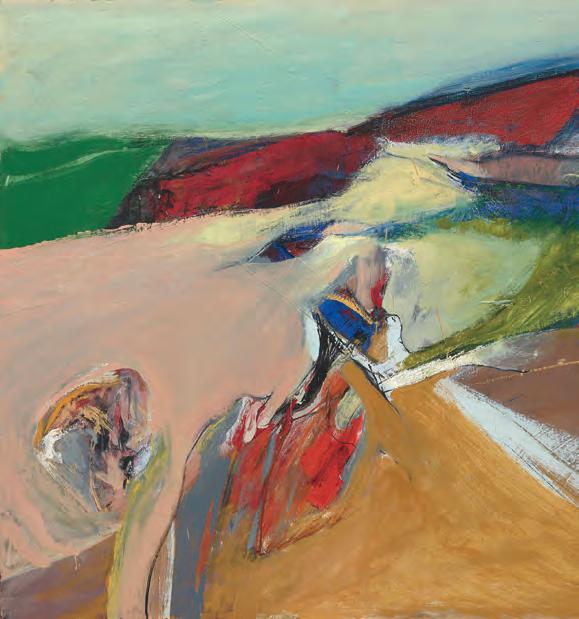
415.345.6800, waltdisney.org
Yerba Buena Center for the Arts Leading-edge contemporary art and cultural programs that support societal movement are the emphasis of this cultural institution (SF). 415.978.2787, ybca.org
OCT 1 Candace Bushnell
The author of the novel Sex and the City addresses the question: Is there still sex in the city? Taube Family Auditorium (SF). commonwealthclub.org
OCT 2 Tiffany Shlain
The founder of the Webby Awards and Let It Ripple Film Studio appears in the place she calls home to discuss her book 24/6: The Power of Unplugging One Day a Week Outdoor Art Club (Mill Valley). common wealthclub.org
OCT 3 Debbie Harry
The frontwoman for
Blondie sits down with band co-founder Chris Stein and director Rob Roth to share stories from her memoir Face It. JCCSF (SF). 415.292.1233, jccsf.org
OCT 3–6 San Francisco Fall Show The leading international art, antiques and design fair on the West Coast and a major fundraiser for Enterprise for Youth features an opening night gala, lectures and book signings. 415.989.9019, sffallshow.org
OCT 3–23 Mill Valley Film Festival With a mix of world and independent cinema, this star-studded event also showcases more than 40 works by loca l fi lmmakers. Various Marin locations. mv ff.com
OCT 5 Angels by the Bay Sen. Mike McGuire is master of ceremonies for Independent Living’s 40th anniversary. A gourmet dinner with an oyster and seafood bar, tequila tasting and dancing at
the after-dinner cigar and cognac lounge are on tap. Meadow Club (Fairfax). marincil.org
OCT 5 Bonsoir Monaco
The Ross Valley Women’s League presents on evening of glamour and giving benefiting Adopt A Family of Marin. Peacock Gap Club House (San Rafael). rvwl.org
OCT 5 Soiree at the Museum With live music, a light show, an auction, and viewing of the exhibit Bingo: The Life and Art of Bernice Bing, the Sonoma Museum honors building community through art. Sonoma Valley Museum of Art (Sonoma). 707.939.7862, svma.org
OCT 6–14 Fleet Week
From an Honor Our Fallen concert and Parade of Ships to a high school band challenge and ship tours, this week of celebrating America’s sea services culminates with the famous Blue Angels
air shows above San Francisco and over the Bay. Marina Green and other locales (SF). fletweeksf.org
OCT 7 Marin History Museum Annual Benefit Amid neon signs and retro decor, wine and dine with car a ficionados and others in support of preserving local history. Checkers (San Rafael). 415.382.1182, marinhistory.org
OCT 10–NOV 3
Pumpkin Nights Go on a quest through a series of enchanted Pumpkin Lands and rediscover your Halloween spirit in a tunnel replete with 600 handcarved jacko’-lanterns. Sonoma County Fairgrounds (Sonoma). pumpkin nights.com
OCT 10–NOV 10
Terror Vault Elements of theater, mazes and special effects imaginatively evoke the darker untold stories of the San Francisco Mint. Featuring the debut of Apocalypse,
a zombie-fi lled escape room experience, and The Gold Bar cocktail lounge. The Mint (San Francisco). intothedarksf.com
OCT 12 Up Top: Blue Angels Viewing Party
Enjoy the swooping and diving of the famed flying troupe from a great vantage point, complete with a Blue Angels virtual reality experience, live music, bites and libations. The Commonwealth Club (SF). 415.597.6705, commonwealthclub.org
OCT 14 Neil deGrasse
Tyson The host of National Geographic’s StarTalk, best-selling author and director of New York’s Hayden Planetarium sits down for a conversation on science, exploration and the world as we know it. Davies Symphony Hall (SF). 888.746.1799, shnsf.com
OCT 15 Pool Toss An evening of entertainment, libations and local luminaries back-fl ipping into the pool will raise money for a safe drop-in space for kids living in the Tenderloin. Phoenix Hotel (SF). 415.358.3957, tndc.org
OCT 15–NOV 20 Día de los Muertos With more than 60 works by artists including Isidoro Angeles, Daniel Camacho and Sandy Coronado, this exhibit pays tribute to life and death and celebrates the essence of transformation through art. Marin Civic Center Bartolini Gallery (San Rafael). 415.473.6014, marincenter.org
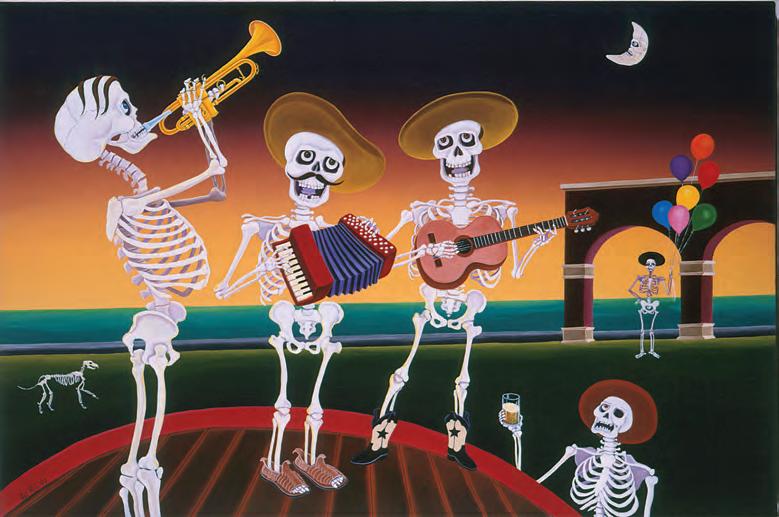
OCT 16 High Moderated by NPR’s Michael Krasny, this community
event with David and Nic Sheff, authors of the book High: Everything You Want to Know About Drugs, Alcohol, and Addiction, digs in on how to deal with the stresses and pressures on youth. Dominican University (San Rafael). bookpassage.com
OCT 17–20 Alexander Valley Film Festival The fi lm series expands to include local and independent fi lmmakers, with a bit of Hollywood fl air. Raven Film Center (Healdsburg). 707.893.7150, av fi lmsociety.org.
OCT 18 Deepak Chopra
The global force in the field of human empowerment and author of Metahuman: Unleashing Your Infinite Potential engages in conversation about how to become a metahuman. Marines Memorial Theater (SF). 415.597.6705, common wealthclub.org
OCT 18–20
Musica Marin Blending chamber music and food, the festivities include performances by world-renowned violinist Joshua Bell, baritone Marco Vassalli and the Marin Symphony Youth Orchestra. St. Stephen’s Church (Belvedere) 415.335.2348, festival musicamarin.org
OCT 19 Fall Harvest
Join the team at Slide Ranch to experience the festivities that honor the season. Learn to make cheese or spin wool, go on a pollinator tour or native plant hike, or simply relax and enjoy the live music and good eats. Slide Ranch (Muir Beach). 415.381.6155, slideranch.org
OCT 19–20 Goblin Jamboree This annual fundraiser is designed to make the spooky stuff f the season interactive and fun for Halloween enthusiasts of all ages. Search for buried treasure, design your very own treasure chest, or take part in the slime banquet. Bay Area Discovery Museum (Sausalito). 415.339.3900, bayareadiscovery museum.org
OCT 19–20 Marin County Triathalon Swim, bike and run to raise money for kids’ swimming lessons at the YMCA. marin triathlon.com


OCT 21 Liz Phair The indie rock star sits down with Tabitha Soren to discuss intimate junctures of her life and her forthcoming memoir. Sydney Goldstein Theater (SF). 415.392.4400, cityarts.net
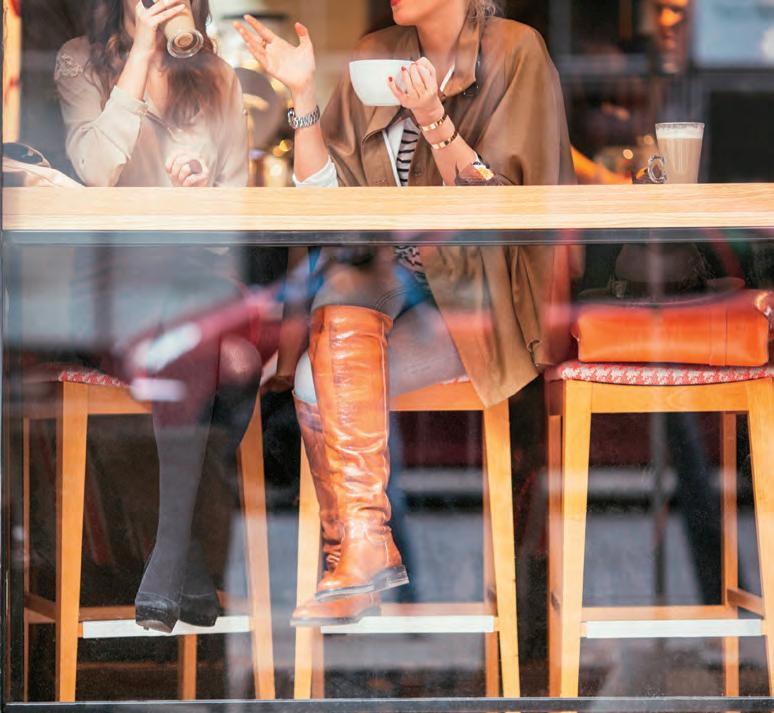
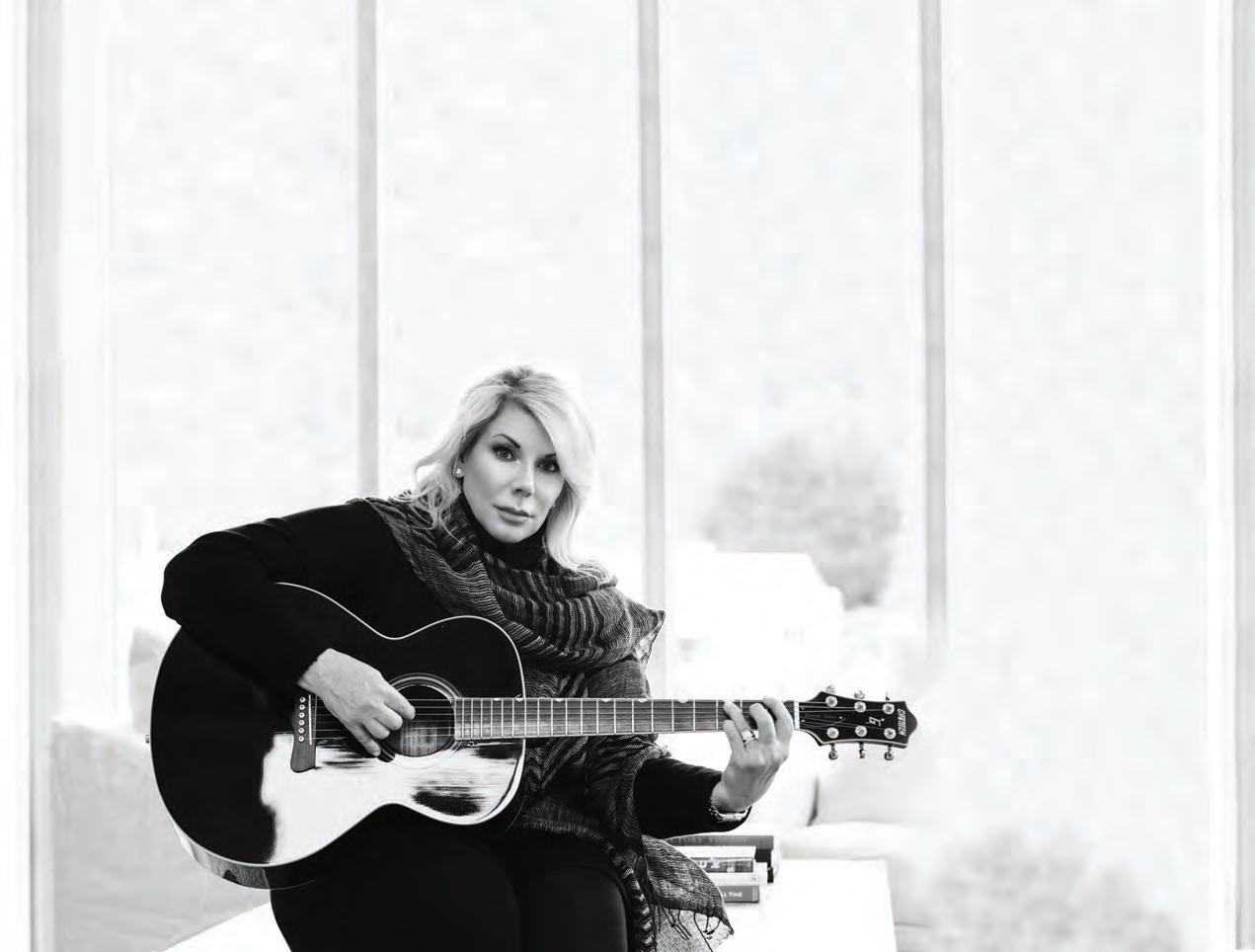
OCT 25 Governor Jerry Brown The Browns of California author Miriam Pawel chats with the former governor about California’s impact on American history as seen through the lens of his family’s dynasty. Sydney Goldstein Theater (SF). 415.392.4400, cityarts.net
OCT 26 Paddle Party Paddle the two-mile course, then don your Octoberfest/Halloween out fit for a lunch and costume contest to benefit the Leukemia & Lymphoma Society. 101 Surf Sports (San Rafael). 415.524.8492, 101surfsports.com
Memorial Theater (San Rafael). marincenter.org
OCT 12, 16 Turandot
The new season of New York’s Metropolitan Opera kicks off ith Puccini’s fi nal masterpiece in live, high-def simulcast. Lark Theater (Larkspur). 415.924.5111, larktheater.net
OCT 30 Get Out


The horror fl ick from Jordan Peele is accompanied by a live performance of the fi lm’s vocalists, the DC6 Singers. 415.864.6000, sfsymphony.org
OCT 31 Dr. Jekyll and Mr. Hyde Live organ performed by Dorothy Papadakos further animates the silent 1920 fi lm starring John Barrymore. Grace Cathedral (SF). 866.920.5299, sfjazz.org
It is often called the most important meal of the day and there are plenty of restaurants on Novato’s Grant Avenue that serve it, each with a special flair. There’s a bonus, too: every place has ample outdoor seating. BY
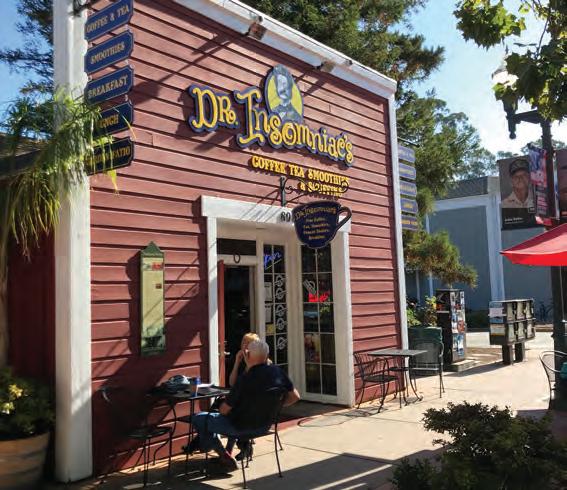
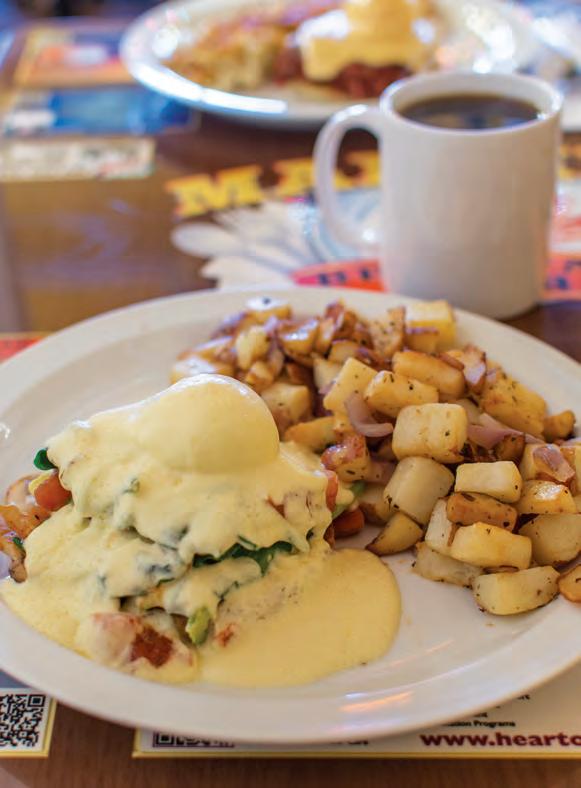 KASIA PAWLOWSKA
KASIA PAWLOWSKA
Marvin’s Breakfast Club
Novelty signs on the walls, baskets of candy on the wraparound counter, a bustling crowd: it’s a lively scene at Marvin’s. A cult classic for about half a century, the restaurant is currently owned by Chuck and Nichole Drefs, whom you can find pictured in the menu as characters from Conan the Barbarian 415.892.4482
Grazie More than merely a breakfast spot, Grazie is open for business all day, every day, for every meal. “Even on all the holidays,” owner Abe Hamami says. There’s also a weekend brunch menu that changes about once a month. For wine lovers, choices include DeLoach, Trek and other local labels. grazie-restaurant.com
Bacon This spot, opened four years ago by owner Tien Lam, lives up to its name and then some. You’ll find bacon throughout the menu in Benedicts and frittatas, on salads and burgers and so on. Be sure to check out the special Honey Bee Bacon: slabs are coated with brown
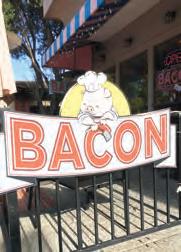
honey-lavender bacon is also in the works, Lam says. Plus, the restaurant serves and sells three types of house-made jams. baconnovato.com
sugar, chile flakes and cayenne plus a little bit of honey added during baking. Fans of “millionaire’s bacon” won’t be disappointed. A new
Dr. Insomniac’s Dr. Insomniac’s has been holding down a lively corner of Grant Avenue since 1993. The expansive menu features everything from breakfast burritos to an assortment of shakes and smoothies and coffee drinks (there’s a house brand of coffee beans) to the famous scruffins. A scone and muffin combo, this treat is baked fresh every day in versions that include blueberry and cream cheese, strawberry and blueberry, blackberry and almonds, chocolate chip and more. drinsomniacs.com
The Italian-inspired pizzeria utilizes Northern California’s bounty of seasonal ingredients and showcases local microbreweries and wine country’s boutique varietals. The menu includes appetizers, salads of organic produce when available, pastas, local free-range poultry and meats, desserts and Neapolitan-style pizzas with house-made mozzarella. Wine half off n Mondays. 1544 Redwood Highway, 415.924.3021, bocapizzeria.com s $$ Í C LD º
California Zinz is an upscale wine bar, retail store and art gallery with a cozy, sophisticated atmosphere, an eclectic array of boutique wines and craft beer, and light appetizers. The quaint neighborhood space also holds events and happy hours. 207 Corte Madera Ave, 415.927.9466, zinzwinebar.com b $$ Í º
TAMAL Mexican The regional cuisine here highlights coastal regions of Oaxaca and the Yucatán Peninsula. Dine inside or on the patio and enjoy craft Mexican cocktails or some of the Bay Area’s best craft beer. 23 Broadway, 415.524.8478, tamalfairfax.com s $$$ LD
From the owners of S.F.’s Big Swingin’ Cycles comes this
rider-friendly stop along Fairfax’s main drag. With a menu designed to power you up, The Lodge features all-American eats like a breakfast burrito stu ffed with eggs, spinach and salsa; share plates like a sausage board served with Lodge tots and slaw; and pour-over coffee and draft beer for riders and hikers alike. 1573 Sir Francis Drake Blvd., Fairfax, 415.991.5625, thelodgefairfax.com b $$ BLD
VILLAGE SAKE
Japanese Lucky for Fairfax, beloved former Sushi Ran chef Scott Whitman has opened an izakaya, a Japanesestyle community pub, on Bolinas Road. In the compact space, you’ll fi nd sushi and skewers, salads and small plates, plus great sake and craft beers. The daily wait list opens online at 5 p.m. 19 Bolinas Road, 415.521.5790, villagesake.com b $$$ Í D
VICTORIA BAKERY & CAFE Italian The famed Italian pastry place now offers elder flower cake, the same kind served at Prince Harry and Meghan Markle’s wedding, as well as savory lunch options like paninis, open-face spinach croissants and quiches. 292 Bon Air Shopping Center, 415.461.3099, victoriabakery marin.com $$ Í BL
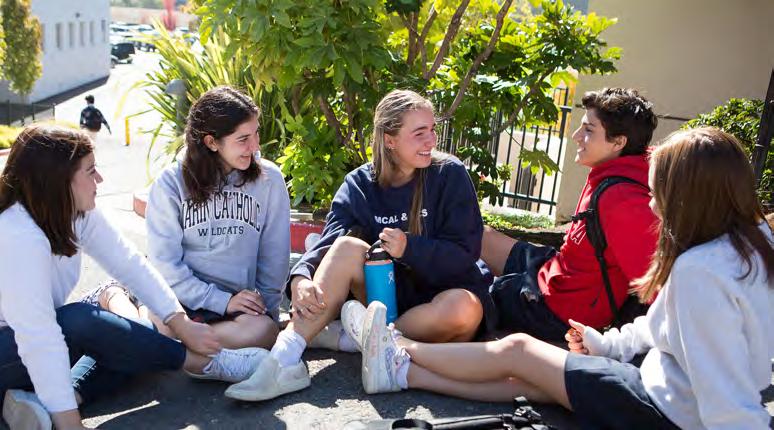
GUESTHOUSE
American Jared Rogers, the former executive chef of Picco
bibbyart.com

December 6 - 8 11-6pm
ICB, 480 Gate 5 Rd. Studio 235, Sausalito
bibby@bibbyart.com (415) 309-4152
has returned with Guesthouse. Rogers is heading up the kitchen in the Kent field eatery, and has partnered with well-known mixologist Dustin Sullivan to open this 110-seat space. Look for menu classics such as mini lobster rolls or kurobuta pork chops with crispy potatoes. 850 College Ave, 415.419.5101, guest housemarin.com s $$$ D
American Tucked away in a setting of intertwining ivy and large open windows, this cafe is the quintessential breakfast nook and is also open for brunch and lunch, including coffee drinks, pastries and much more. Enjoy a casual meal inside or out on the patio. 848 College Ave, 415.459.0291, halfdaycafe.com b $$ S Í BL BR
BACKSTAGE California
Nestled in downtown Larkspur, Backstage is a comfortable, sociable setting for wine tasting and light appetizers. Flights of exclusive picks from small-scale California vineyards bring wine country closer to Marin. Happy hour Tuesday through Friday 4 to 6 p.m. 295 Magnolia Ave, 415.898.6778, back stagewines.com b $$ º
DON ANTONIO Italian Antonio Volpicelli, of Don Antonio in Tiburon, has opened a second location in Larkspur. Choose from standbys like gorgonzola gnocchi, veal parmesan and carbonara and an extensive wine list, all served either inside or out on the spacious patio. 455 Magnolia Ave, 415.924.3332, don antoniomarin.com b $$ Í LD
FARM HOUSE LOCAL
California This downtown Larkspur gem is sure to please with simple, healthy food in a warm, cozy atmosphere, both indoors and on the covered patio. The seasonal menu, inspired by American classics, includes biscuits and gravy; a “BLAT” (with avocado) sandwich; and a daily flu ff y omelet stu ffed with local meats, vegetables and artisanal cheeses. 25 Ward St, 415.891.8577, farmhouselocal.com b $$ S Í BL
This authentically classic brasserie has been serving the Larkspur community for more than two decades. Whether on the patio, at the European-style bar or in the casually elegant main dining room, it’s a fun and French experience. 7 Magnolia Ave, 415.927.3331, leftbank.com s $$$ S Í C LD BR
MARIN BREWING CO.
American Grab a cold beer made on site and pair it wit h fi sh ’n’ chips — in this case fresh cod dipped in Mt. Tam pale ale batter, served with steak fries and homemade tartar sauce — or anything from the all-American menu.

Marin Country Mart, 1809 Larkspur Landing Circle, 415.461.4677, marinbrewing.com b $$ S Í LD º
California The homegrown bakery is known and loved the world over: Pope Francis famously requested Rustic Baker y fl atbread and crostini when he visited the U.S. in 2015. Organic bread, croissants and pastries baked fresh each morning and salads, sandwiches, and soups for lunch make Rustic a local staple. 1139 Magnolia Ave, 415.925.1556; Marin Country Mart, 2017 Larkspur Landing Circle, 415.461.9900,
rusticbakery.com b $$ S Í BLD BR
BUCKEYE
ROADHOUSE American Oysters Bingo, baby back ribs and ChiliLime “Brick” Chicken are a few of the satisfying comfort-food menu items that have made this classic roadhouse a favorite since the ’30s. The warm dark-wood bar with red leather booths is a popular spot for cocktails, conversations or a light meal. 15 Shoreline Highway, 415.331.2600, buck eyeroadhouse.com s $$ C LD BR
American The brainchild of pastry chef Heather Hardcastle, this second location, in the bright and airy renovated Lumber Yard, offers not only gluten-free baked goods but sandwiches, salads and takeout. The fi rst location is in San Anselmo. 129 Miller Ave, 415.384.8244, flourcraftbakery.com b $$ S Í BL
GRAVITY TAVERN
American Updated with ingredients to reflect modern tastes, American classics like grilled chicken Waldorf salad with pickled grapes, lobster roll with toasted challah and veggie slaw, and a land and sea pasta with house made egg pasta, pork belly and crab may have also been familiar fare for passengers of the gravity car for which this saloon was named. 38 Miller Ave, 415.888.2108, gravity tavern.com s $$$ Í LD
PIAZZA D’ANGELO
Italian Family owned for over 35 years, Piazza D’Angelo evokes a traditional trattoria dining experience. Enjoy a variety of house-made pastas, meat and seafood dishes, wood-fi red pizzas, and gluten-free offerings with organic and locally sourced ingredients. 22 Miller Ave, 415.388.2000, piazzadangelo.com s $$ S Í C LD BR º
PIZZA ANTICA Italian
Besides its popular thin-crust pizzas, this Strawberry Village restaurant serves seasonal dishes like Tuscan fried chicken with spicy honey, burrata with crushed sweet peas and toasted focaccia, and ricotta gnocchi with sun-dried tomato cream. 800 Redwood Highway, 415.383.0600, pizzaantica.com b $$ S LD BR º
PLAYA Mexican Drawing inspiration from travels and the fresh , fl avorful cuisine served on the playa, Peter Schumacher and Bill and Vanessa Higgins have developed a menu that blends locally sourced, organic and sustainable ingredients with a bar highlighting a selection of exceptional tequilas and mezcals. 41 Throckmorton Ave, 415.384.8871, playamv.com s $$ Í D
PRABH INDIAN
KITCHEN Indian Owned and operated by the Dhindsa family, this restaurant emphasizes healthy, organic,sustainable eating in choices like chicken pakora, vegetable biryani and basil garlic naan foods, with options for the vegan
and gluten-free. At lunch, the thali menu lets you try several Indian dishes at once. 24 Sunnyside Ave, 415.384.8241, prabhindian kitchen.com b $$ S Í LD
MUSIC HALL CAFE
American Located at the entrance of Sweetwater Music Hall, the cafe is dedicated to the FLOSS philosophy: Fresh, Local, Organic, Seasonal and Sustainable. O ffering breakfast, lunch, dinner and weekend brunch, the menu includes brown-butter scrambled eggs on avocado toast, crispy potatoricotta gnocchi and vegan Thai spring rolls with sweet-and-sour sauce. 19 Corte Madera Ave, 415.388.3850, sweetwater musichall.com s $$ S Í BLD BR º
TAM TAM RAMEN
Asian Ramen, bao sliders, wonton nachos and pan-fried gyoza are made fresh to order, with sushi and salads from Whole Foods and Urban Remedy available in the grab-and-go cooler. If you’re dining in, an array of sake, beer and wine rounds out the menu. 745 E Blithedale Ave, 415.381.3900, genjiweb.com $$ LD
TAMALPIE Italian
Owner Karen Goldberg designed this restaurant with a large group seating area, indoor and outdoor fi replaces, and a small casual bar. The food is Italian home cooking with the daily modern inspiration of locally sourced seasonal ingredients found in the salads, house-made pastas and

crispy Neapolitan-style pizza, with a selection of beer and wine to match. 477 Miller Ave, 415.388.7437, tamalpie pizza.com s $$ S Í C LD º
VASCO Italian Whether at a table, the bar or the back counter, you can expect an intimate dining experience in this one-room trattoria. Try one of the pasta dishes or thin-crust wood-fi red pizzas. 106 Throckmorton Ave, 415.381.3343, vasco millvalley.com s $$ S D
WATERSHED California
Gather round the fi repit or hang out at the long bar for a pre-dinner glass of wine before sampling one of the many dishes curated to reflect the bounty of Marin. The Stemple Creek Ranch burger and fresh pastas are matched with a bevy of simply prepared, easy to share dishes (like spicy rock cod lettuce cups or lamb riblets) that reflect chef Kyle Swain’s careful sourcing of local fl avor. 129 Miller Ave, 415.888.2406, water shedmv.com b $$$ LD
Focused on small production winemakers, the wine menu features a bottle list with over 300 selections, wines by the glass that change weekly as well as California, Oregon and Washington beers on draft and by the bottle. A rotating cheese and charcuterie menu, served with bread from San Francisco’s Jane Bakery, is also offered. 31 Sunnyside Ave, 415.758.3408, westcoastsf.com b $$ D

FRANCESLANE.COM

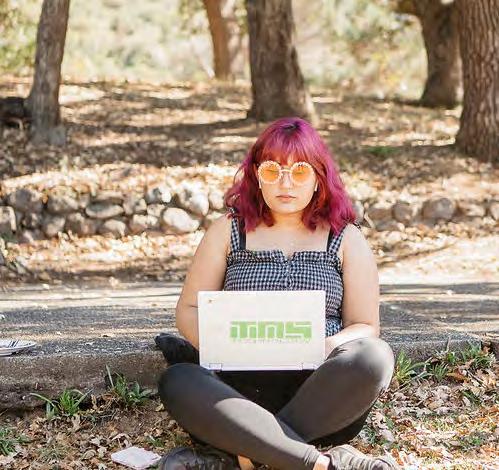
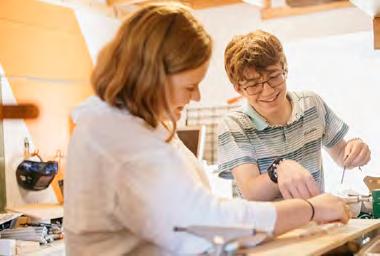
This Hamiton Field bistro highlights locally sourced organic produce, fresh sustainable seafood, and pastureraised and free-range meat. Wine lovers can embrace their inner Dionysus — Beso offers more than 20 selections by the glass and more than 50 by the bottle. 502 S Palm Drive, besobistro.com b $$ Í LD
BOCA PIZZERIA Italian
Serving interior designers, architects, homeowners and celebrities with exceptional rugs and old world customer service for over 4 decades.

Services include custom rug design and production, expert cleaning, repair, restoration, resizing and appraisals. We buy, sell, accept consignments and consider trade on select rugs and weavings
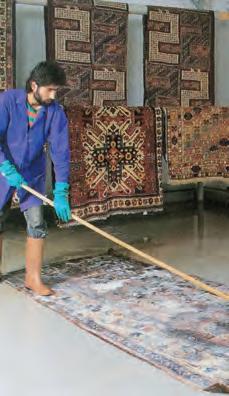
Richard “Alexander” offers you access to the world’s finest sources of rugs, Kilims, weavings and tapestries; ranging from antique, vintage, modern.
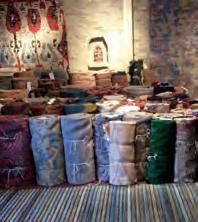
1 El Paseo Lane, Mill Valley, CA 415.384.8261 • 415.309.3045 rhabib@alexandersrugs.com alexandersrugs.com



Enjoy authentic pizza prepared with fresh mozzarella made in house and tomatoes imported from Italy, or go for a grilled rosemary chicken sandwich or the braised beef short rib pappardelle. Weekly specials include half off all wines by the bottle on Wednesdays and half off raft beers on Thursdays. 454 Ignacio Blvd, 415.883.2302, bocapizzeria.com b $$ S Í C LD
BOCA TAVERN
American Bring a date here or celebrate a special event. Favorites at this classic restaurant include bigeye tuna poke, Dungeness crab cakes, mac ’n’ cheese croquettes and duck-fat fries. From the woodburning grill there’s fresh fi sh, shrimp and dry-aged ribeye. On Tuesdays wine is half off 340 Ignacio Blvd, 415.883.0901, bocasteak.com s $$$ S Í C LD º
CHIANTI CUCINA
Italian This cozy eatery offers an array of Italian and American dishes, including a long list of pastas; try the housemade ravioli cooked up
by chef Edgar DeLon. 7416 Redwood Highway, 415.878.0314, chianti novato.com b $$$ S Í D º
HILLTOP 1892
California In a historic country estate in Novato with sweeping views, enjoy classic favorites with a California fl air. There’s a private banquet room for special events. 850 Lamont Ave, 415.893.1892, hilltop1892.com s $$$ S Í C LD BR º
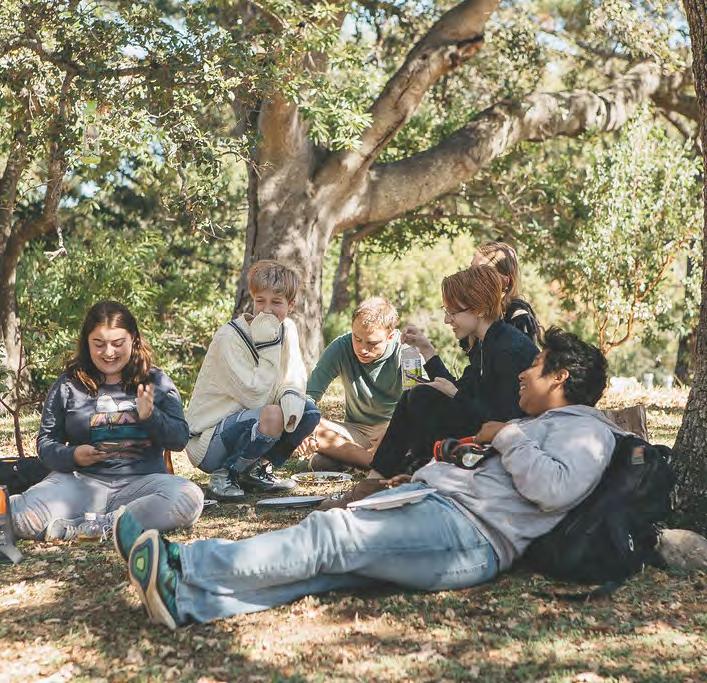
American The beer garden–style outdoor patio and live music keep fans coming back to this Novato brewhouse. Weekly events include country line dancing and open mic nights with an ample selection of beers on tap. 224 Vintage Way, 415.892.6200, hopmonk.com s $$ S Í C LD
JENNIE LOW’S
Chinese Choose from Cantonese, Mandarin, Szechuan and Hunan cuisines, and if you don’t see your favorite, let the restaurant know, they’re happy to try and prepare dishes off menu. The pot stickers are the best around. 120 Vintage Way, 415.892.8838, jennielow.com b $ S LD
American This place, known for “Best Breakfast in Novato,” also serves up generous portions for lunch. The corned beef hash, Benedicts and superb service draw a consistent crowd yearround. 1112 Grant Ave, 415.892.4482
$ S Í BL
California Organic pastries, breads, salads and sandwiches are on the menu here, including daily seasonal specials. Try the Marin Melt — Cowgirl Creamery’s Mt. Tam and Point Reyes Toma cheeses grilled on honey whole wheat, served with dressed baby greens and crisp apple slices. 1407 Grant Ave, 415.878.4952, rusticbakery.com b $$ S Í BLD BR
American There’s nothing like the comfort of a solid burger and beer when you’re kicking back and watching the game, and the Speakeasy provides. In addition to the 10 beers on tap, you can go beyond traditional pub grub with treats like a deconstructed salmon salad. 504 Alameda del Prado, 415.883.7793, the speakeasynovato.com s $$ LD BR º
TOAST American With outdoor dining and spacious inside seating, Toast Novato is ideal for large parties and families craving ample plates of comfort food. 5800 Nave Drive, 415.382.1144, toast novato.com b $$ S BLD

American Serving Novato for two decades, with dishes like prime rib, French onion soup and pecan-crusted goat cheese fl atbread. Bottomless mimosas for Sunday brunch and half-off elect wine bottles on Monday are other treats. On the patio, enjoy live music by the fi re Thursday and Friday nights.
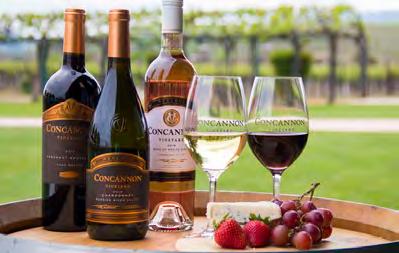
225 Alameda Del Prado, 415.833.9125,
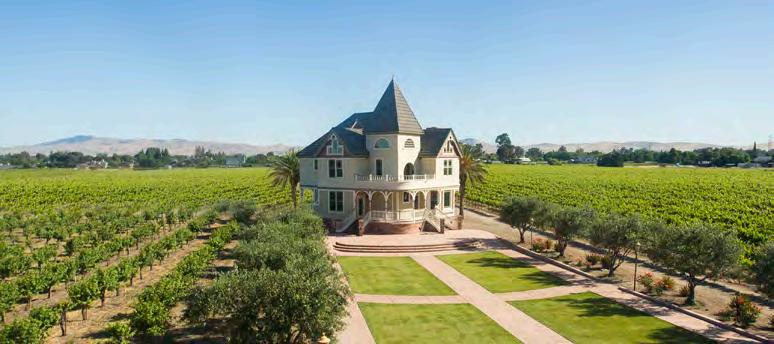
wildfoxrestaurant.com s $$ S Í LD BR º
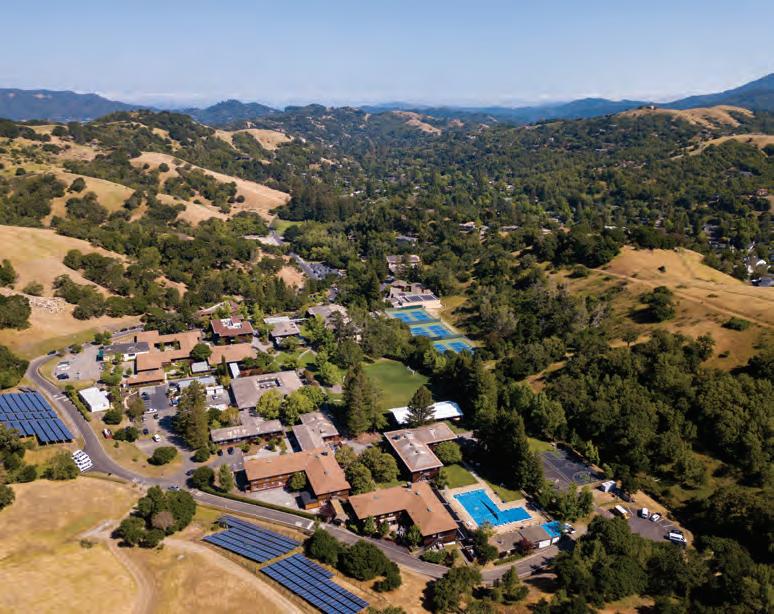
American Established in 1986, Comforts has a cozy sit-down patio and serves breakfast, lunch and weekend brunch. A large takeout section offers fresh bakery items, seasonal salads, soups, sandwiches and even entrees for dinner at home.
Besides the famous Chinese chicken salad, other winners are the stu ffed pecan-crusted French toast , fl avorful scrambles, Chicken Okasan (nicknamed “Crack Chicken” by fans) and wonton soup.
335 San Anselmo Ave, 415.454.9840, comfortscafe.com b $$ S Í BL BR
CUCINA SA Italian
Cucina SA recently renovated and expanded its space to include a full bar that seats 30 with an upstairs mezzanine area that will eventually become a lounge.
Along with two dining rooms, a private dining option and outdoor tables on the adjacent bridge, the restaurant is a solid bet for casual after-work drinks or hosting large parties. The menu has woodfi red pizzas, homemade pastas, modern takes on Italian classics and lots of vegetarian, gluten-free options and now a full bar.
510 San Anselmo Ave, 415.454.2942, cucina-sa.com s $$ S Í LD º
THE HUB American The burgers and fries, like the #1 Hub Burger with white cheddar and special sauce, and seasonal focus at the former

Farm Burger in the Red Hill Shopping Center haven’t changed, but the addition of an array of big salads like Thai spinach and keto cobb necessitated a rebranding. The chicken burger with sriracha-chile mayo is a new fave. 882 Sir Francis Drake Blvd, 415.785.4802, hubsananselmo.com b $$ Í LD
VALENTI & CO. Italian
This bright and cozy space is the ideal environment for authentic Italian dishes made with local ingredients. A seat at the chef’s table gives a prime view of the open kitchen. 337 San Anselmo Ave, 415.454.7800, valentico.com b $$$ D
AMICI’S EAST COAST PIZZERIA California A wide array of thin-crust
pizzas, freshly made pastas and salads are the ticket here, along wit h fl ame-roasted lemon chicken wings, for dine-in, takeout and delivery. Gluten-free pizza crust is available. 1242 Fourth St, 415.455.9777, amicis.com b $$ S Í LD º
POND FARM BREWING
American The new microbrewery in the West End from husband and wife team Trevor and Stephanie Martens has a rotating list of beers on tap from brewer Trevor, pop-up food from local businesses in the beer garden, and snacks at the bar. Stein parking is available. 1848 Fourth St, 415.524.8709, pond farmbrewing.com b $ Í D
American Pub grub like karaage “popcorn”
chicken, French bread pizza, and big meaty plates of ribs and tritip with all the fi xin’s defi ne the menu from chef Chris Lyon at this brewpub in a National Historic Landmark building in downtown San Rafael. A pull from one of the 34 taps yields a hand-crafted beer, cider or kombucha from local and global breweries. 1300 Fourth St, 415.521.5770, tam commons.com b $$ LD º
American This restaurant and music venue presents fresh food and local talent. The menu offers salads, savory dishes and wood-fi red pizzas plus a full bar. Come for the food, stay for the music. 100 Yacht Club Drive, 415.524.2773, terrapin crossroads.net s $$ Í C D BR º
THERESA & JOHNNY’S COMFORT FOOD

American A favorite with both the kids and the foodie set, this charming eatery serves food like Mom used to make. Drop by for eggs Benedict, tuna melts, coffee and some of the best milkshakes around. 817 Fourth St, 415.259.0182, theresaand-johnnys.com b $$ S Í BL BR
UCHIWA RAMEN
Japanese When owners Benson Yang and Kevin Fong decided to open Marin’s fi rst ramen shop in 2014, they weren’t sure what to expect. Three years later, Uchiwa remains loved by ramen enthusiasts for its rich broths, fresh noodles and wide assortment of appetizers. Vegetarian, vegan and gluten-free options available. 821 B St, 415.991.3693, uchiwaramen.com b $$ LD
VIN ANTICO American Vin Antico serves seasonal market-inspired cuisine like stoneoven-baked fl atbreads, handmade pastas and organic salads, all innovatively prepared. The kitchen is open to the dining room and there’s a full bar with artisan cocktails. 881 Fourth St, 415.721.0600, vinantico.com s $$ S C LD º
DAVEY JONES DELI
American Stationed in the New Bait Shop Market, Davey Jones Deli offers houseroasted sandwich meats, healthy condiments and local, organic vegetables; the deli serves sandwiches, veggie-wiches, wraps and
salads with vegetarian, vegan and meat-lover options. Because the sandwiches are so generous, this easy stop is great during a day of boating, biking, hiking, and general adventuring around Marin. Gate 6 Road, 415.331.2282, daveyjonesdeli.com b $$ S Í L
JOINERY American
This waterfront restaurant features craft beer, burgers, rotisserie chicken and other hearty, seasonal fare in a communal setting, with outdoor seating and great views. 300 Turney St, 415.766.8999, joineryca.com b $$ Í LD
FOOD FRANCAIS French
Owned and operated by the owners of Le Garage, F3 serves brunch, lunch and dinner featuring “Frenchi fied” American comfort food. A rotating menu includes items like the Quack burger (duck con fit, black pepper chèvre, lettuce and red onion marmalade). Enjoy with a side of Brussels sprout chips or pommes dauphines (tater tots). 39 Caledonia St, 415.887.9047, eatf3.com s $$ S Í LD BR
This spacious popular hangout has served up wonton soup, pot stickers and daily specials for nearly two decades. For an indulgent treat, order the Szechwan crispy calamari, honeyglazed walnut prawn or lemon chicken. Staying in? Delivery is available. 2650 Bridgeway, 415.331.5300, fengnian.com b $$ S LD
FISH Seafood The ultimate place for freshly caught fare. Order the fi sh tacos, ceviche and a bottle of wine and take in the bay views on the open-air deck. Casual; bring a hat on sunny days. 350 Harbor Drive, 415.331.3474, 331fish.com b $$$ S Í LD
KITTI’S
This home-style family restaurant has been in Sausalito 20 years and features favorites like lettuce cups, soft spring rolls and weekly specials. 3001 Bridgeway, 415.331.0390, kittisplace.com b $$ S Í LD
SAYLOR’S
RESTAURANT AND BAR Mexican Chef/ owner Sean Saylor uses fresh local ingredients and seafood to create a distinctively Cabo combination of California and Mexican cuisine. Choose from more than 200 varieties of tequilas that are even better when enjoyed in the private Cabo Wabo room, named for (and approved by) Mill Valley’s own tequila master, Sammy Hagar. 2009 Bridgeway, 415.332.1512, saylors restaurantandbar.com s $$ S Í C LD º
Sausalito’s oldest seafood house. Scoma’s boat, berthed at Pier 47, fi shes seasonally and is approved for salmon and Dungeness crab, resulting in fresh catches year-round. The menu regularly features whole crabs, chowders and grilled fih. 588 Bridgeway, 415.332.9551, scomas sausalito.com s $$ C LD
The fi sh is bought daily from loca l fi shers, who are also restaurant patrons. Recipes are adjusted to incorporate the freshest catch. 303 Johnson St, 415.332.1492, seafoodpeddler.com s $$$ S Í LD BR º
SUSHI RAN Japanese
Sample innovative small plates just big enough to share before enjoying some of the best sushi the Bay Area has to offer; the prices don’t deter the herd of enthusiasts who line up nightly to partake. Just stopping by? The wine, cocktail and sake lists keep even the pickiest bar fly satisfied. Reservations are required in the main room. 107 Caledonia St, 415.332.3620, sushiran.com s $$ Í LD
Chinese Fresh ingredients, free-range chicken and traditional dishes ful fi ll the Chinese food craving with a nice atmosphere for dining in and great takeout for a night at home. 3001 Bridgeway, 415.332.5818, tommyswok.com b $$ S Í LD
THE TRIDENT Seafood
Set in a turn-of-thecentury building constructed for the San Francisco Yacht Club, this waterfront restaurant is a shoein for date night. The restaurant, a famous 1970s hangout, is now known for supporting local farmers, fi shers and organic food producers. 558 Bridgeway, 415.331.3232, the tridentsausalito.com s $$$ S Í LD BR º
CAFFE ACRI Italian The well-lit corner cafe in Tiburon is a go-to for bikers, city commuters and locals. Diners wil l fi nd Italian roast espresso drinks, freshly baked pastries and eggs for breakfast and a selection of soups, salads and paninis for lunch. 1 Main St, 415.435.8515, caffeacri.com b $$ Í BLD
DON ANTONIO TRATTORIA Italian

Located in Tiburon’s Ark Row, this trattoria serves authentic Italian cuisine in a quaint setting. Traditional selections include chicken piccata, veal marsala and housemade pesto. 114 Main St, 415.435.0400, don antoniotrattoria.com b $$ D
LUNA BLU Italian Executive chef Renzo Azzarello serves Sicilian seafood and homemade pastas with a Californian touch. The seasonal menu incorporates fresh and organic produce, local naturally grown meat and poultry from small farms. The restaurant complies with Monterey Bay Aquarium Seafood Watch, so all the seafood is sustainable. In 2014 diners voted Luna Blu one of the Top 100 Neighborhood Gem restaurants in America. 35 Main St, 415.789.5844, lunablurestaurant.com s $$ S Í LD
MILANO Italian Located in the Cove Shopping Center, this familyowned neighborhood spot is known for its pasta and friendly service. Favorites like the cheesy garlic
Think highest-quality craftsmanship, premium materials, hand-engraving, and the option of stunning diamonds and gold. Your HELLA ID will stand out just like you.
Make it special - for that someone special. Engrave the back with a special message or personal information for first responders, who are trained to find it and respond accordingly.
On your band or around your neck, the options are as limitless as your style.

Available at: WWW.HELLA-ID.COM and 80 Throckmorton Ave, Mill Valley 415.388.8776



bread and pesto keep customers coming back. 1 Blackfield Drive, 415.388.9100, italian restaurantin tiburonca.com s $$ S Í LD
RUSTIC BAKERY
California This location of the beloved bakery offers the same menu as the other locations in Novato and Larkspur, as well as outdoor dining. Enjoy a wide array of fresh salads, sandwiches and pastries on the boardwalk. 1550 Tiburon Blvd, 415.797.6123, rustic bakery.com
b $$ S Í BLD BR
American With its hardwood floors and blue-checkered tablecloths, the sun-fi lled one-room restaurant is an area favorite. Scallops, rib-eye steak, a beef burger and traditional crab cakes are some of the popular choices. 38 Main St, 415.435.3594
b $$ S Í LD
American Reopened after an extensive remodel, Sam’s boathouse feel and boat tie-ups are intact, and spi ff y white umbrellas and deck chairs line the waterfront patio. Allday cocktails remain a fi xture as does the signature cioppino, while offerings like crab toast, a roaming oyster cart and a raw bar reflect the menu’s enduring seafood focus. 27 Main St, 415.435.4527, sams cafe.com s $$$ S Í C LD BR º
Italian Chef and owner Angelo Servino highlights organic ingredients in an array of rustic Italian dishes, including house-made pastas, wood oven pizzas, and seasonal specialties. Located on the bay in Tiburon, Servino also prides itself on its extensive sustainable seafood program. Savor la dolce vita on the waterfront patio. 9 Main St,
415.435.2676, servino.com s $$$ S Í C LD BR º
TIBURON TAVERN California The atmosphere here is enhanced by two outdoor patios, two indoor fi replaces and fresh flowers. Happy hour is 3 to 6:30 p.m. every day. 1651 Tiburon Blvd, 415.435.5996, lodge attiburon.com s $$ S Í C BLD BR º
WAYPOINT PIZZA Pizza Family-friendly, with cooked-to-order gourmet pies, slices, fresh salads and, for sports fans, a largescreen TV. Order online for quick pickup or delivery. 15 Main St, 415.435.3440, waypointpizza.com b $$ S C LD BR
DILLON BEACH COASTAL KITCHEN California Inspired by Marin’s food shed, business partners Brooke
Gray and Mike Goebel opened this ocean view restaurant as part of the forthcoming Dillon Beach Resort, west of Tomales. Seasonal eats like local black cod dip and golden beet salad give way to mains like a green chickpea falafel plate and a burger with Stemple Creek beef. 1 Beach Ave, Dillon Beach, 707.878.3030, dillon beachresort.com b $$ S Í LD
The dark blue walls accented with recessed golden light give the refreshed restaurantcum-saloon at Olema House a modern feel. The menu, including a burger, linguini and clams, and a chopped salad, skews all day casual and speaks to the inn and restaurant’s crossroads locale. 10005 Hwy 1, Olema, 415.663.1264, olema house.com/dine s $$ S C LD
NICK’S COVE American
This coastal escape is now famous for barbecued local oysters, Dungeness crab mac ’n’ cheese and cocktails incorporating homegrown ingredients. Large windows in the 120seat restaurant provide picturesque views of Tomales Bay and Hog Island (Marshall). 23240 Highway 1, 415.663.1033, nickscove.com s $$$ S Í C LD BR
OSTERIA STELLINA
California Whether it’s to cap off a ay of hiking or celebrate a romantic anniversary, Osteria Stellina suits any occasion. The menu is Italian-inspired and features local organic ingredients. If you’re up for something unusual, try the goat shoulder, a hit with both tourists and locals (Point Reyes). 11285 Highway 1, 415.663.9988, osteriastellina.com b $$ S LD
PARKSIDE CAFE
American Perfect for a sit-down alfresco meal or for grabbing a burger to enjoy on the beach. Beautiful patio garden seating, ocean views, and private wood-fi red dinners make this cafe a relaxing retreat. If you’re on the go, check out the market and bakery. Choose from an array of organic locally grown produce, artisan meats and wild seafood (Stinson). 43 Arenal Ave, 415.868.1272, parksidecafe.com s $$$ S Í C BLD
American Known for live music and an extensive menu featuring everything from crispy calamari to braised lamb shanks, Rancho
Nicasio is open seven days a week. Be sure to stop in for happy hour, 4 to 6 p.m. Monday to Friday (Nicasio). 1 Old Rancheria Road, 415.662.2219, rancho nicasio.com s $$$ S Í C LD BR º
DEPOT Seafood A seat at the room-length bar or on the patio at this snug spot on Tomales Bay’s west shore can be tough to snag on a busy summer weekend but oysters pulled straight from the bay moments before, served broiled and on the half shell, are worth the wait. Locally-sourced ingredients get equal billing in dishes like halibut crudo and a lamb burger. 12781 Sir Francis Drake Blvd, Inverness, 415.669.1244, saltwateroyster depot.com b $$ S Í LD
American Originally built from three barges in Tiburon in 1921, the Sand Dollar Restaurant wa s floated to Stinson that same year. Enjoy live music along with barbecued local oysters and New England clam chowder. The sunny deck is great in the afternoon (Stinson). 3458 Shoreline Highway, 415.868.0434, stinsonbeach restaurant.com s $$ S Í LD
American Sheryl Cahill, owner of the Station House Cafe, opened her next venture a few blocks down in the former Pine Cone Diner. The fast-casual eatery led by chef Aaron Wright (formerly of Tavern at Lark Creek) serves favorites like rotisserie chicken,
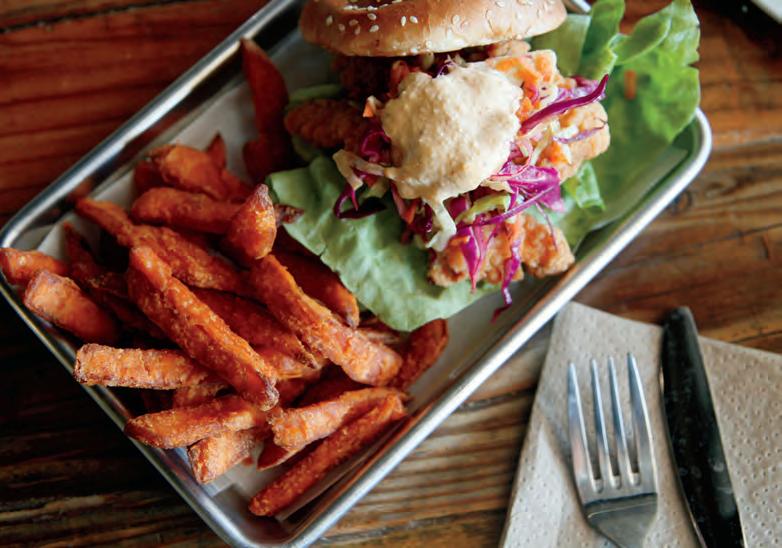
smoked oysters and pork-belly BLTs as well as wholesome vegetarian fare (Point Reyes Station). 60 Fourth St, 415.663.0303, sidestreet-prs.com b $$ S Í LD º
STATION HOUSE CAFE
&
The historic inn has reopened as a roadhouse-style restaurant featuring rustic decor and a delicious yet a ffordable menu. Try the house-made bread and honey butter, the kale Caesar and the stu ffed quail, then come back and work your way through the ever-changing menu (Olema). 10000 Sir Francis Drake Blvd, 415.663.1034, sirandstar.com b $$$ Í C D
American Fresh local homegrown foods are showcased for breakfast, lunch and dinner. Stop in on weekends (5 p.m. on Sundays) for live music and wine, beer and cocktails (Point Reyes Station). 11180 Highway 1, 415.663.1515, station housecafe.com s $$ S Í C BLD BR º
American Where in Northern California can you enjoy a taco at a restaurant nestled directly under a lifeguard tower? At The Siren Canteen, of course. Opened in the summer of 2014, this smart beach shack perched on the sandy shores of Stinson serves
up burritos, burgers and creamy Meyer lemon milkshakes. Though the food is solid, we think the BYOW option with a $10 corkage fee and million-dollar views is reason enough to give this shack a shout-out (Stinson). 3201 Highway 1, 415.868.1777, thesirencanteen.com b $ Í LD
TONY’S SEAFOOD
Seafood The crowds still come on sunny weekends for the barbecue oysters and amazing views of Tomales Bay but the recent purchase by the Hog Island Oyster Co team meant a refresh of the interior and a spi ffed-up menu of salads and seafood pulled
from the bay’s waters. 18863 Shoreline Hwy, Marshall, 415.663.1107, tonysseafood restaurant.com b $$$ S Í C LD
American The oldest continuously operating saloon in Marin makes a mean apple brandy cocktail aptly named for the Swiss folk hero, William Tell (who
famously shot an arrow off is son’s head), but the revamped restaurant strives to make its name around food with a seafood chowder made with local cod, a Cobb salad with applewood bacon, and a butcher’s cut of the day sourced from nearby Stemple
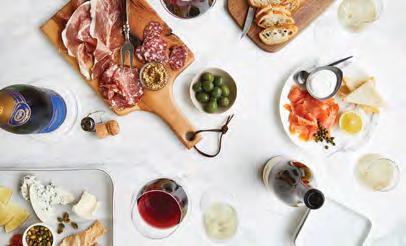
Creek Ranch and grilled to order. 26955 Highway 1, 707.879.2002, williamtellhouse.com s $$ S LD
s b $ $$ $$$ S
Full bar Wine and beer Inexpensive (entrees $10 or less) Moderate (up to $20) Expensive ($20 and over) Kid-friendly
Í C BLD BR º
Outdoor seating Private party room Breakfast, lunch, dinner Brunch Happy hour
These listings are not intended to be a full review of the business, rather a quick guide to some of the most popular restaurants in the county. For more restaurant listings, visit us online at marinmagazine.com/dine
Enchanting, inviting, memorable... Experience elegant seated tastings of world-class Sparkling Wines and Pinot Noir Drink in spectacular vineyard views from your table on the terrace Indulge in artisan cheese and caviar to enhance your wine tasting | Take a behind-the-scenes Sparkling wine tour Reserve your tasting experience today
10am to 5:30pm daily | Reservations required | 21 and over | 800-716-2788 ext 150 | www.domainecarneros.com 1240 Duhig Road, Napa (o Hwy 12/121) 4 miles west of Napa, 5 miles east of Sonoma


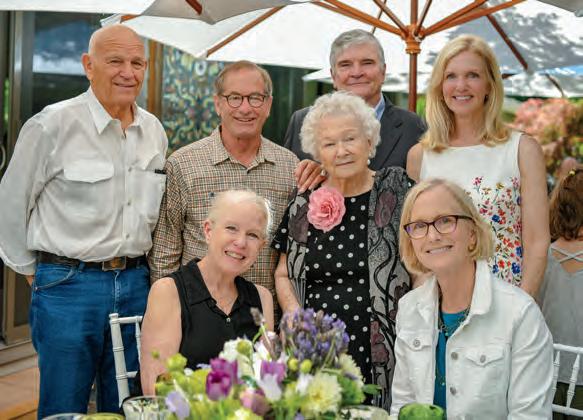
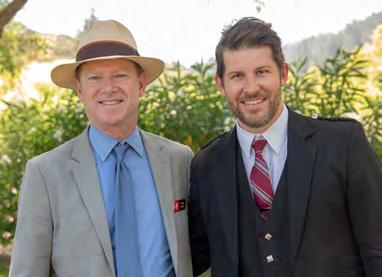
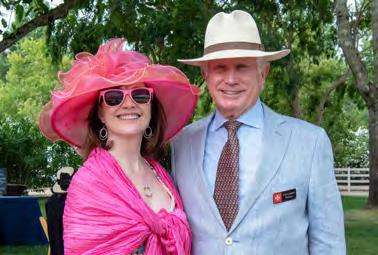
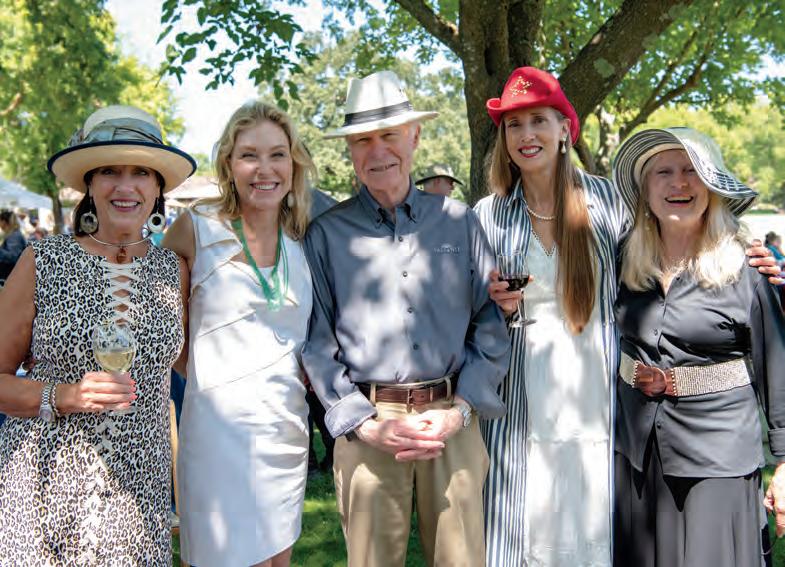
CHECK
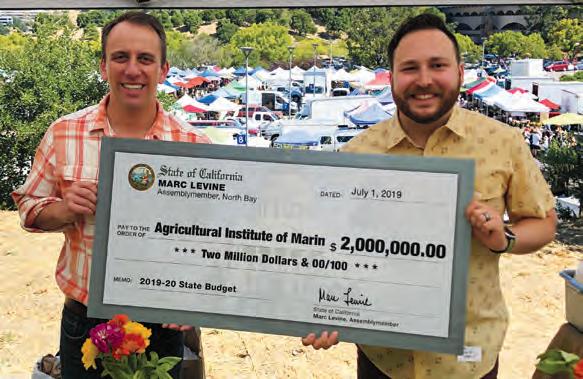
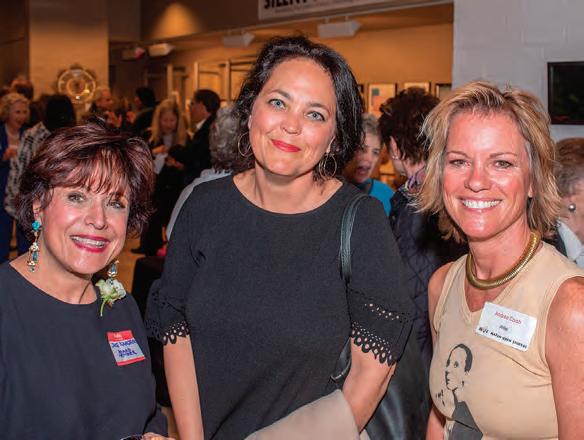



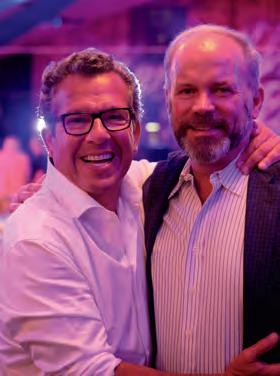

The popular San Rafael store gears up for its biggest season.
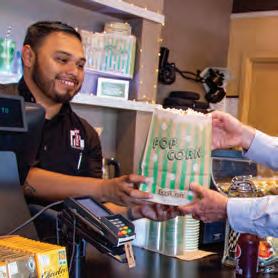
moving it to the Miracle Mile in San Rafael. Elaine Foster bought the business in 1990 and relocated it to its current spot on Fifth Street in San Rafael in 1994. Kathy Collins stepped in to purchase the business in 1998, and Martha Smithey partnered with Collins in 2011. The business is on the ground floor of a building owned by the Independent Order of Odd Fellows, a fraternal organization, who meet upstairs.
THE GOODS Everything you need to succeed at baking cakes and cookies is here, plus candy-making supplies, cake toppers, seasonal decorations and candies. You can also take classes to learn how to bake and craft. CakeArt can print custom images on edible sugar sheets with edible ink.
OWNERS Business partners Maria Smithey, Kathy Collins and Kathy’s daughter, Gina, manage the store and operations.
CLAIM TO FAME The shop produces hundreds of premade gingerbread houses, complete with royal icing and decorations, and hosts insanely popular house decorating classes.
BACKGROUND Maria Kopfer and her daughter opened the shop in Corte Madera in 1963 before
Who knew that the pumpkin, the popular orange rotund symbol of fall, packed such a nutritious punch? A tip for parents carving jack-o’-lanterns: don’t toss those seeds, aka pepitas: instead, roast ’em with salt. Pumpkin seeds are a great source of protein, unsaturated fat including omega3, iron, selenium, calcium, B vitamins and beta-carotene. And then there’s the squash’s fleshy part, touted as a low-calorie superstar. Its bright orange color signals an ample supply of vitamin A and C: one cup contains over 200 percent of most people’s recommended daily A intake and nearly 20 percent of the typical RDA for C.
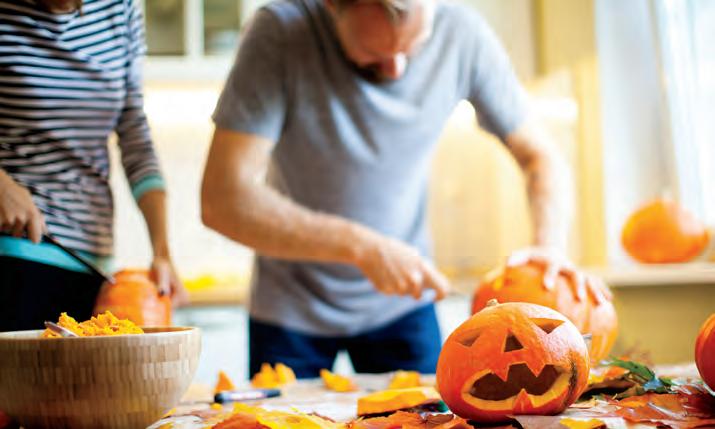
WHAT MAKES IT SPECIAL It is a family-run business. Kathy specializes in fondant and cookies, while Maria leans into cakes and chocolates. In the fall, the shop holds classes at a massive baking table, where baking students learn to make sugar skulls and cakes topped with incredible, 100 percent edible sculptures like giant spiderwebs and fondant pumpkins and skulls. Smithey’s gingerbread classes sell out months in advance, and families come back year after year to create a home spun from sugar. “The whole shop is covered in gingerbread” during the class, Smithey says. Foster, now in her 80s, still makes appearances on the sales floor. “People come in just to see Elaine,” Smithey says. “They remember taking classes with her.” 415.456.7773, cakeartsupplies.com

Mill Valley Film Festival attendees need something to sustain them as they watch flick after flick. At Larkspur’s Lark Theater, the new parklet out front, called Gilardi Marquee Terrace, is an ideal space to sample the theater’s expansive, movie-worthy eats or have coffee or a cold drink between shows. There’s pizza from nearby Picco, stuffed pretzels, Kobe beef hot dogs, and ice cream, milkshakes and floats from Sausalito’s Lappert’s, as well as the usual candy suspects (Jujubes, we’re looking at you). The popcorn, however, is in a league of its own. It’s popped with coconut oil, according to Ellie Mednick, the Lark’s executive director. Add a real butter topper to push this ’corn over the top.
415.924.5111, larktheater.net
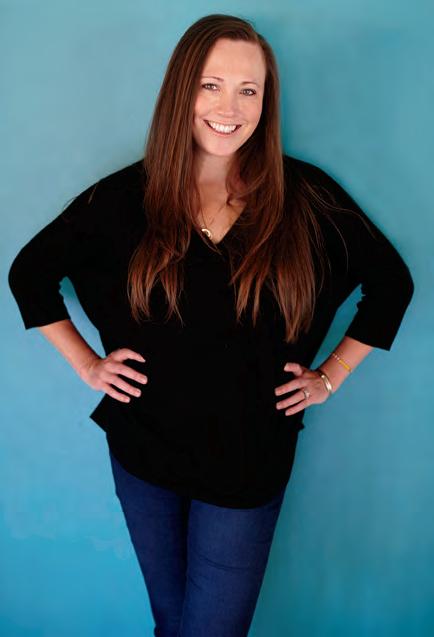
The Performing Arts Academy of Marin (PAAM) provides premier training and performance opportunities in dance and theater arts for children and youth ages 3 and up. We foster a love of the performing arts and equip students with skills to be successful artists and people.
What can kids explore at PAAM?
We offer session-based classes, large-scale musical and dance performances, summer camps, intensives, guest artist series, voice training and a dance company
What’s the newest offering t PAAM?
I am super excited about our new Foundations Program, which houses classes for our youngest students. The sessions are shorter (seven classes), allowing for flexibility with little ones’ evolving inteests while still maintaining a curriculum that builds throughout the year.
What makes PAAM a special place to train?
The people. Nothing makes me happier than to see a friendship develop that never would have existed except if not for two students’ shared experiences at PAAM. Another example is seeing a kid who cries on the first day successfully make it onstage at the end of the season.
What makes you excel at what you do?
I surround myself with people who feel the heart and soul of what we do, from our staff and faculty to our students and families.
PERFORMING ARTS ACADEMY OF MARIN 60 BELVEDERE DRIVE, MILL VALLEY, 415.380.0887, PAAMARTS.COM
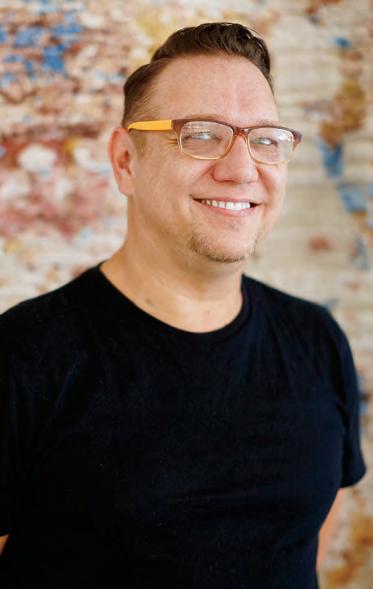
The Rug Establishment is a leader in luxurious handcrafted rugs, and we are specialists in custom rug designs for the interior design industry worldwide. Inspired by our artisans’ craftsmanship, myriad unique fibers, manufacturing techniques and thousands f sumptuous colors, our rugs are known for their beauty and outstanding quality.
How did The Rug Establishment come to be?
The Rug Establishment has been in business for over 10 years in Australia. While I was living in Shanghai, China, I became the sales director at the Shanghai showroom for three years. Once I moved back to the States it only seemed natural to open one here.
Why did you choose Mill Valley?
For several years I visited friends who live in Mill Valley and fell in love with the town and its quaint, unique feel.
How does The Rug Establishment give back?
The Rug Establishment works with India’s Care & Fair program where we fund an entire school’s annual budget and provide education support to families working in the rug production area near Bhadohi, India.
What makes your work worthwhile?
Creating face-to-face working relationships and friendships is the key to making any business a success. What makes my work worthwhile is seeing my clients satisfied and happy with the rug they’ve created or purchased from The Rug Establishment,
THE RUG ESTABLISHMENT 27 MILLER AVENUE, MILL VALLEY, 415.888.3247, THERUGEST.COM
Healus Neuro Rehab Center 415.388.9945 • info@healus.com 655 Redwood Hwy Frontage Road, Ste. 225 Mill Valley, CA 94941





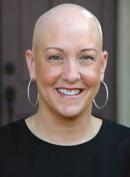

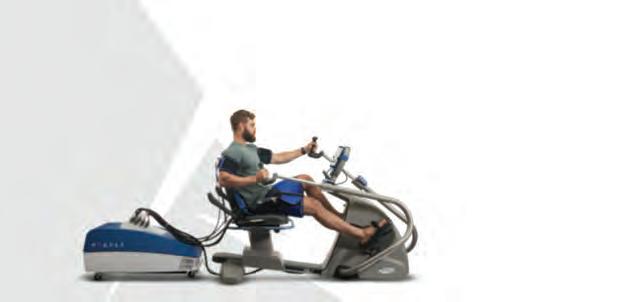

Open Mon–Sat 10–5 EncoreConsignment.com 11 Mary Street, San Rafael 415.456.7309







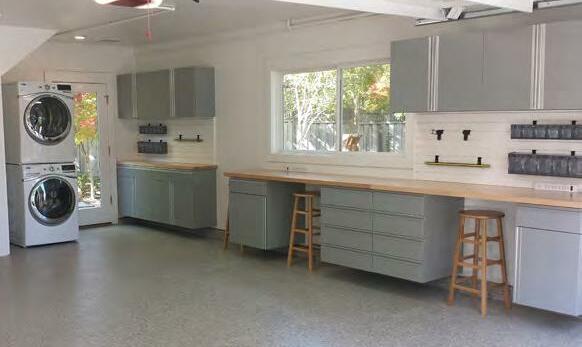

Marin is more than a place, it’s a lifestyle and a state of mind. Whether hiking Tennessee Valley, paddling out in Bolinas, biking Mt. Tam, enjoying theater or live music, Marin is an extraordinary place with a rich creative history. The county, made up of more than 16,000 acres of preserved open space, is minutes from one of the most vibrant cities in the world.
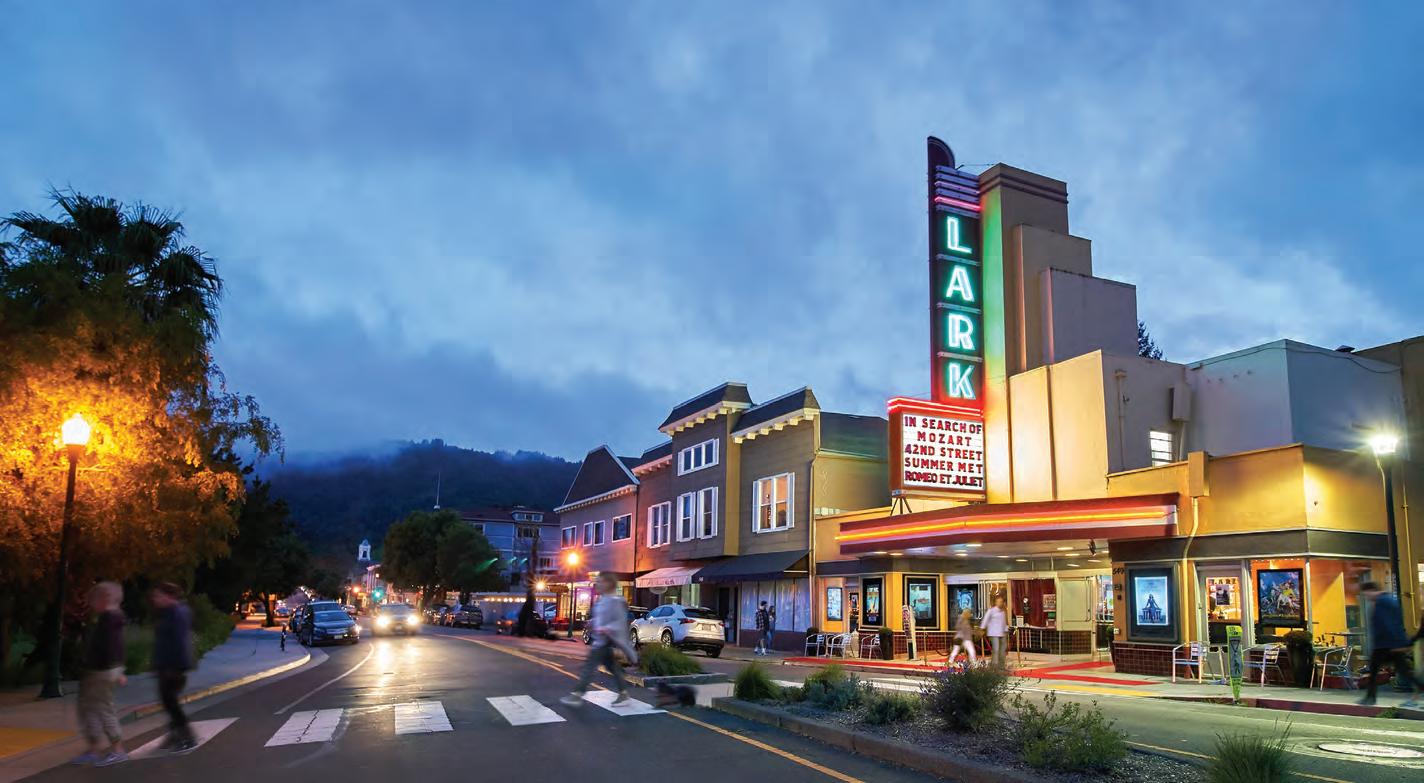
Tina McArthur & Victoria Love are experienced real estate insiders and consistently rank among the top 10 REALTORS® in Marin. Let the McArthur Love Team help you buy or sell your home. The possibilities are wide open.

When it was time for home-buying, this San Franciscan made the jump to Marin.
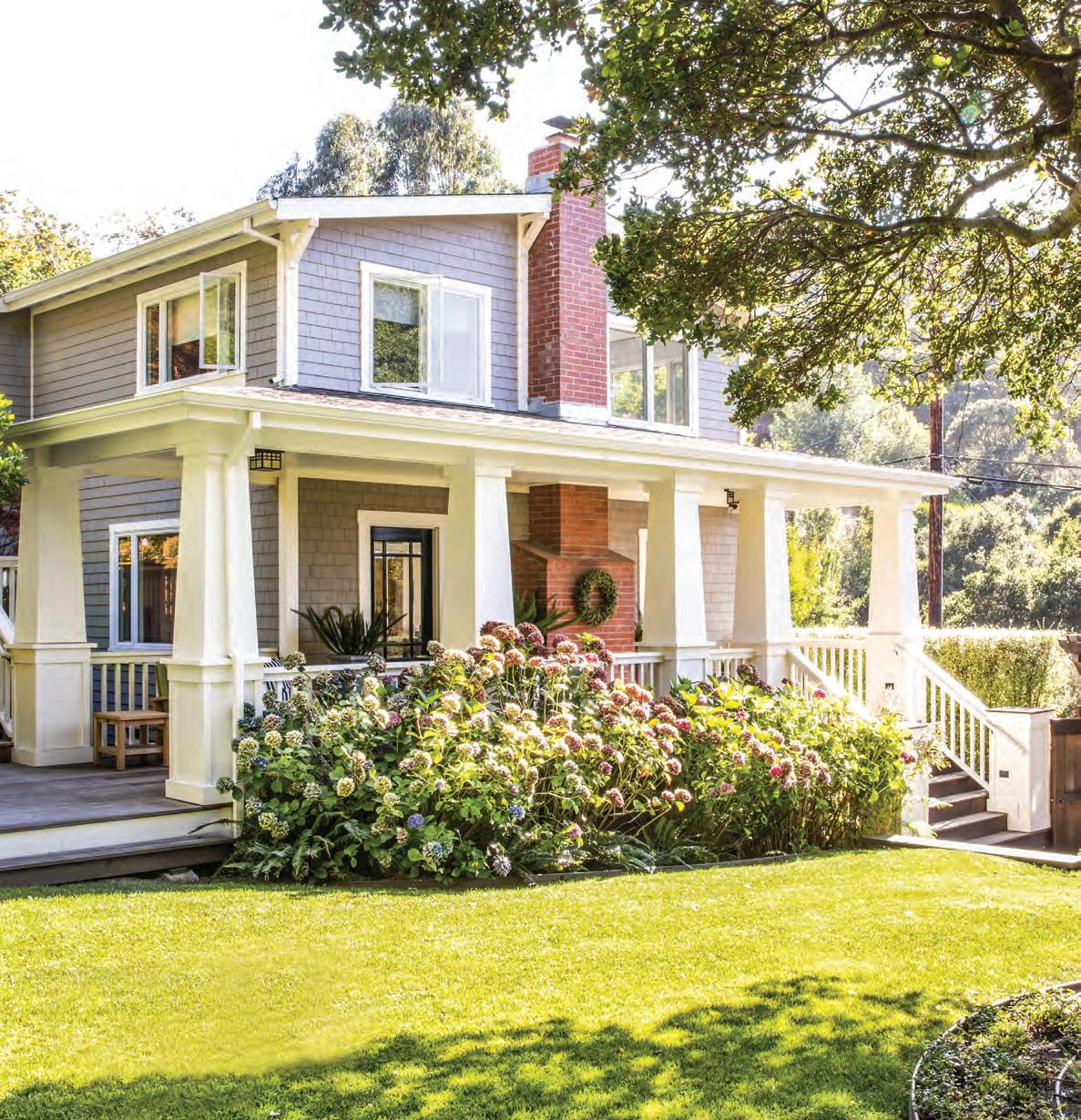
urban living. But when it came time to dip her toe in the real estate market, she recognized that purchasing in Marin County made better long-term sense than staying in the city.
“I was spending most of my weekends here for one activity or another,” she recalls. Buying into a community with quality public schools was also a priority. Nothing unusual about this decision — though in Summers’ case it was admittedly putting the cart before the horse. “I was still single at the time, but knew I’d eventually want kids.”
So when the right home came up after just three months of browsing, she didn’t wa ffle. “I saw it and put in an offer the very same day.” A month later the movers arrived to pack up her Cow Hollow apartment and unload its contents into her ver y fi rst home. The fourbedroom Craftsman was in great condition; still, she wanted to put her personal stamp on the place. So she brought in professionals, including San Anselmo–based interior
designer Ann Lowengart and San Rafael contractor Martin Arrington, to create a space that better reflected her enthusiasms and taste. “They were an amazing team,” says Summers. “I got really lucky.”
One top priority: creating a comfortable and functional home office. “I work in Santa Clara,” Summers says. “I knew I’d want to work at home more often because of the increase in commute time.” She agreed with her design team that the home’s tiniest bedroom would be her workspace. “It was small, and right off he main living space, so it really just made sense.” The color-infused room contains two separate work areas and custom-designed cabinetry to keep clutter from piling up.
Other changes included adding a bank of bifold glass doors to the kitchen/dining area that spill out onto a newly constructed deck. “This made a big difference in terms of increasing the home’s indoor-outdoor flo,” Summers says. “I look out at a wall of greenery.”
The home’s lower level also needed tweaks, and here her designer pulled out all
the stops to turn a once-bland room into an absolute showstopper. “I wanted it to be the media room, but also double as a guest suite,” Summers adds. A custom sectional pulls out into a queen bed and a large ottoman doubles as a coffee table. New built-ins provide storage and minimize mess. Bold wallpaper adds a touch of whimsy to the serene but sophisticated vibe. Summers also asked Lowengart to oversee a gut remodel of the adjacent halfbath to make it a full one for the comfort of frequent houseguests.
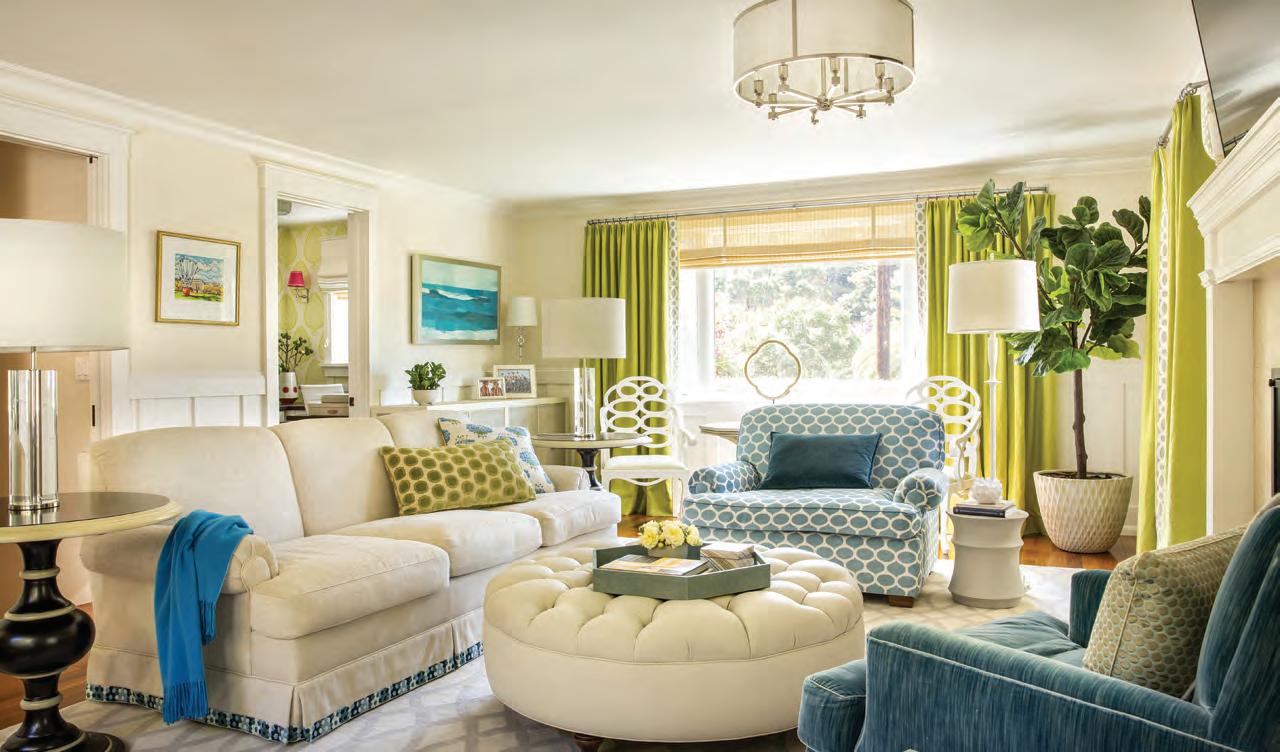
Some people find renovations extremely stressful and not really worth the headaches. But for Summers the project coincided with a whirlwind romance with her now-husband, Chris. “As the relationship got more serious, he got more of a say in the design,” she says with a laugh. All told, creating her dream home took nearly 18 months. “Our wedding took place just as renovations were wrapping up.” m
For column consideration, please send photos and a description to dawn@marinmagazine.com.
WHERE SHE LIVES T he Chapman Park neighborhood of Corte Madera
WHAT SHE OWN S A four-bedroom, three-bath Craftsman




LISTING AGENT Jimmy Wanninger of Coldwell Banker
SELLING AGENT Kenton Wolfers of Golden Gate Sotheby’s Internationa l
THE STATS Price per square foot for homes in the neighborhood: $1,000
Opener: The Chapman Park Craftsman home. Opposite: A classic Ann Lowengart–designed living space. This page from top: Kitchen with adjacent dining area; Susie and family; the decked-out media room also doubles as a guest suite; a well-equipped home office with style to spare.
A tasty, greener way to garden.
A food forest relies on the tiered effect. Start with tall foundational trees (full-size nut or fruit trees) for your plant design; then decide on the small-tree layer (semidwarf fruit trees), then the shrub layer (flowering perennials), next the herb layer (low-growing ornamental, culinary and medicinal herbs), then the ground-cover layer (nasturtiums) and the root layer (carrots and beets) and finally the vine layer (kiwi and grapes).
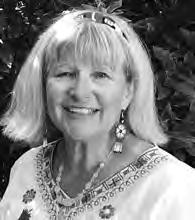
that prevents soil from drying out. Deep-rooted plants like horseradish and marigolds break up the soil and seek out micronutrients that are then available to shallow-rooted plants. And pollinator-magnet flowers like echinacea and borage are essential to sustain seed and fruit crops.

a food forest, like any forest, can take years to establish, so patience is key. But once going strong, your edible harvest increases, beneficial insects are attracted, weeds are suppressed and nutrients are returned to the soil.
Plants, like people, thrive in diverse communities. Enter the backyard food forest: a garden where mutually beneficial plant relationships are encouraged much like they would be in a real forest — and you get to put the results on your plate. And while every food forest is unique and there are no absolute best particular plant combinations, certain guidelines are helpful to ensure a productive, healthy garden. Here are some tips to create your own backyard food oasis. BY
KIER HOLMESEach plant has a role. Peas and beans, for example, fix the nitrogen in the soil, a process that fuels plant growth. Plants with large leaves like pumpkins and squash are not only edible but functional as an excellent living mulch
At first glance the garden may look a little crazy, but the groupings are actually thoughtfully arranged to provide a supply of cut flowers, to encourage companion planting (different crops near each other help repel pests, attract beneficial insects and improve growth and vigor), and to take advantage of vertical and horizontal spaces.
While the benefits — especially with companion planting — are apparent in one season,
HOMEWORK Before digging in, observe the qualities and conditions of your site. What are the sun, wind and rain patterns? Ideally, plant the tallest layers to the north and progressively step down the lower layers to the south.
Design garden beds with circular, not straight, lines to maximize space, and plant frequently harvested crops closer to the edge of the bed and less frequently harvested plants toward the center.
IN THE FIELD Allison Krivoruchko, a Marin Master Gardener, successfully grows her own backyard food forest in Mill Valley to “utilize our small space and plant more layers of vegetables and fruit trees under our tall palm and apricot tree.” Her top companion-pairing plant choices: large African marigolds and nasturtiums with tomatoes, cucumbers and squash. Also, sunflowers, dill and fennel to control aphids and leaf miners.
 The property information herein is derived from various sources that may include, but not be limited to, county records and the Multiple Listing Service, and it may include approximations. Although the information is believed to be accurate, it is not warranted and you should not rely upon it without personal verification. Real estate agents affiliated with Coldwell Banker Residential Brokerage are independent contractor agents and are not employees of the Company. ©2019 Coldwell Banker Residential Brokerage. All Rights Reserved. Coldwell Banker Residential Brokerage fully supports the principles of the Fair Housing Act and the Equal Opportunity Act. Owned by a subsidiary of NRT LLC. Coldwell Banker, the Coldwell Banker logo, Coldwell Banker Global Luxury and the Coldwell Banker Global Luxury logo are service marks registered or pending registration owned by Coldwell Banker Real Estate LLC. CalBRE License #01908304
The property information herein is derived from various sources that may include, but not be limited to, county records and the Multiple Listing Service, and it may include approximations. Although the information is believed to be accurate, it is not warranted and you should not rely upon it without personal verification. Real estate agents affiliated with Coldwell Banker Residential Brokerage are independent contractor agents and are not employees of the Company. ©2019 Coldwell Banker Residential Brokerage. All Rights Reserved. Coldwell Banker Residential Brokerage fully supports the principles of the Fair Housing Act and the Equal Opportunity Act. Owned by a subsidiary of NRT LLC. Coldwell Banker, the Coldwell Banker logo, Coldwell Banker Global Luxury and the Coldwell Banker Global Luxury logo are service marks registered or pending registration owned by Coldwell Banker Real Estate LLC. CalBRE License #01908304
San

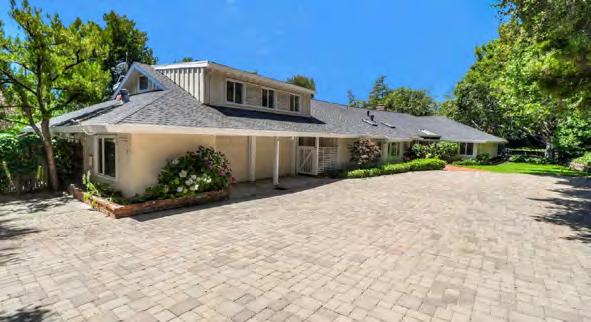
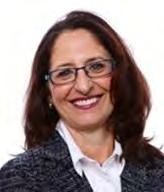
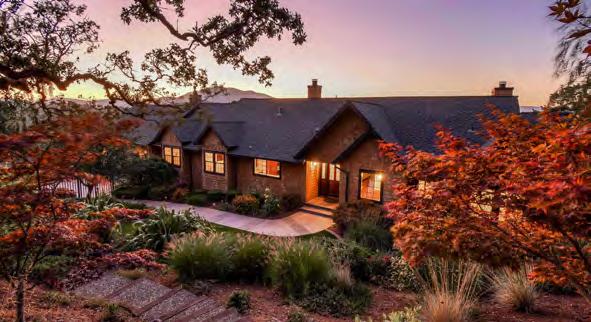
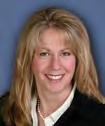


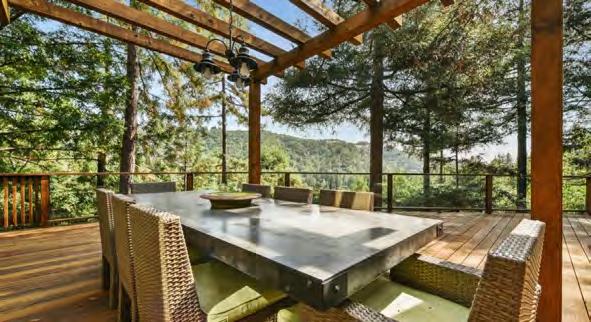
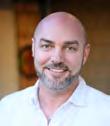
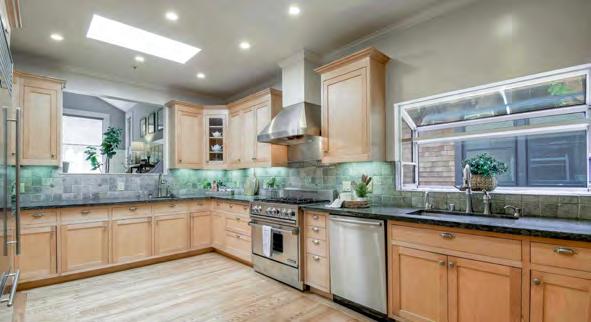
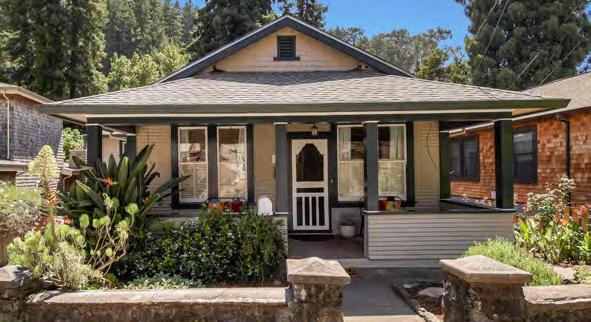
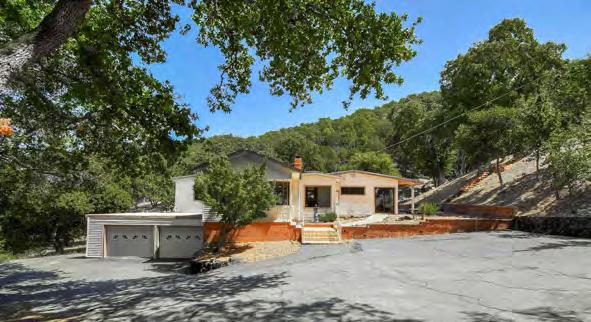
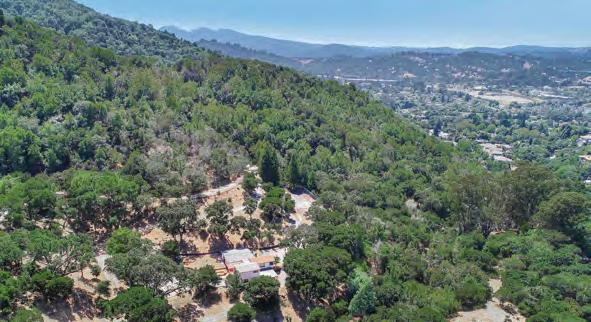

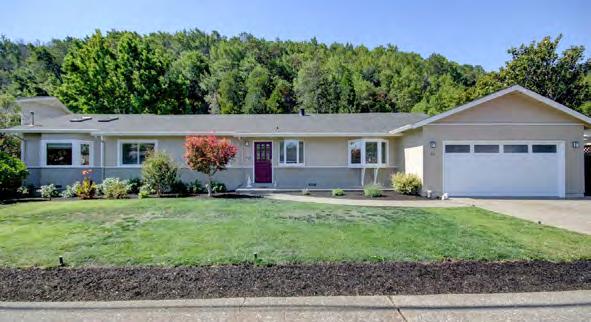
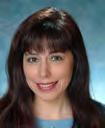
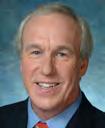
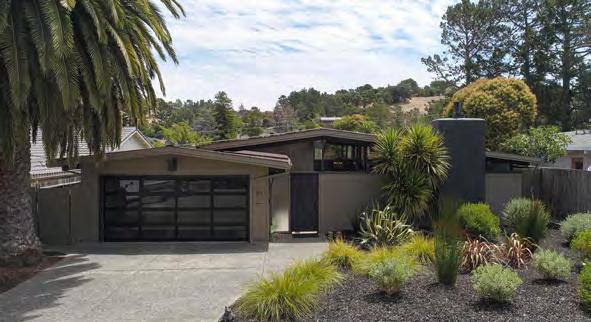
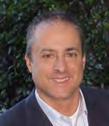
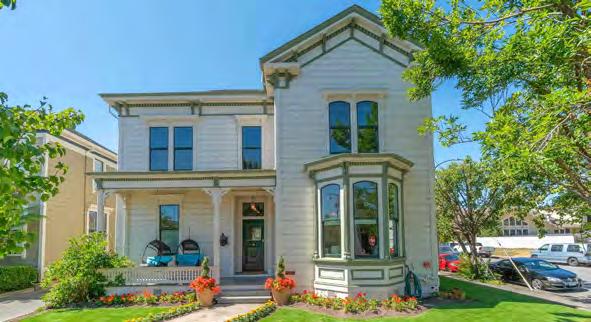



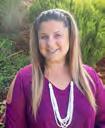
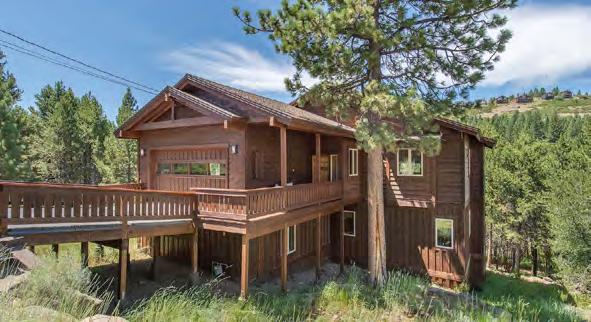
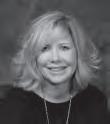
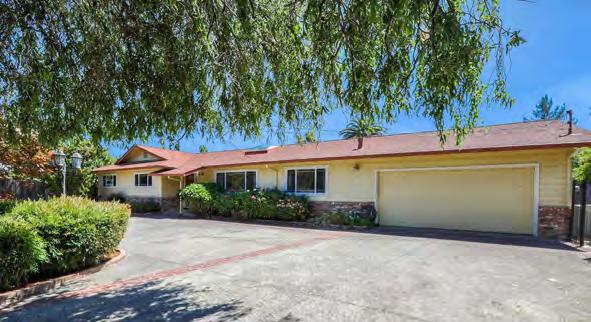

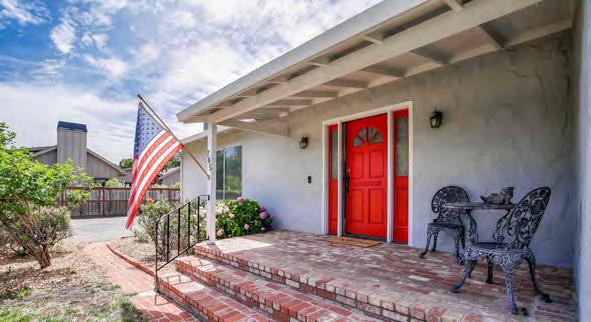

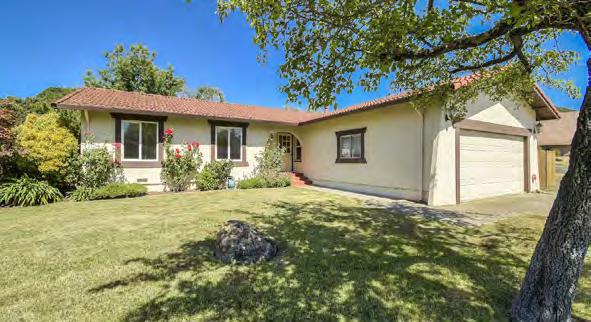

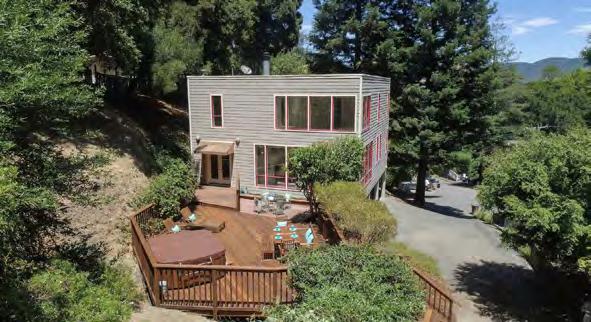



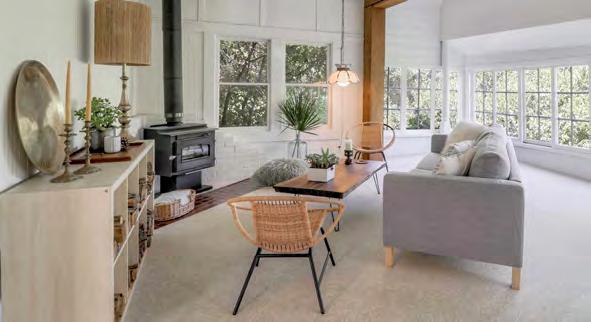

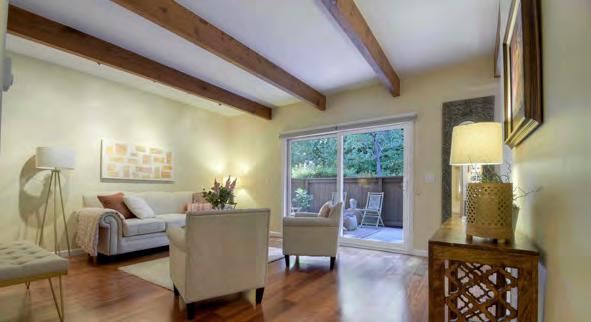

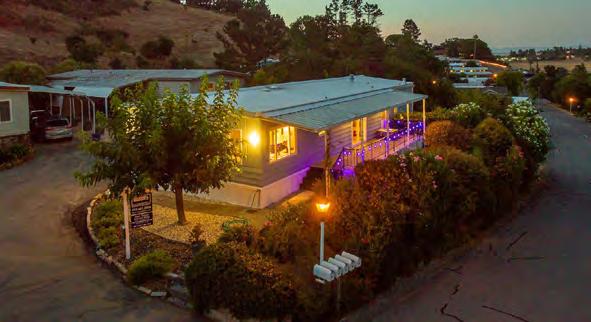

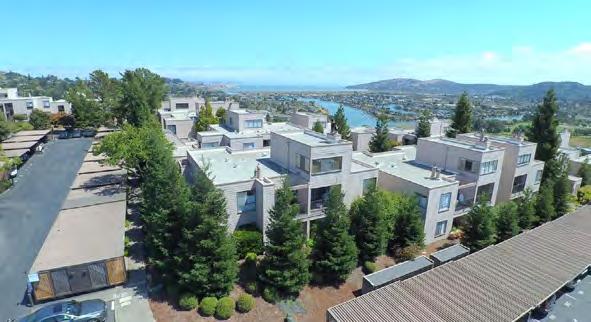
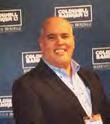



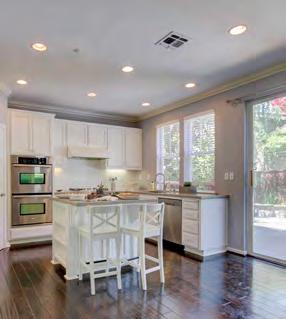
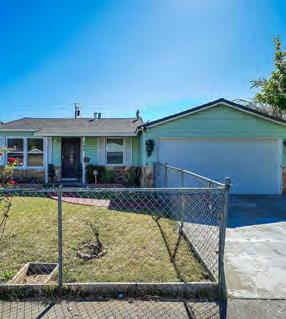
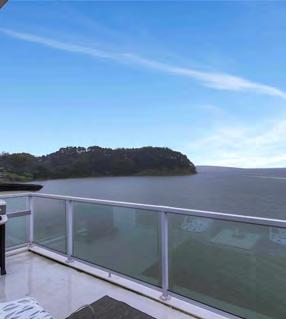
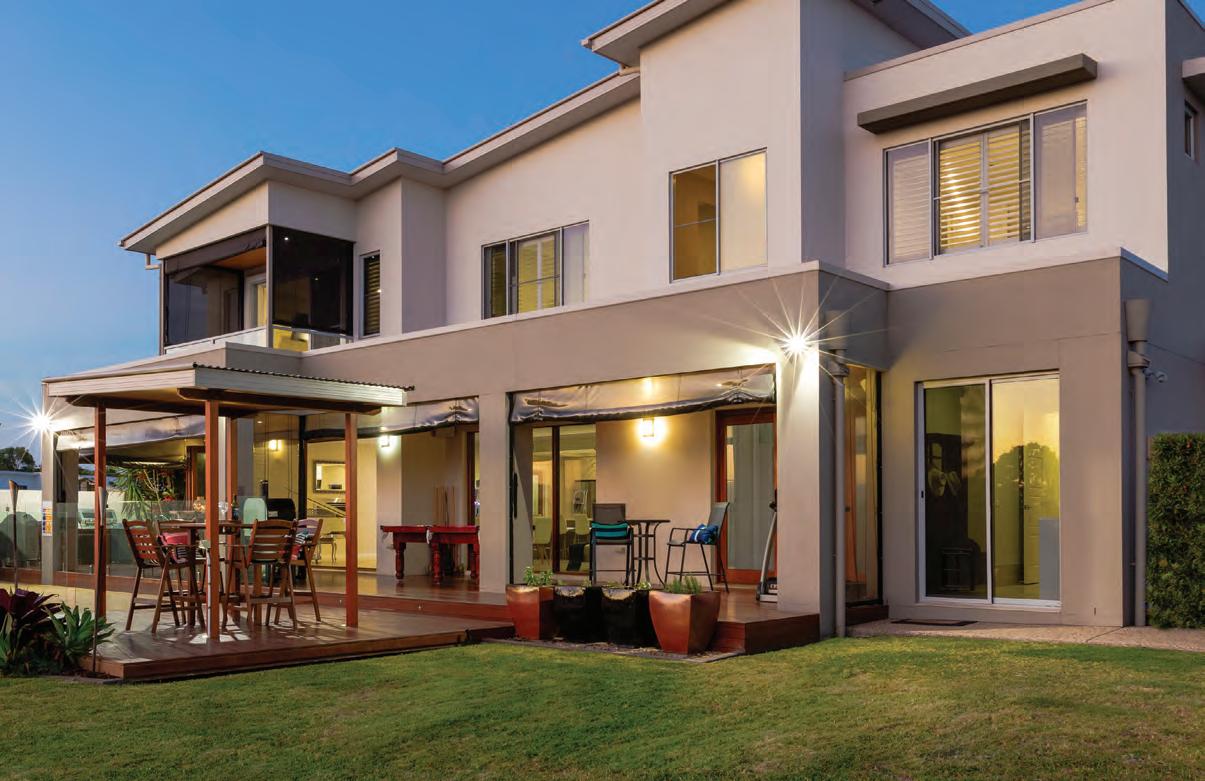




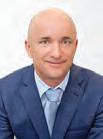













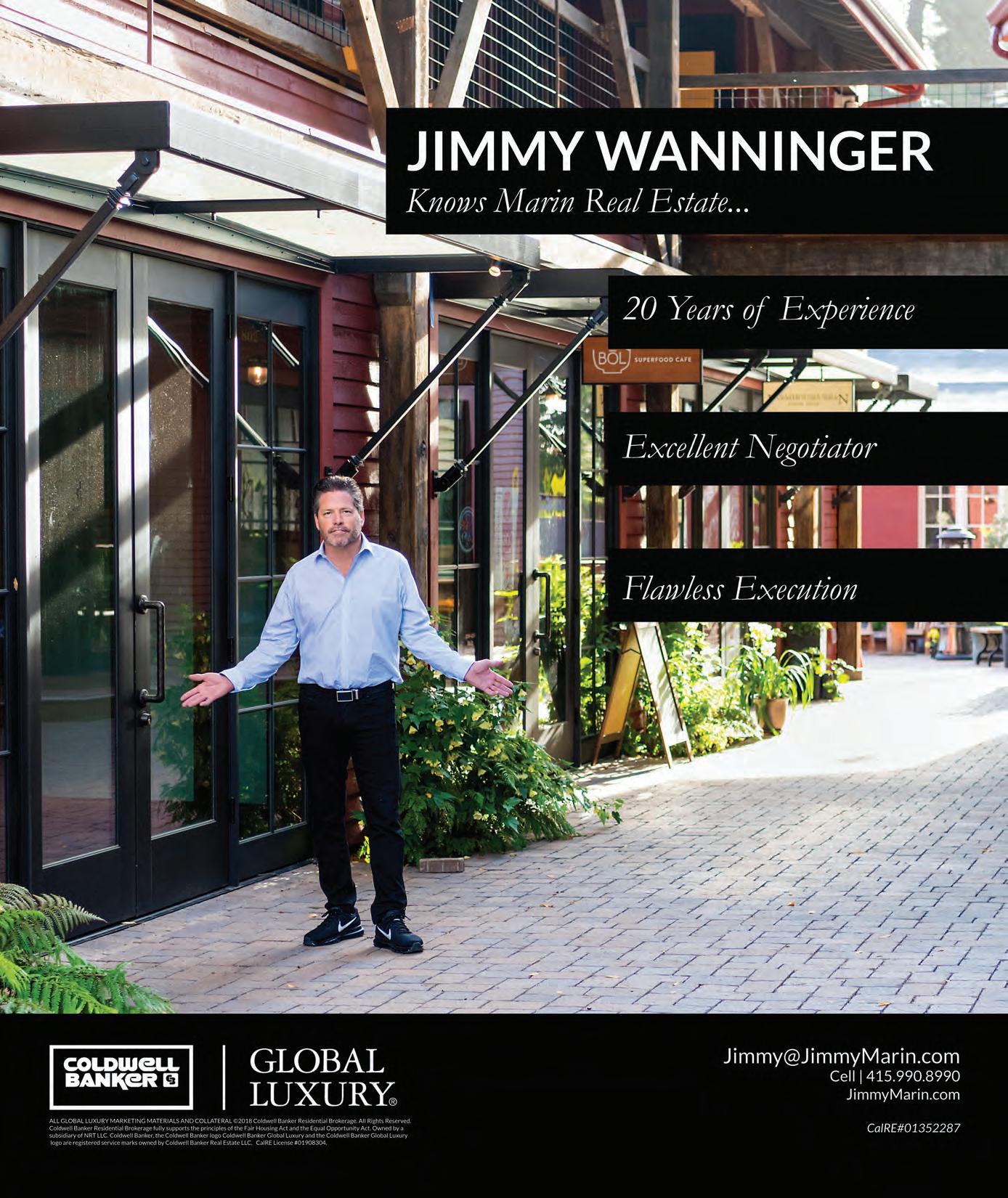

Vanguard Properties was honored to dedicate our yearly day of service in support of Sanzuma Farm at the San Pedro Elementary School which grows food that goes directly to the San Rafael School District for healthy lunches and educates children about nutrition. Our agents cleaned up the gardens and built a much-needed green house.
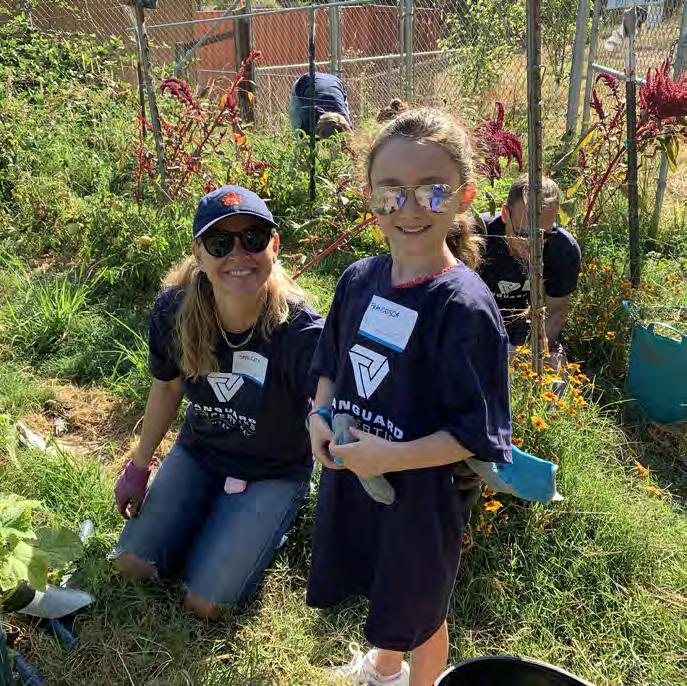


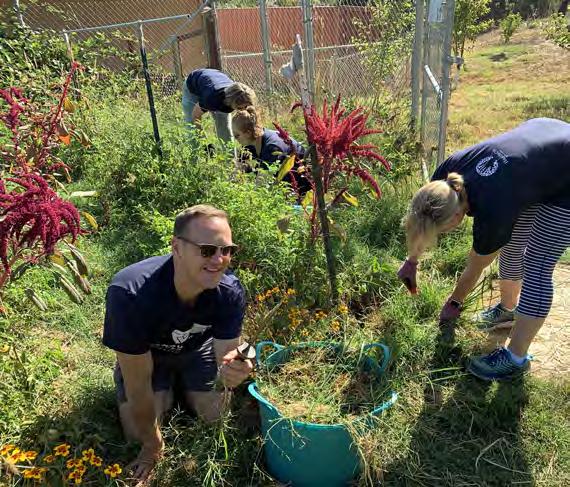
Vanguard believes in supporting our community by bettering Marin through service and volunteering.
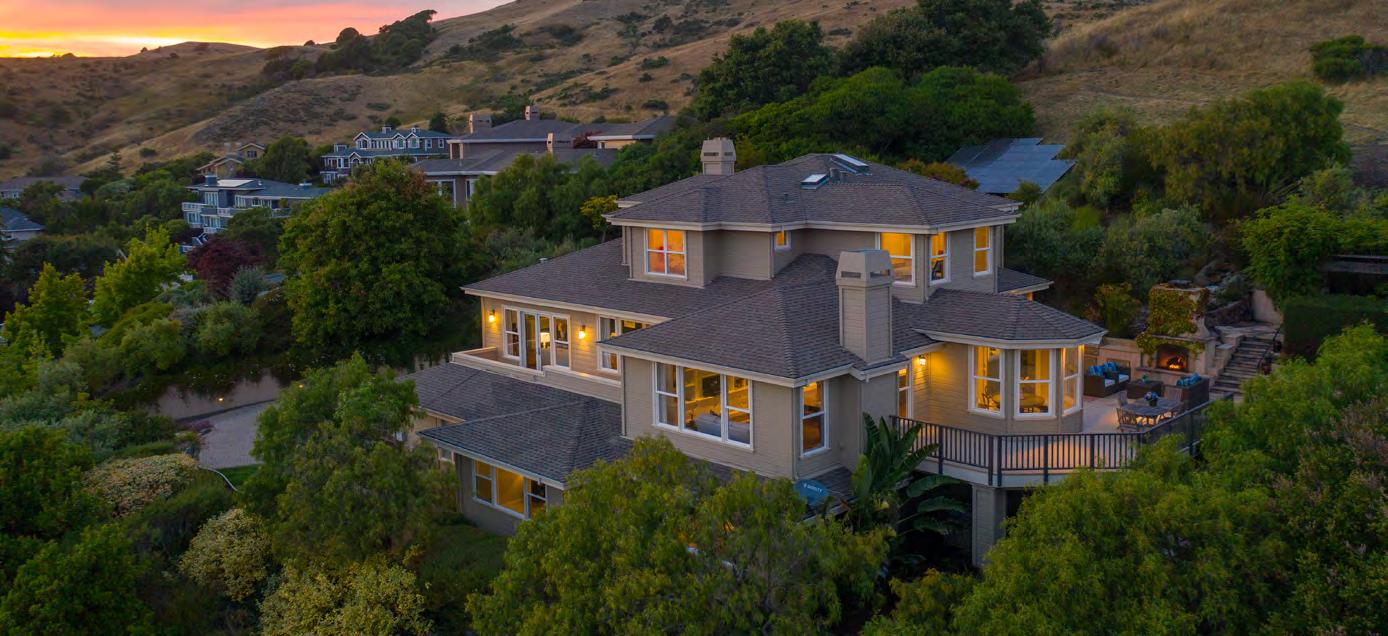
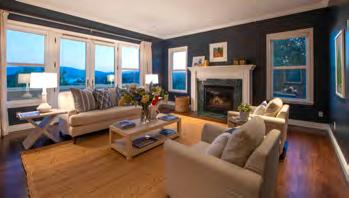


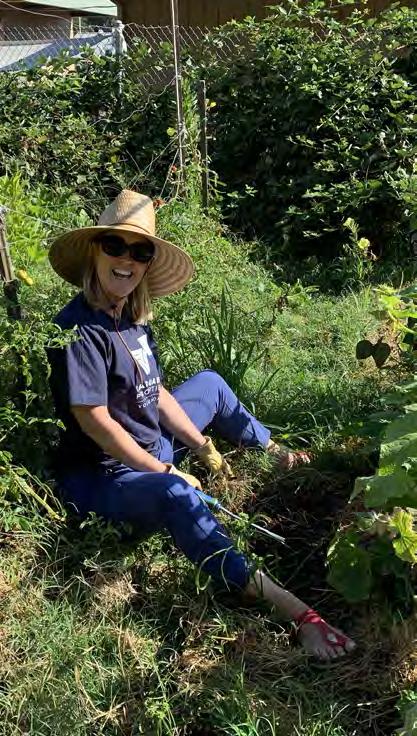



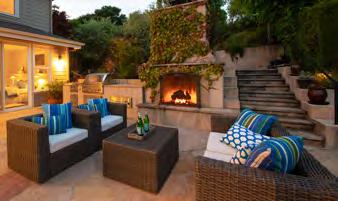
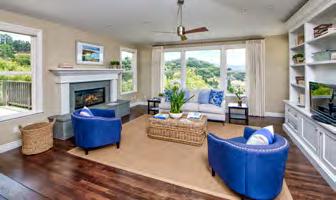


SAN RAFAEL | Offered at $1,425,000
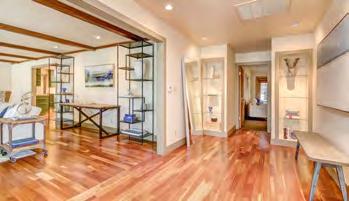

This beautiful Spanish Mediterranean Mt Tam view home features formal entertaining living and dining rooms, an open kitchen and family room floorplan, four bedrooms, three baths, central A/C, and mature landscaping.
260SantaMargarita.com
Kathryn Ellman | 415.497.7637
kathryn@vanguardmarin.com DRE# 02011069


MILL VALLEY | Offered at $1,995,000
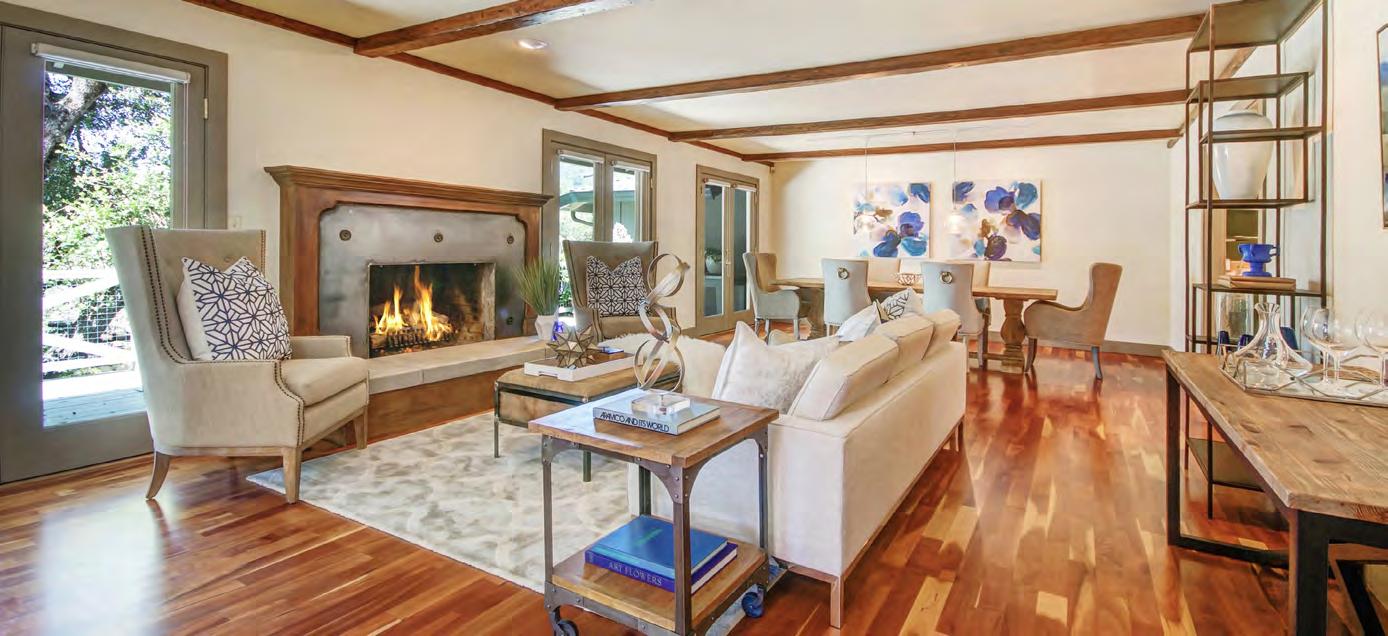
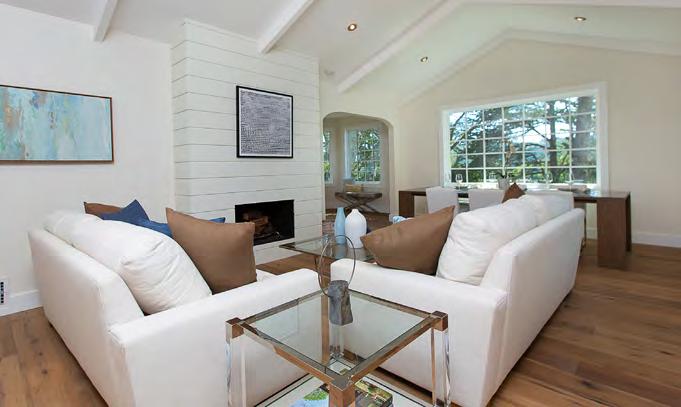

Just minutes from downtown Mill Valley and hiking trails galore, this extensively remodeled four bedrooms | two-and-one-half bath home is nestled amidst the natural beauty and serenity of Blithedale Canyon.
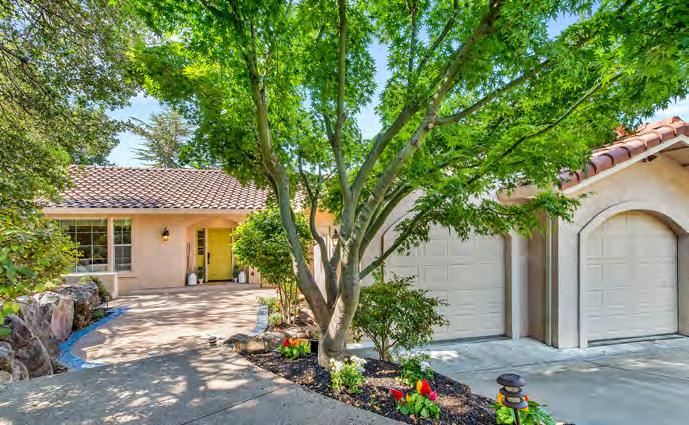
16Blithedale.com
Janey Kaplan | 415.272.0726
janey@vanguardmarin.com DRE# 01451424


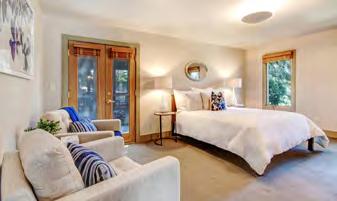
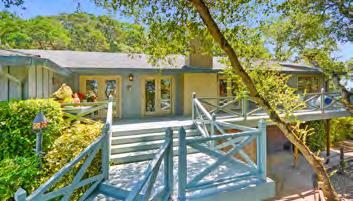



WE ARE ENGEL & VÖLKERS.
Engel & Völkers evokes a real estate experience with the utmost competence, exclusive expertise and passion for all that we do. Handcrafted attention to every detail and meticulous white-glove service is what each and every one of our clients deserves. It’s our standard of service that truly sets Engel & Völkers apart.

Engel & Völkers can only be as good and successful as its advisors. We concentrate our efforts on hiring the best and fostering their development on an ongoing basis. We are extremely proud that our managers and advisors give rise to such an open, pleasant, warm and respectful culture. We live by our core values: passion, competence and exclusivity. And we are proud of being a part of the large Engel & Völkers family. Would you like to join us?
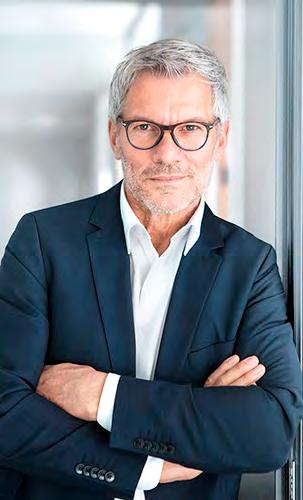

Marin County Manager & Global Real Estate Advisor +1 415 480-9424 monica.yazbek@evrealestate.com DRE# 02063023
 ©2019 Engel & Völkers. All rights reserved. Each brokerage independently owned and operated. Engel & Völkers and its independent License Partners are Equal Opportunity Employers and fully support the principals of the Fair Housing Act. All information provided is deemed reliable but is not guaranteed and should be independently verified.
©2019 Engel & Völkers. All rights reserved. Each brokerage independently owned and operated. Engel & Völkers and its independent License Partners are Equal Opportunity Employers and fully support the principals of the Fair Housing Act. All information provided is deemed reliable but is not guaranteed and should be independently verified.


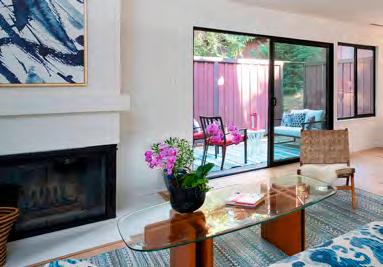
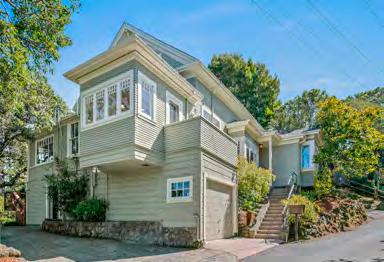
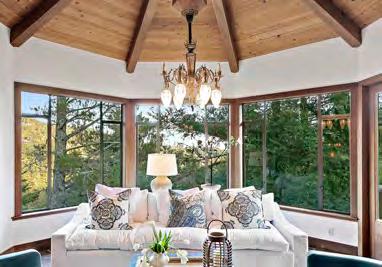


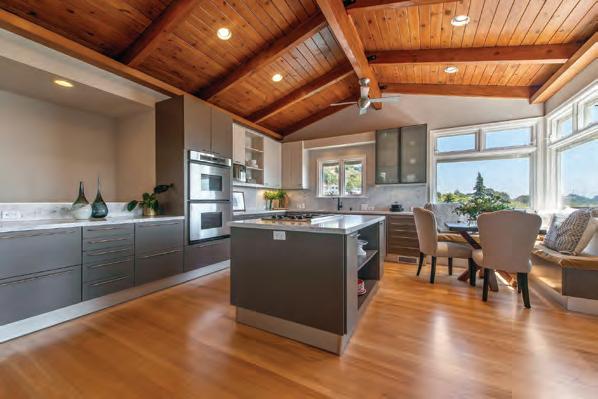

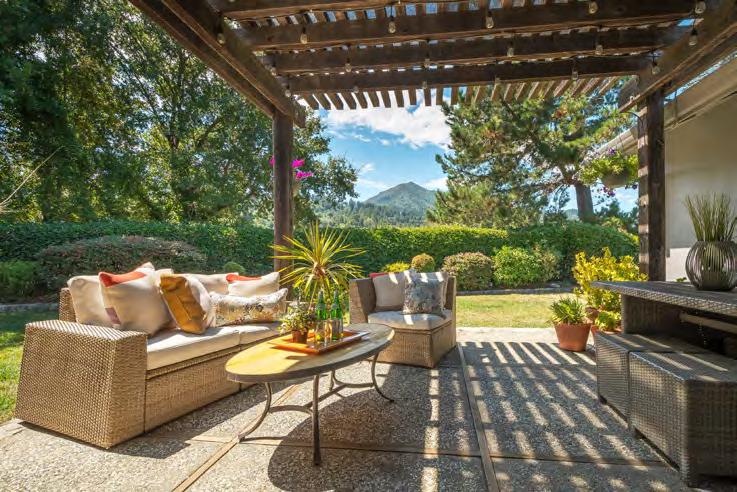
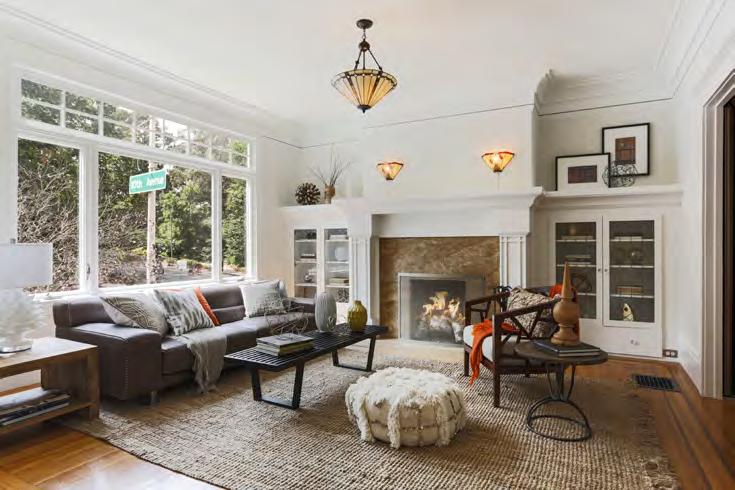
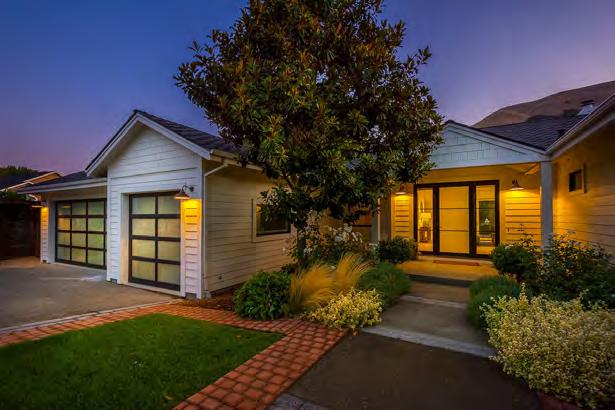

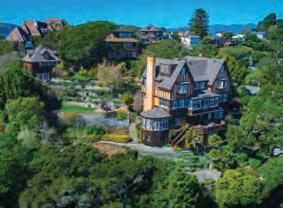
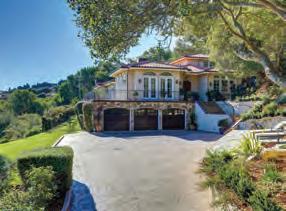
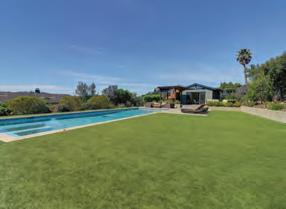
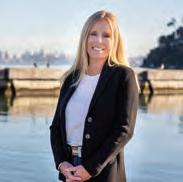
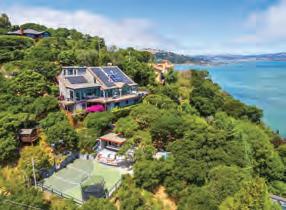
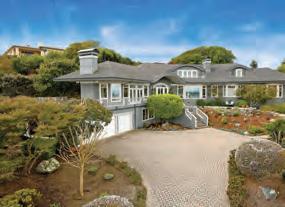
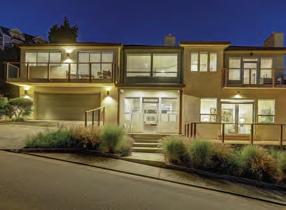

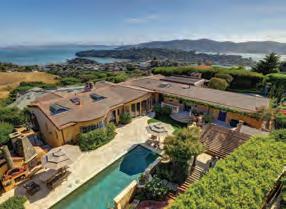
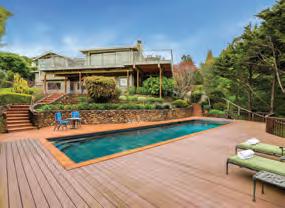
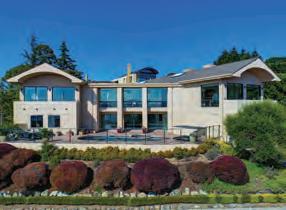
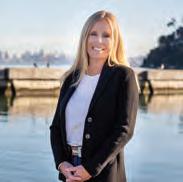
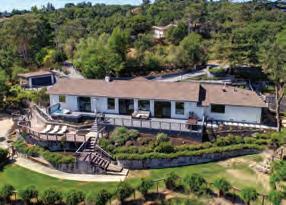
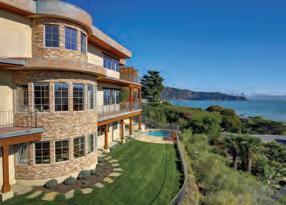

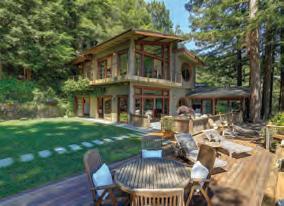
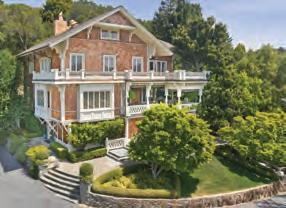
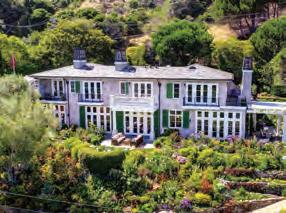


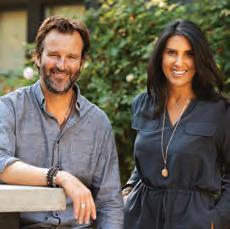

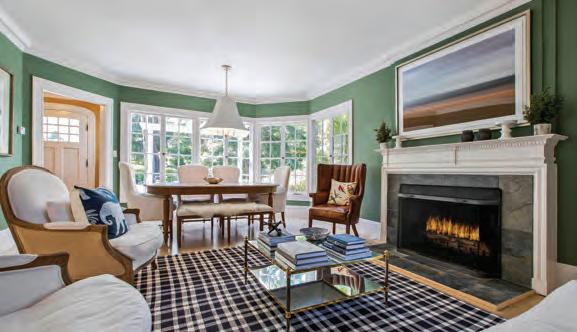


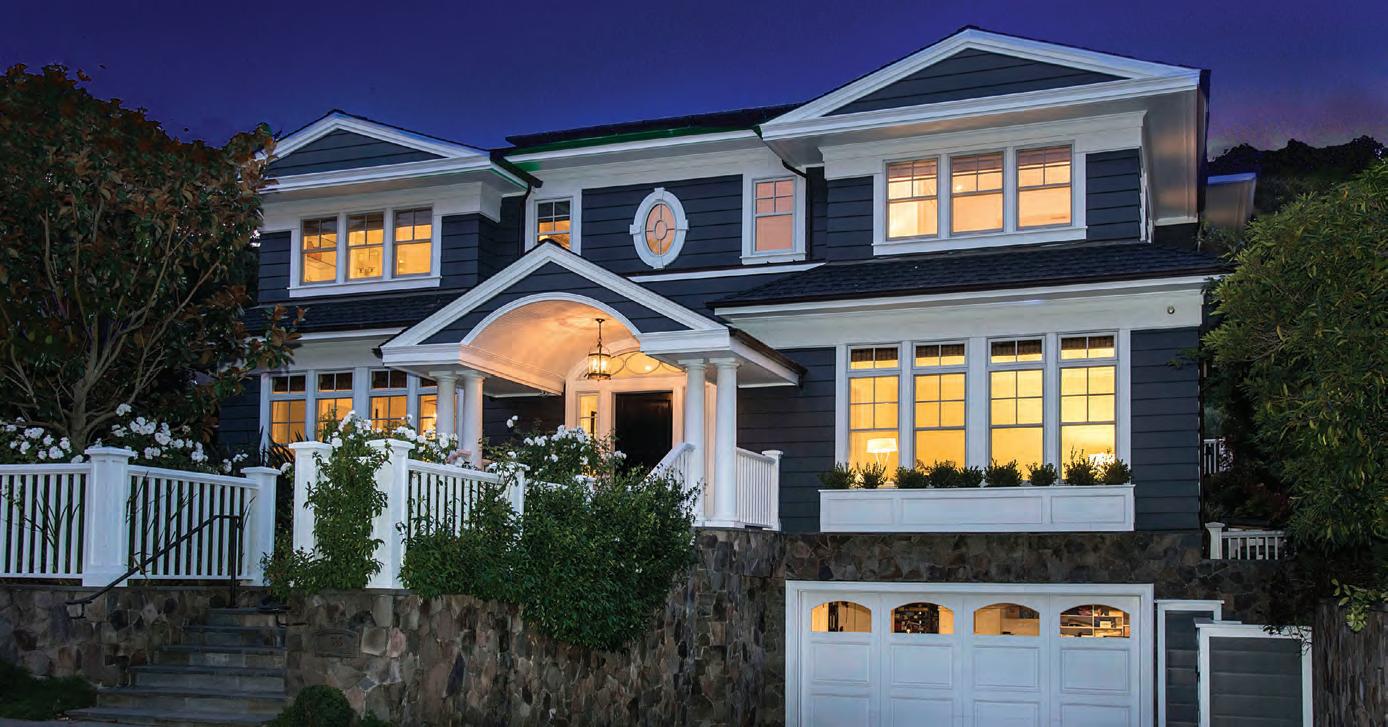
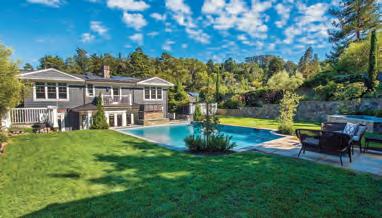

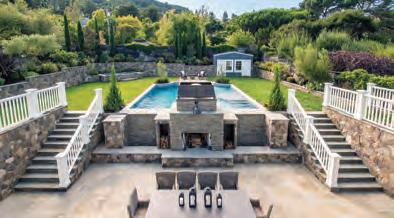


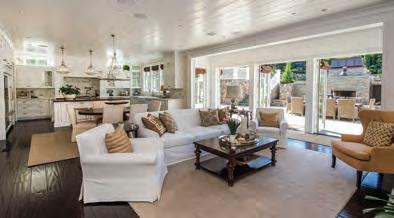
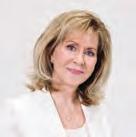
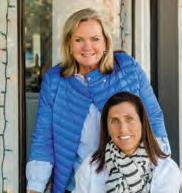
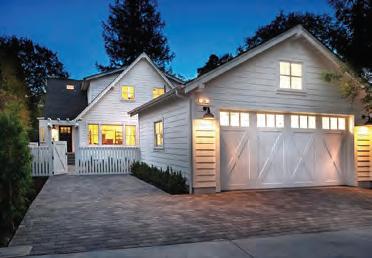
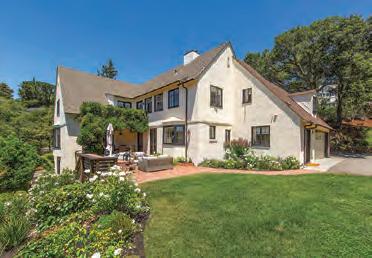
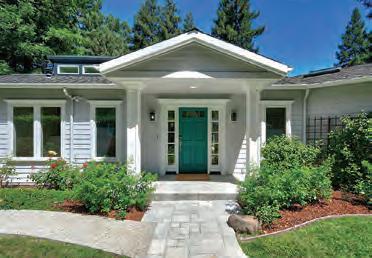
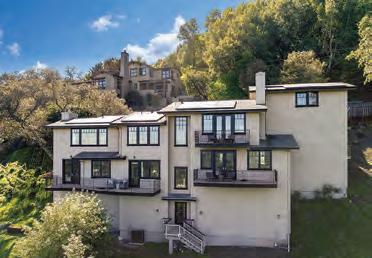
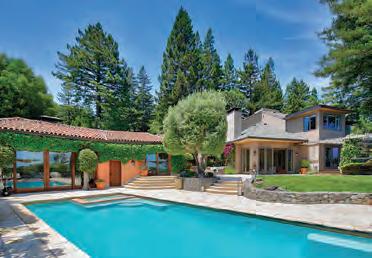
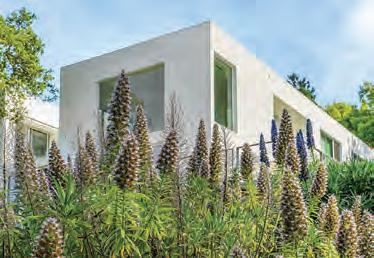
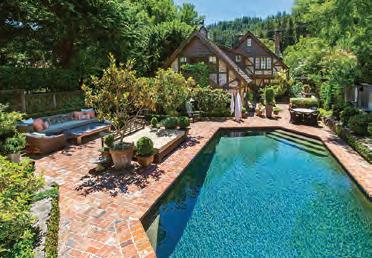
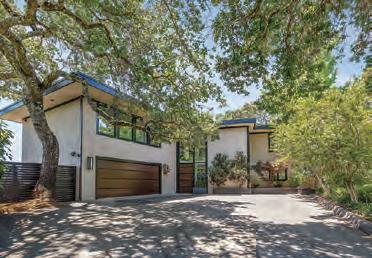
Jamison Blair
Broker Associate/Founding Partner
CA 01246366 | NV 145686
jamison@teamblairtahoe.com
Nicole Blair
Broker Associate/Founding Partner

CA 01500181 | NV 0145681
nicole@teamblairtahoe.com
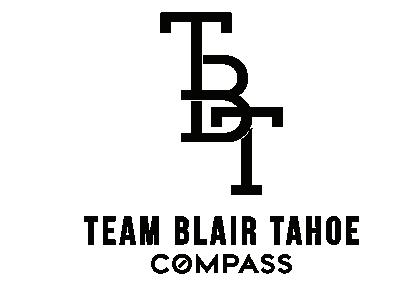
The William Harrah Family’s one-time entertainment enclave in Zephyr Cove is refreshed in stunning style that embodies its alpine setting without forsaking family living. The inviting, 22,000 sf home is reimagined from every angle with resort-quality spa, theater, exterior jet pool, and the Basin’s only meditative in-home Himalayan Salt Cave. Villa Harrah is beyond one-of-kind luxury.
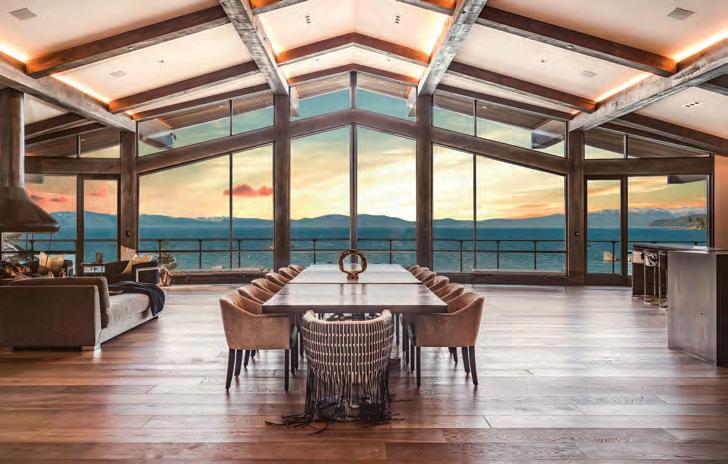
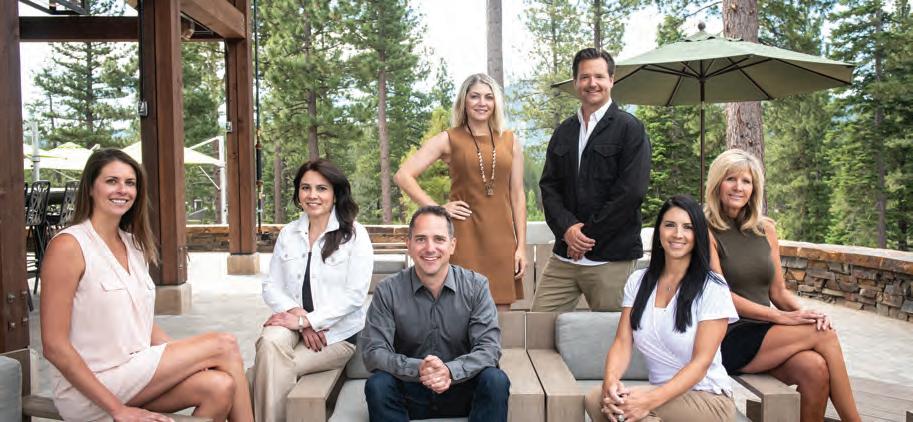
When it comes to feeling at home, community matters most. And we’re passionate about making ours better every day. From serving our community to serving our clients, Marin is more than where we do business, it’s our home. Let us put our expertise to work for you.

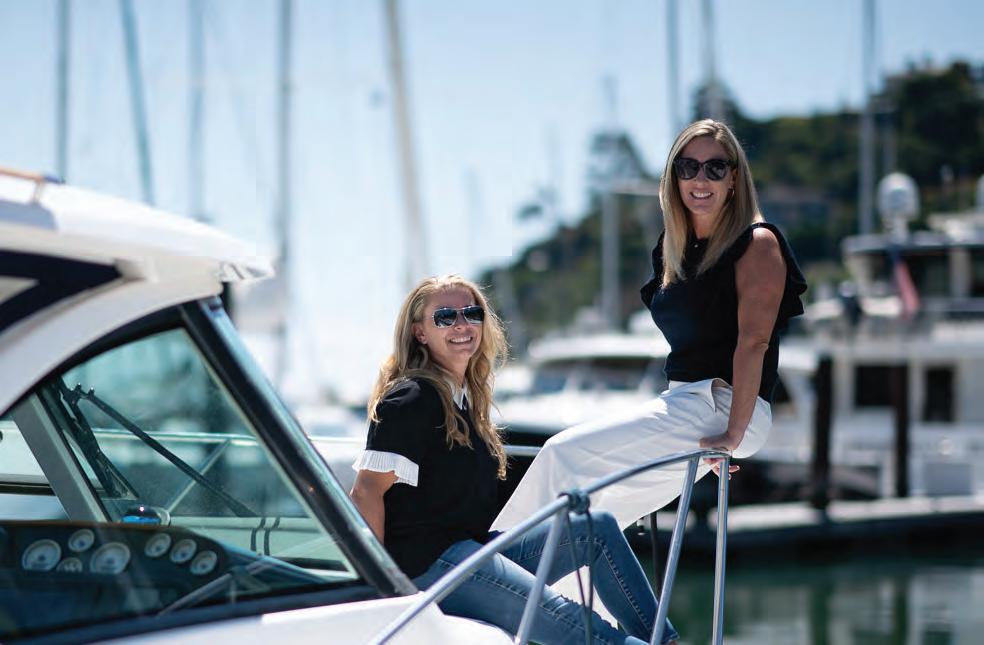
Missy Zech 415.722.8521 missy.zech@compass.com DRE 01378178
Stacy Achuck 415.233.2009 stacy.achuck@compass.com DRE 01921671


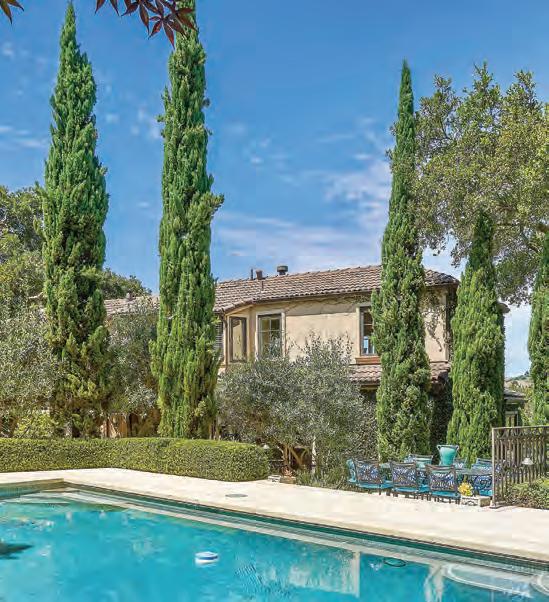
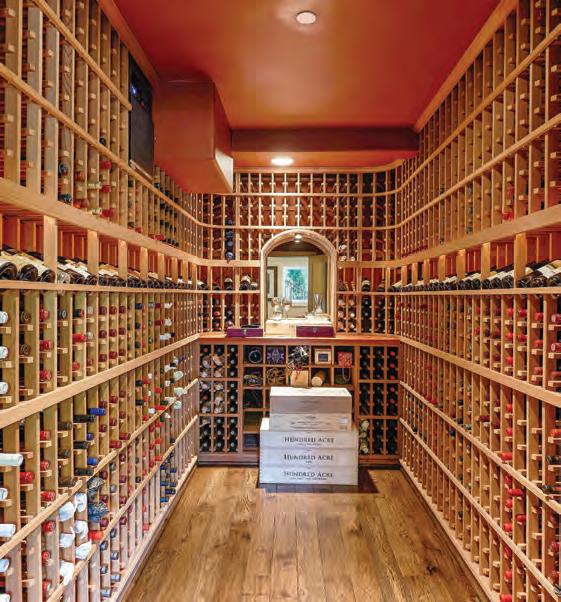

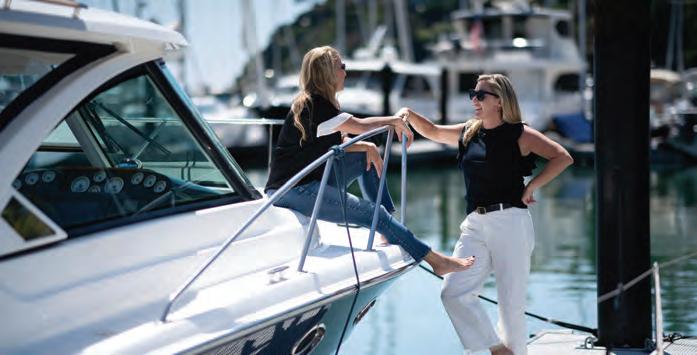

206 Stanford Avenue, Mill Valley 6 Bed | 6 Bath | $5,995,000 206stanfordave.com Shown By Appointment Only
Ideally situated in beautiful Mill Valley, this property combines the privacy of luxury estate living with ready access to the best the Bay Area has to offer. Find time to do the things you love in this rare, ultra-secluded 6 bedroom, 6 bathroom estate. Spend time in your own backyard with a full tennis court, large level lawns and sprawling decks. Optimally located within a ten mile drive from SF, you can quickly escape the hustle and bustle of work to the privacy of your own home in minutes.
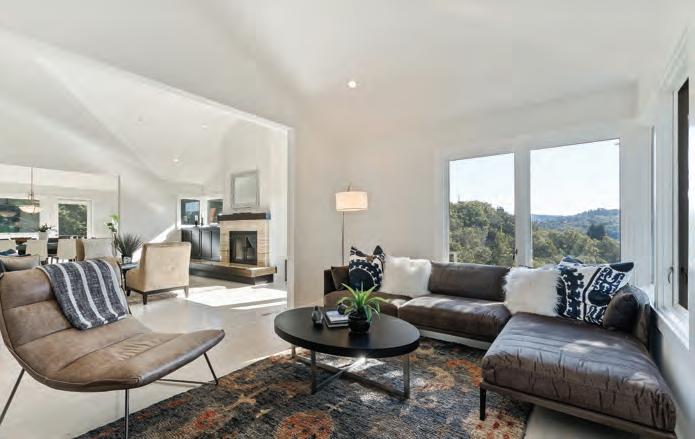


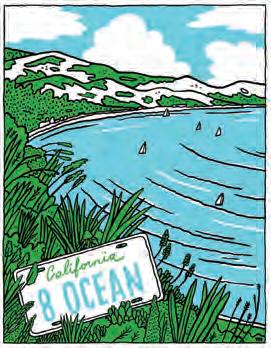
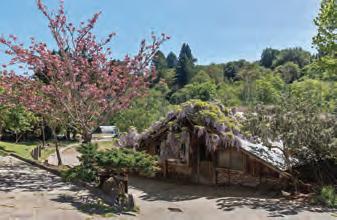
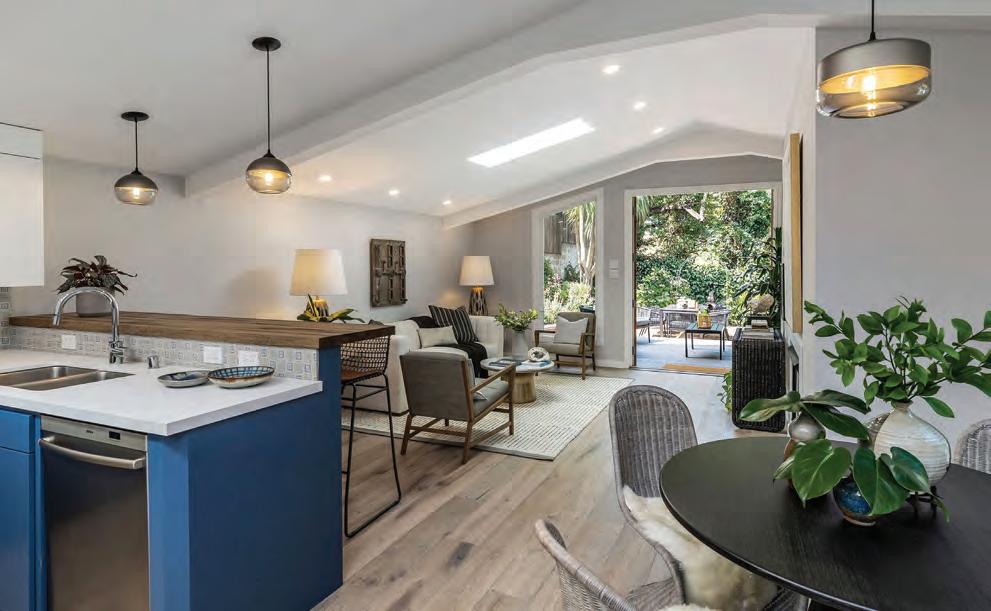
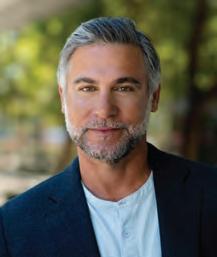
Owlswood Drive, Tiburon
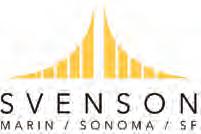
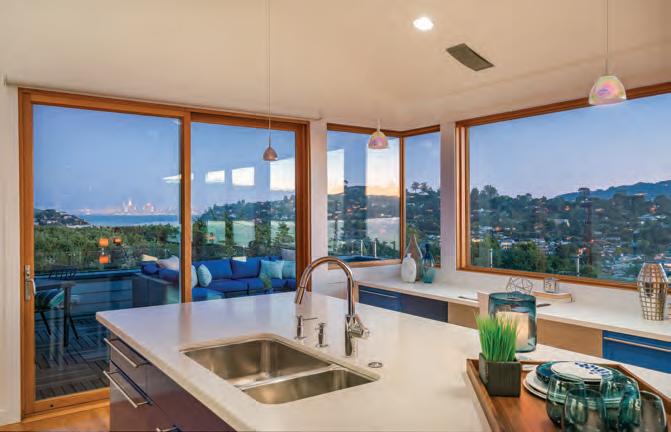
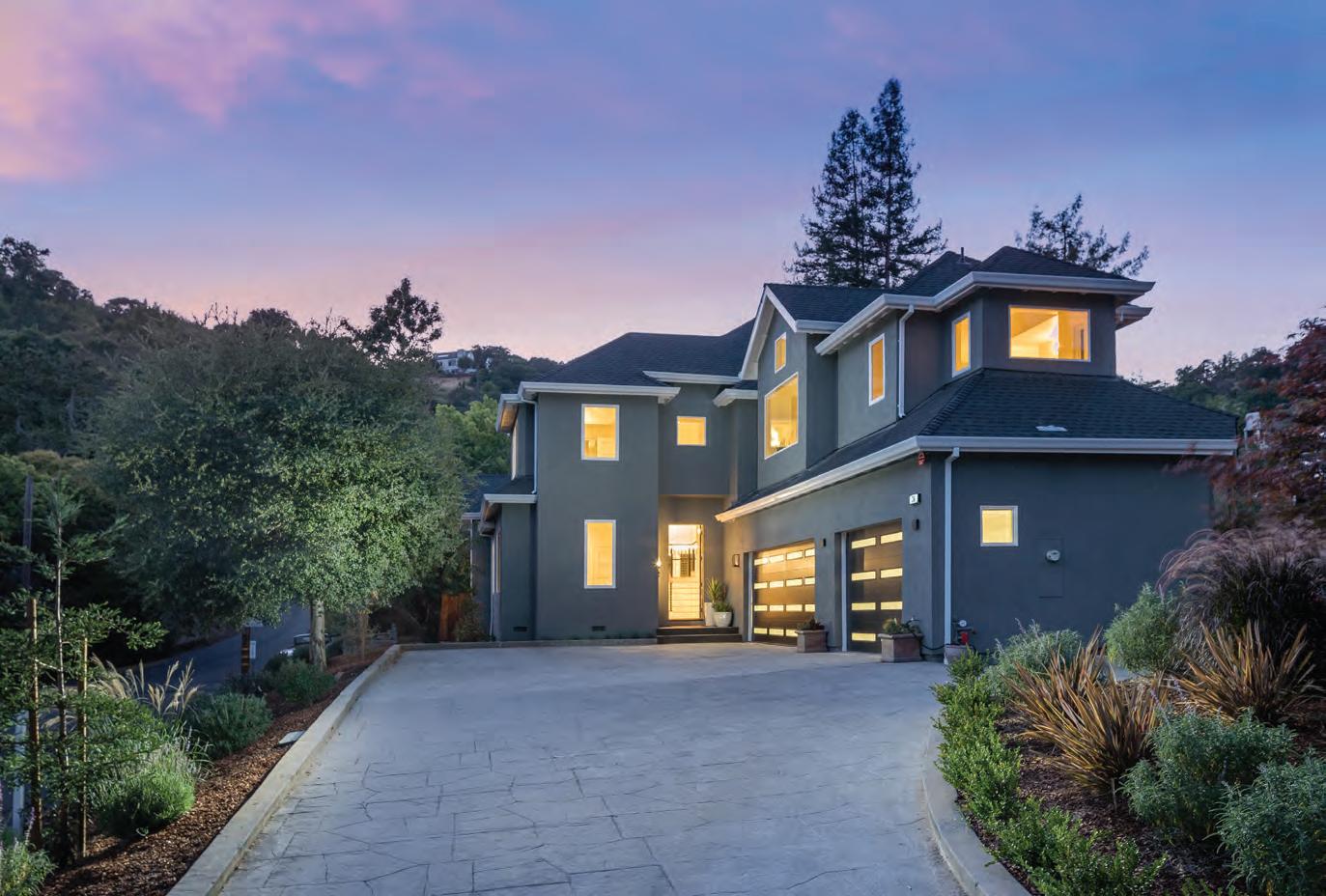
First time on the market, located in the sought-after Hilarita neighborhood of Tiburon. This custom built home boasts stunning San Francisco skyline, Bay Bridge, Racoon Straight, Belvedere Lagoon, Sausalito, Richardson Bay, and Mt. Tam views from many of its rooms and entertainer’s deck. A well-sited home with room on all sides for gardening and easy terracing. Passive solar heating, solar panels, low flow toilets, energy efficient appliances as well as an e-car charger make this home low impact and cost efficient. Current landscaping minimizes water consumption with plenty of scope for further development. At 14,000± sq. ft. the lot has strong potential for expansion and garage addition. This prestigious neighborhood is just minutes from Ark Row, downtown Tiburon, Yacht Clubs, and McKegney Green with its beautiful walking path. Also conveniently located to Tiburon’s top-rated schools and quick and easy access to Hwy 101. 4owlswood.com
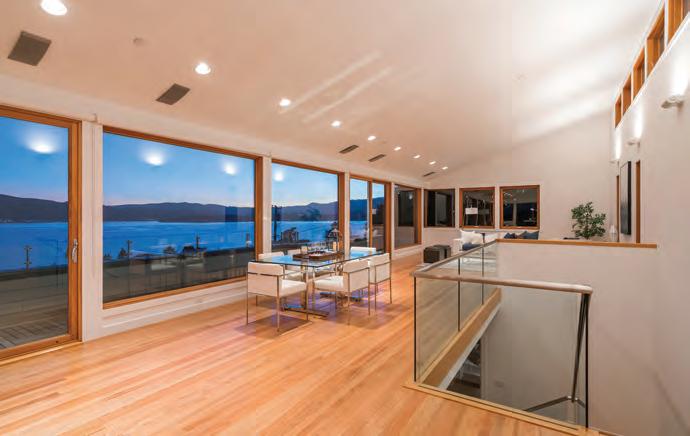
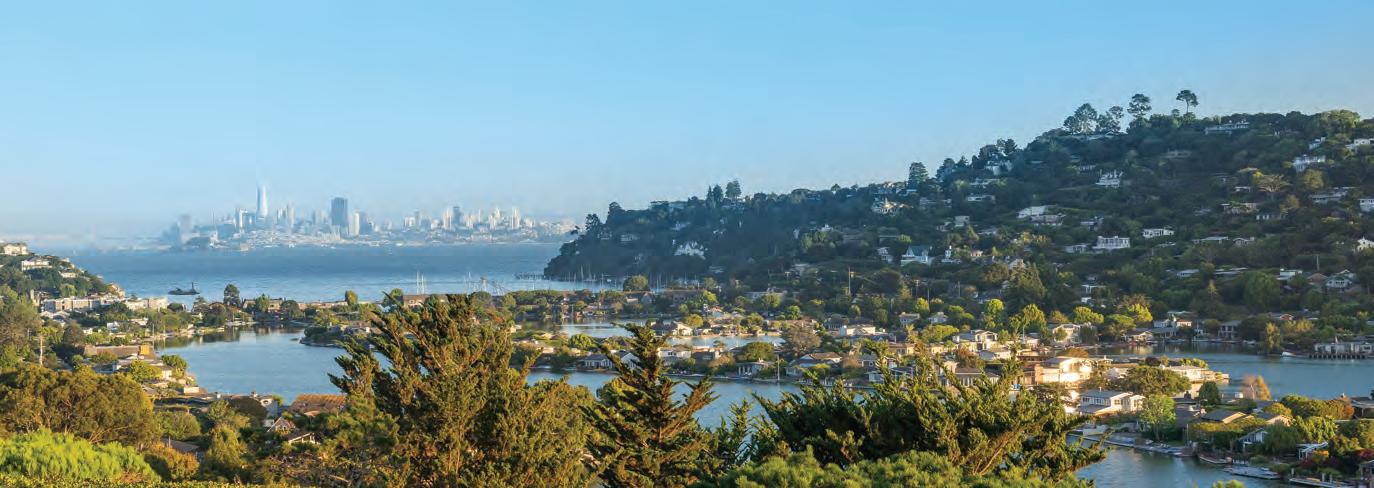
Lic.#
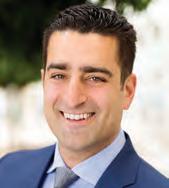




“Stephanie found an absolutely wonderful home in Ross that we ended up buying within three weeks of meeting her for the first time. She’s a consummate professional whose clients undoubtedly benefit from her legal and real estate background. She’s also an absolute delight to work with!”

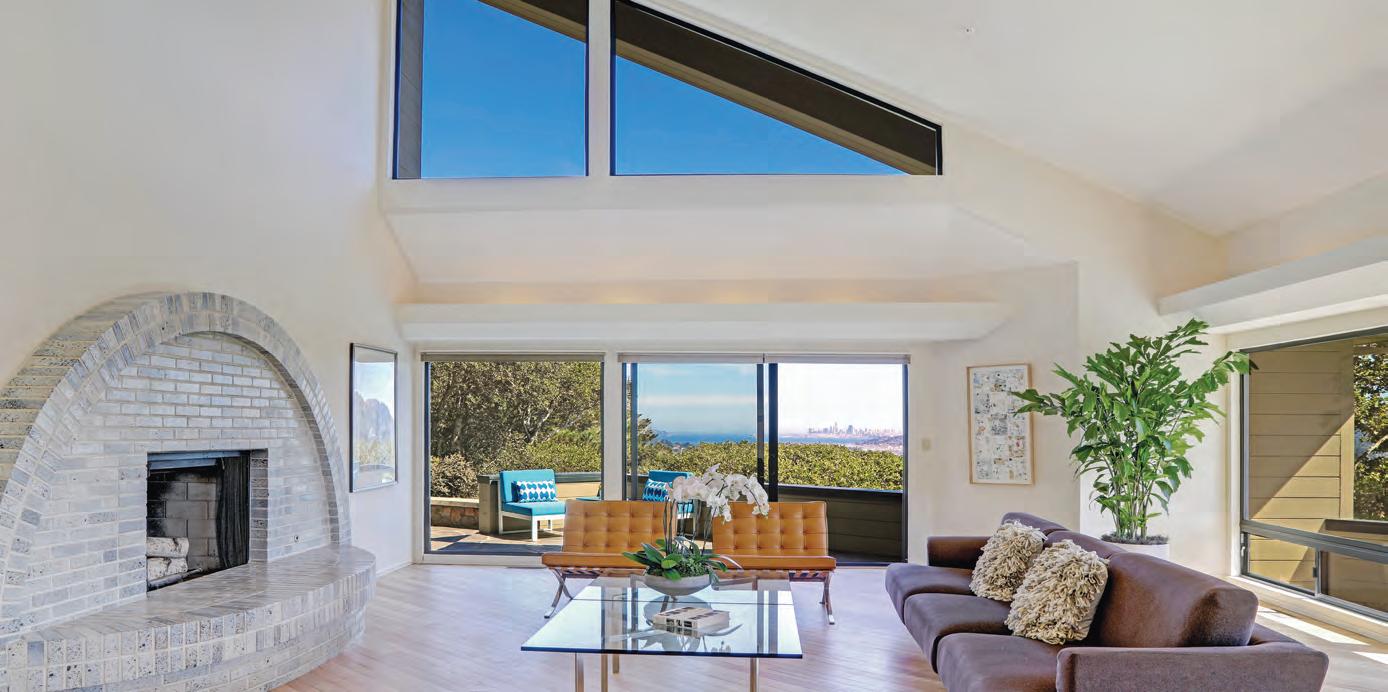

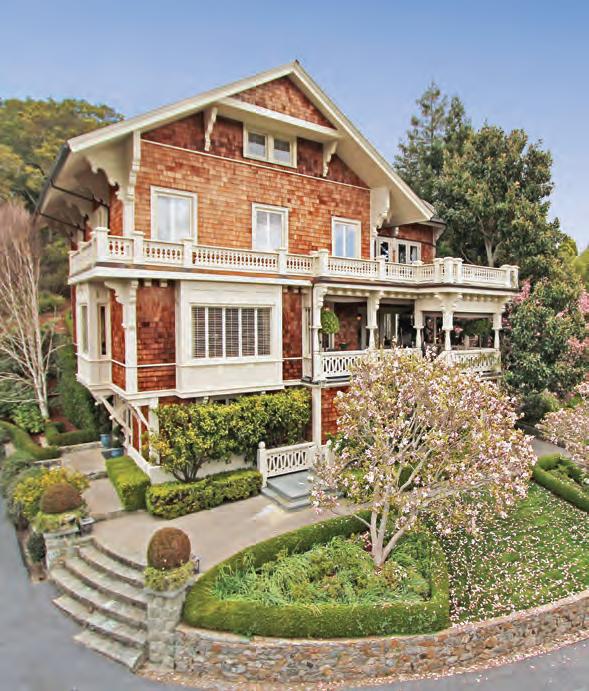
-Buyer
“Nothing in a real estate transaction is easy or predictable, so an excellent agent is critical. Stephanie Lamarre will get the deal done because she is solution oriented, whip smart and hardworking. Equally important, she has a lot of integrity, discretion and expertise. I cannot recommend Stephanie highly enough and will use her for all future home sales and purchases.”

-Seller
stephanie @ stephanielamarre.com StephanieLamarre.com Lic.# 01840604
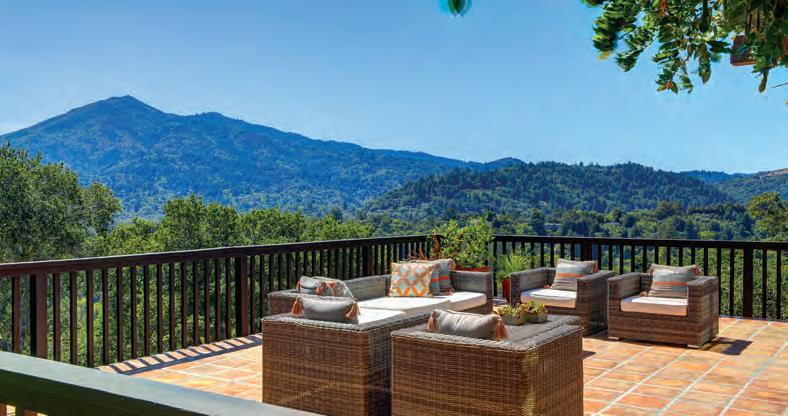 Stephanie Lamarre
Stephanie Lamarre


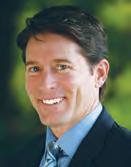




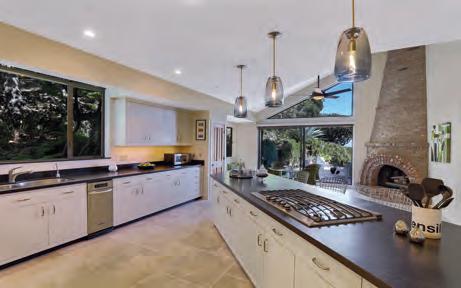
Karin Narodny 415.265.7488 karin@marinrealestate.net Lic.# 00550056
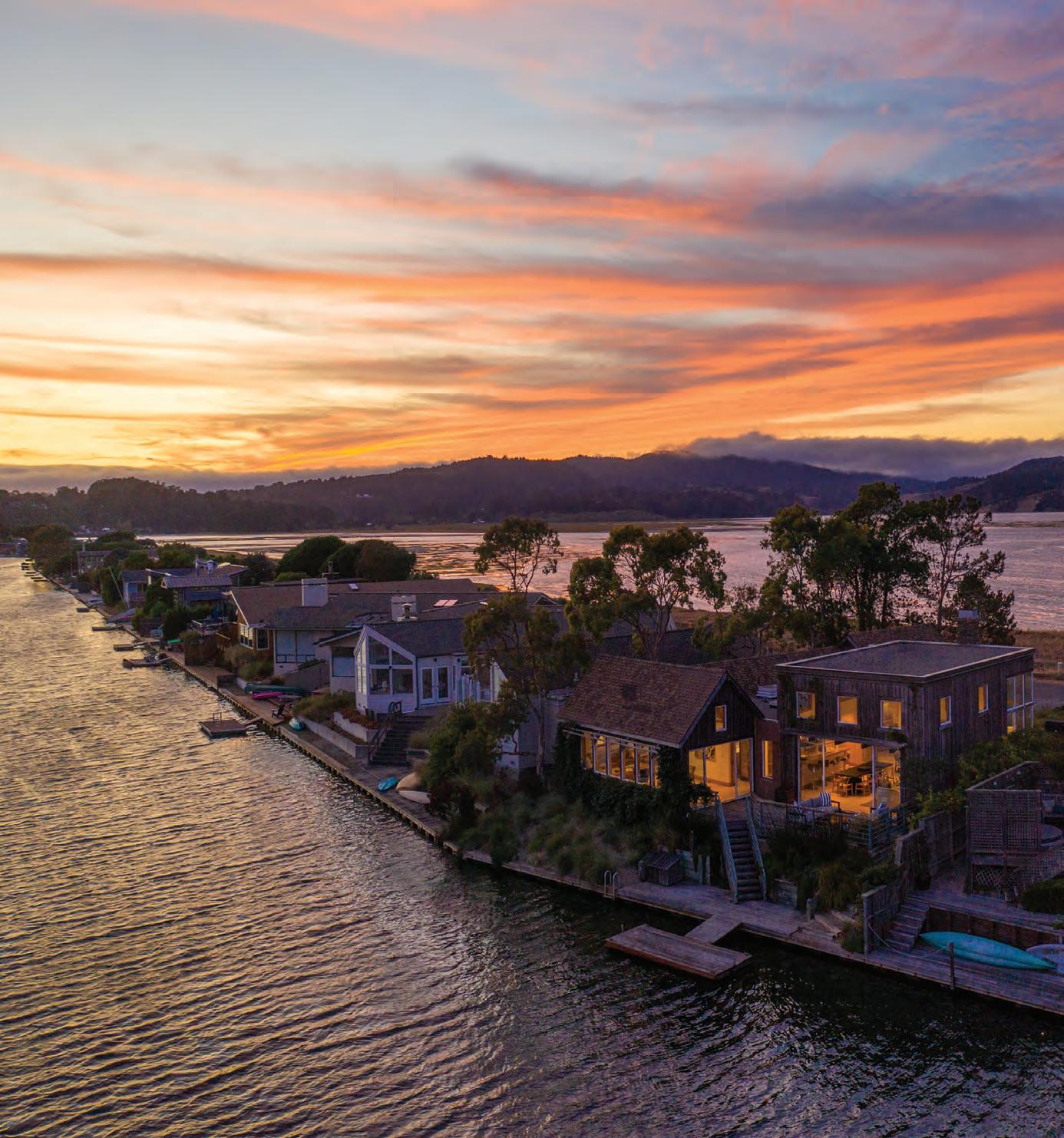
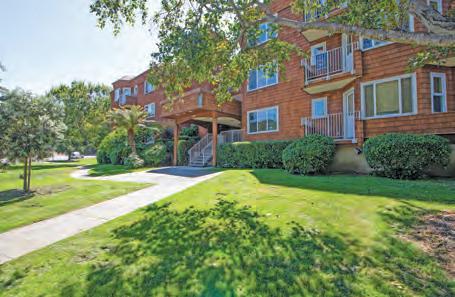
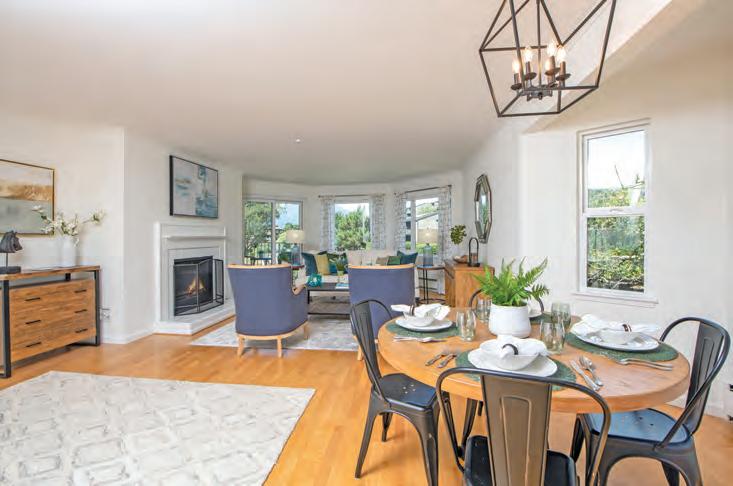
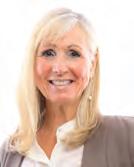

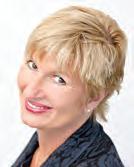
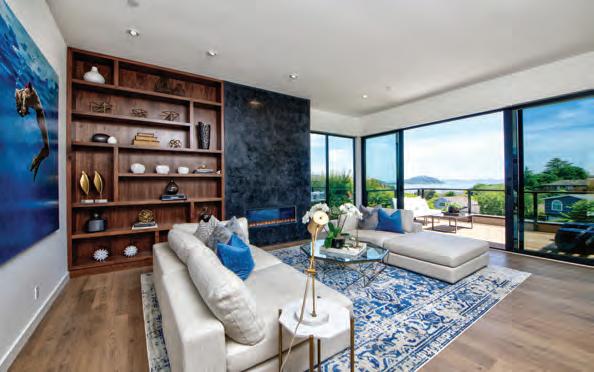
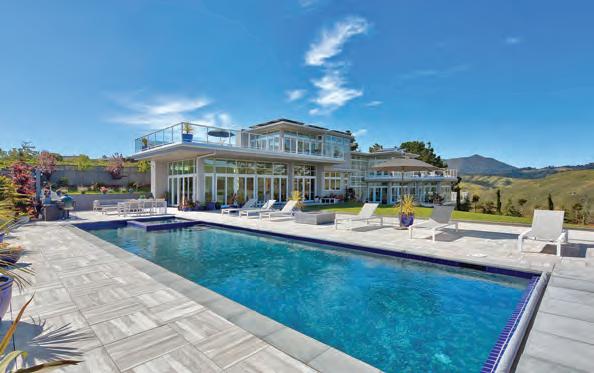

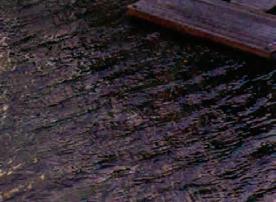




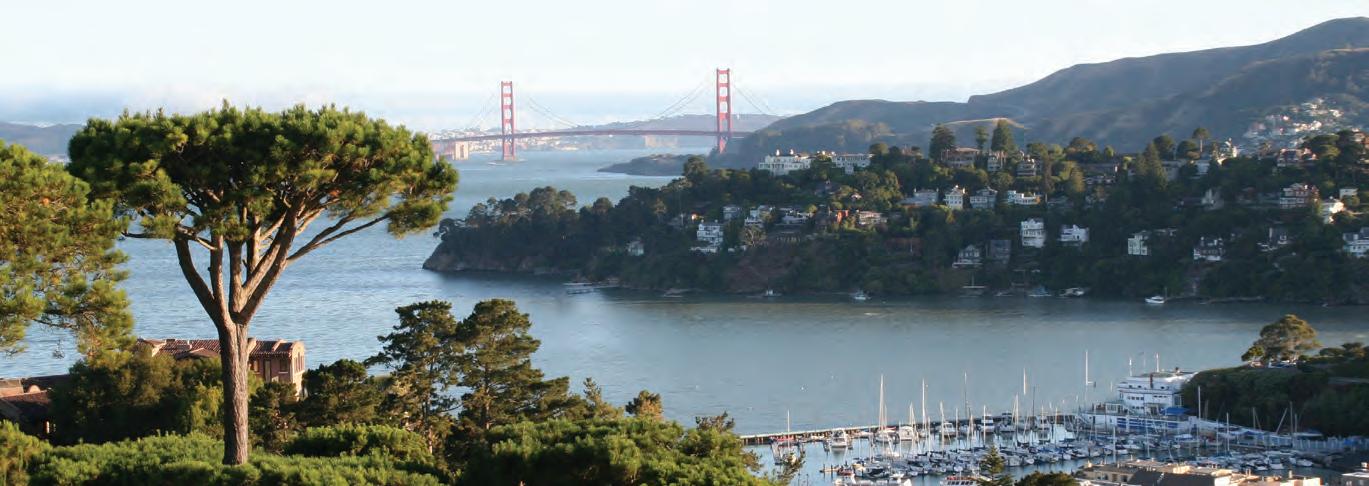

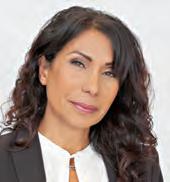
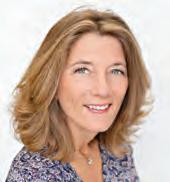
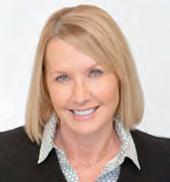
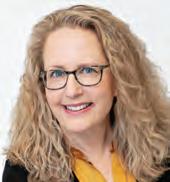

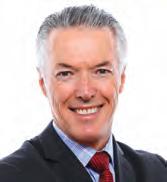
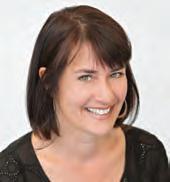
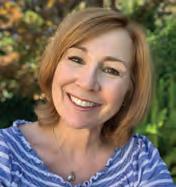

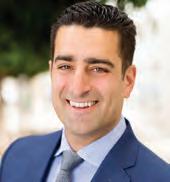
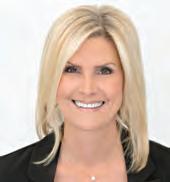









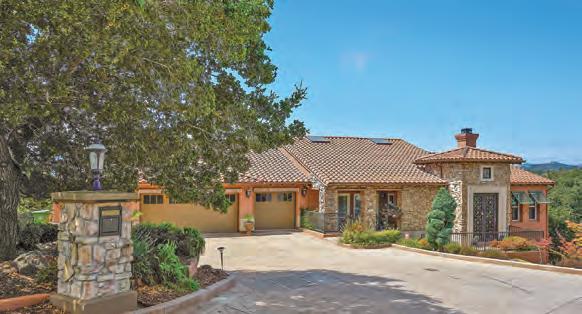
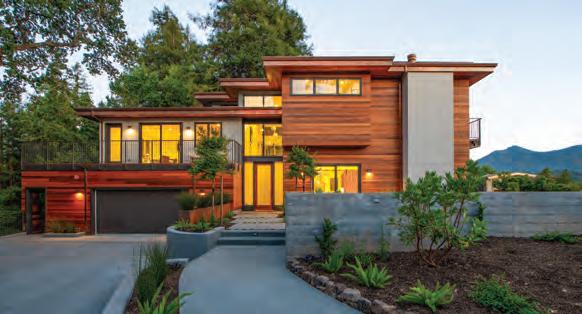



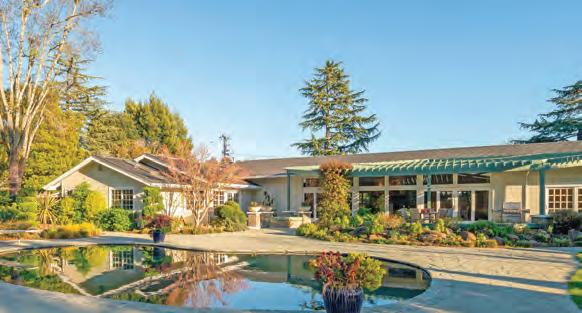

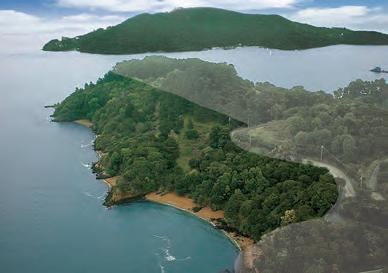
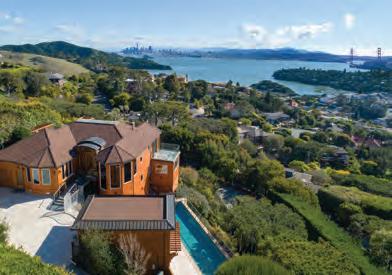
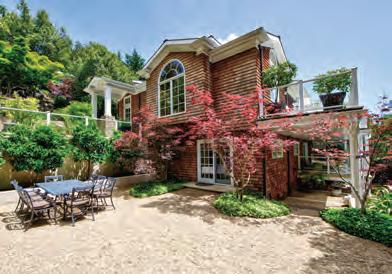
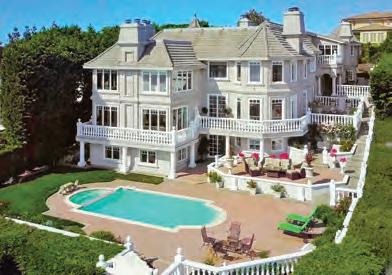
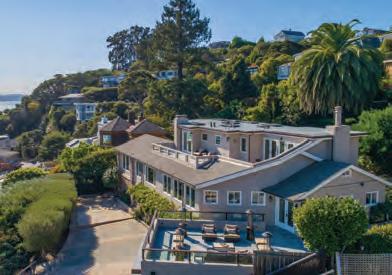
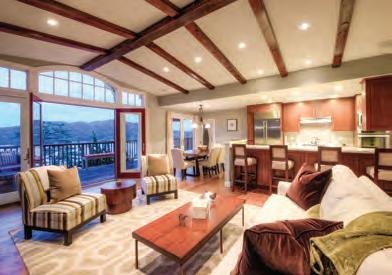

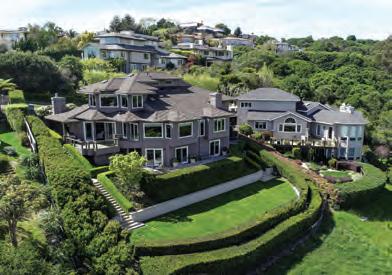
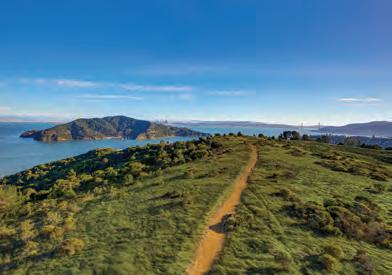
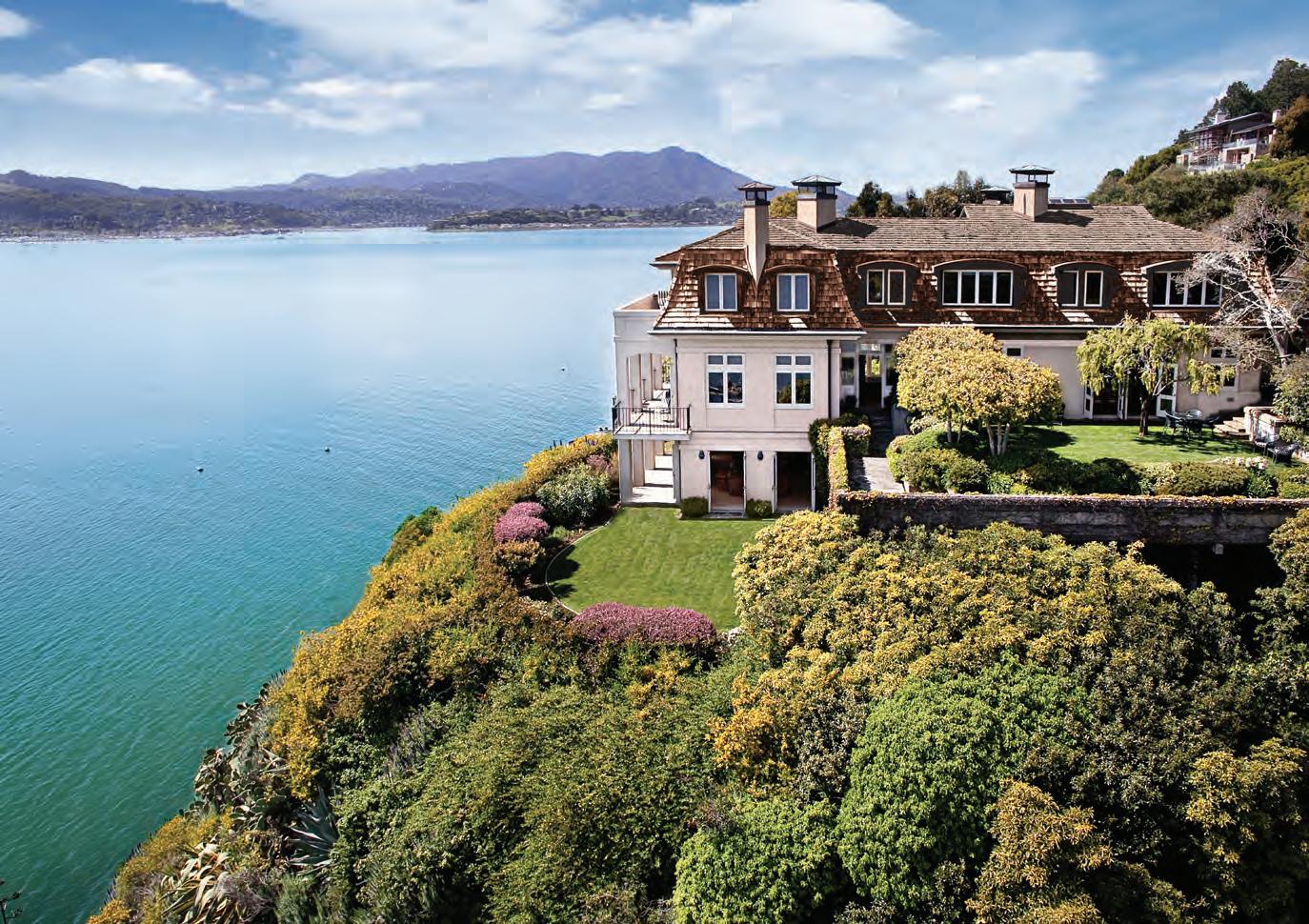
Waterfront living, captivating views, classic architecture and elegance define this ultra-prime residence on the western shore of Belvedere. Designed by renowned architect Warren Callister, the stately home exemplifies the ‘Belvedere’, with approximately 9,500± sq. ft. of living space including guest quarters, for a total of seven bedrooms, six bathrooms and two half-baths. Unobstructed views of the Golden Gate Bridge and the San Francisco skyline dazzle from nearly every room. Endless vistas create the ultimate backdrop for refined interior spaces, including the large formal living and dining rooms with direct access to view-side terraces through French doors, the intimate library with fireplace, and the top-level master suite with dual bathrooms and dressing rooms and a private terrace. Five fireplaces, a three-car enclosed garage with parking for seven vehicles, three level lawns and the pride of owning one of Belvedere’s finest homes add to the allure of the distinguished trophy estate.

Lydia Sarkissian 415.517.7720 l.sarkissian@ggsir.com Lic .# 01159670
Bill Bullock 415.384.4000 bb@ggsir.com Lic .# 00837358
Magda Sarkissian 415.847.7913 m.sarkissian@ggsir.com Lic .# 02028978
A first task of the Marin Municipal Water District was to build remote Alpine Dam, which was constructed a century ago.
 BY JIM WOOD
BY JIM WOOD
IT STARTED WITH a man named Hiram. In 1910, California governor Hiram Johnson signed legislation leading to the formation of municipal water districts throughout the state. Marin County, already in existence for 60 years, was quick to respond. In 1912, the Marin Municipal Water District (MMWD), serving San Rafael, the Ross Valley and all of southern Marin, became the fi rst municipal water district in the state. And one of MMWD’s fi rst tasks was to build Alpine Dam, which would provide drinking water for the county’s growing population (two dams already existed locally: Lagunitas, built in 1872, and Phoenix Lake, built in 1905). Alpine Dam was designed in-house with consultation provided by M.M. O’Shaughnessy, the well-known engineer of San Francisco’s Hetch Hetchy water system and at the time an MMWD board member. According to the book Mount Tamalpais and the Marin Municipal Water District, by current MMWD director and historian Jack Gibson, construction on Alpine started in the summer of 1917, but the outbreak of World War I led to shortages of labor and materials for the contractor. So in January of 1918 MMWD took over the building of Alpine Dam and it was completed a year later. When fi rst built, it held just over a billion gallons of water, but the dam was raised in 1924 and again in 1941 — the structure now has a capacity approaching 3 billion gallons and continues to play a vital role in supplying fresh water to thousands of MMWD customers. Curious water watchers can actually drive over the scenic dam by taking the Fairfax-Bolinas Road southwest from the town of Fairfax. Fair warning: it’s a long and twisty road and may call for a Dramamine or two. m
In 1912, the Marin Municipal Water District (MMWD) became the first municipal water district in the state.

We believe in giving back where it counts the most — at home, in the Bay Area.
AFTER
Exclusive to our clients, Compass Concierge fronts the cost of services to prepare your home for market, from staging to cosmetic improvements and more. No hidden fees, no interest charged ever.

compass.com/concierge
